P.32 BUILDING ON SUCCESS: How ORO24 is helping to reshape Dubai’s real estate future
P.38 RAK ON A ROLL: The emirate’s popularity is rising as a tourism hotspot


P.32 BUILDING ON SUCCESS: How ORO24 is helping to reshape Dubai’s real estate future
P.38 RAK ON A ROLL: The emirate’s popularity is rising as a tourism hotspot





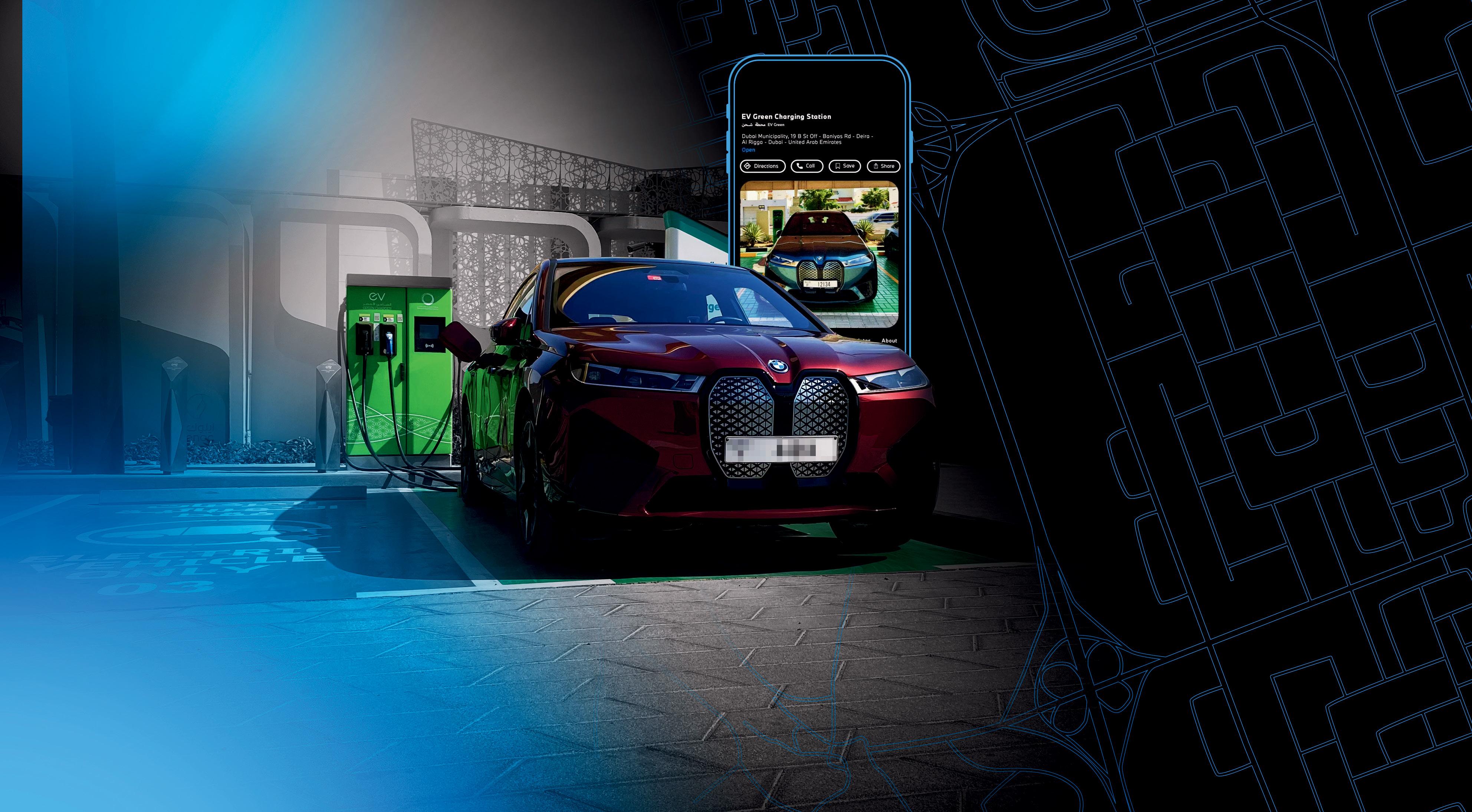
insight into the news and trends shaping the region with perceptive commentary and analysis

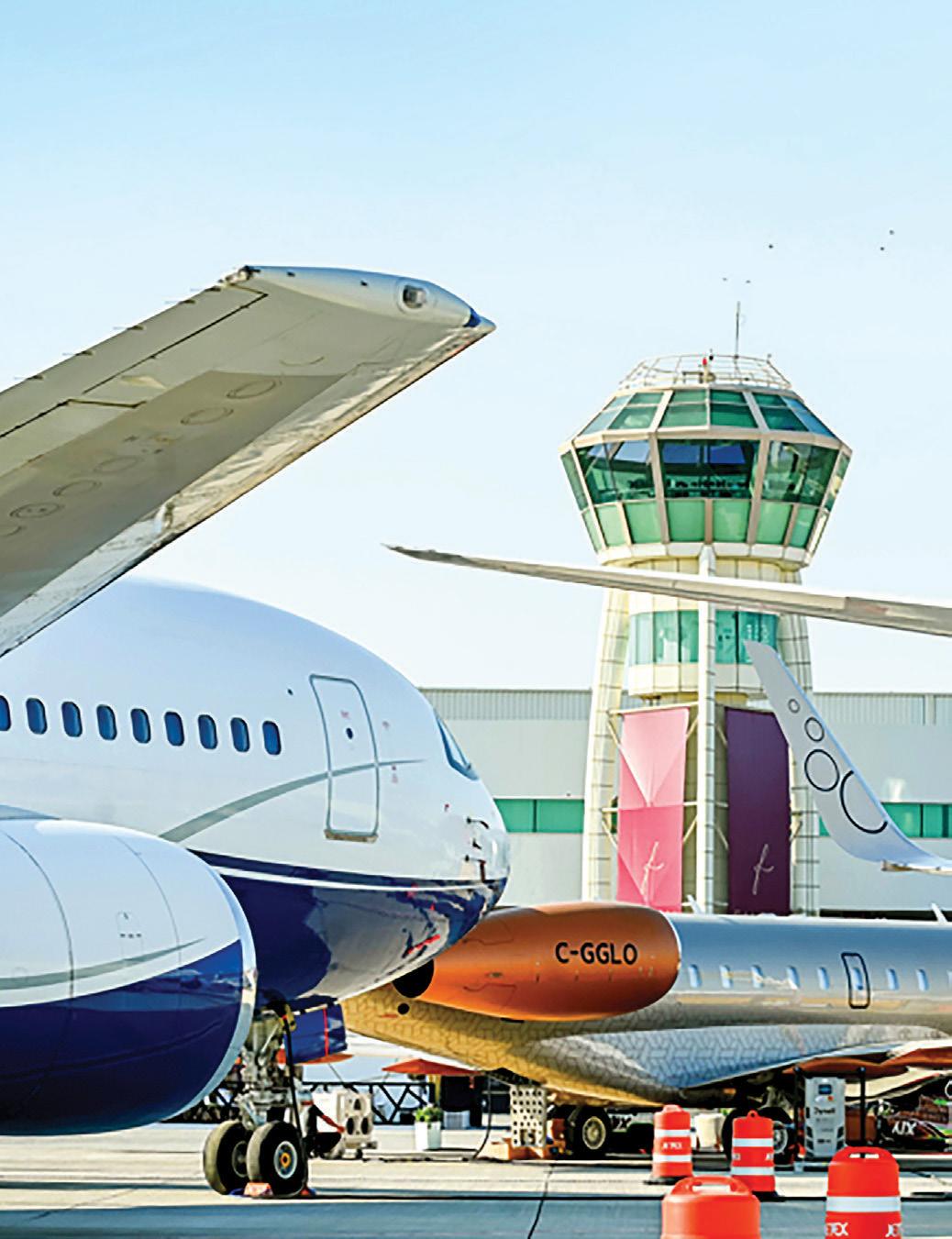
Raki Phillips, CEO of RAKTDA, reflects on the emirate’s exceptional tourism performance in 2024 and exciting developments on the horizon
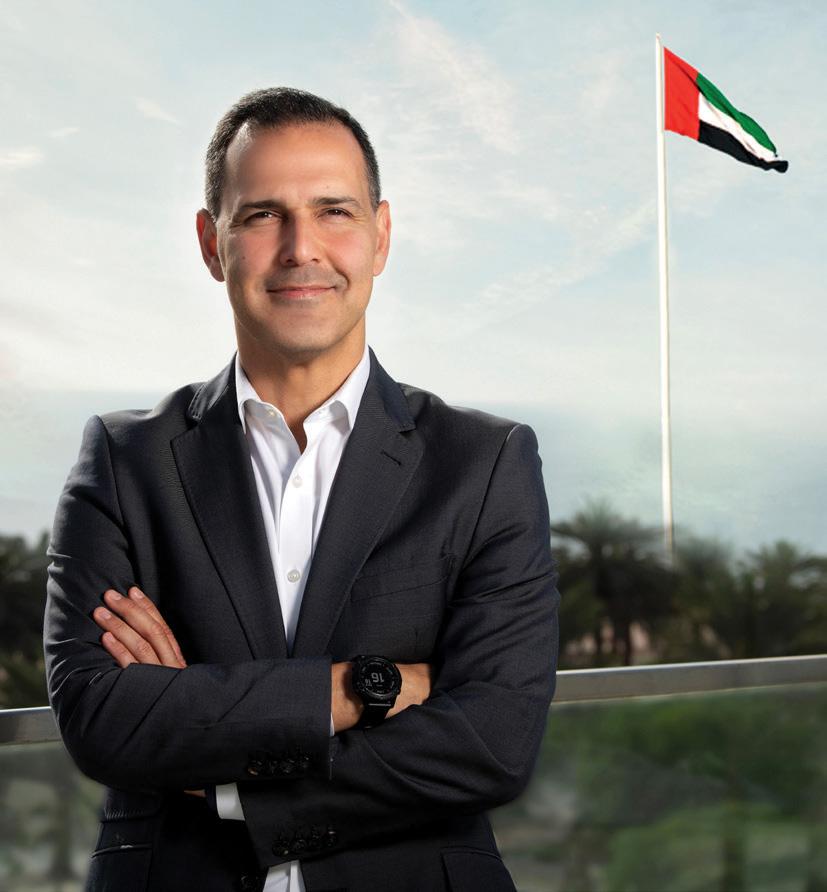
From connecting global markets and unlocking opportunities for clients to excelling on prestigious racing circuits and unveiling a private charter, AIX Investment Group’s ambitions are soaring high
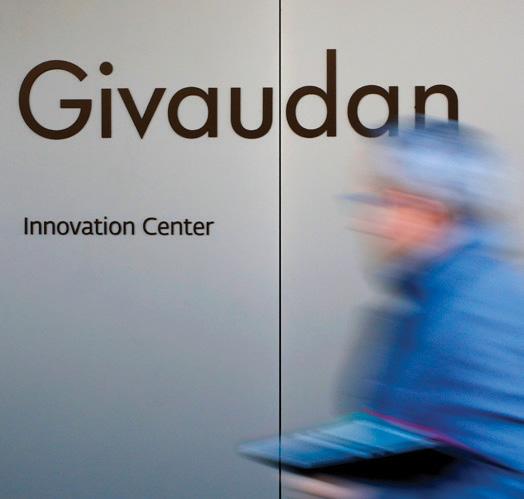
Fabulous flavours: Givaudan’s new hub showcases its cutting-edge work in the food and flavours space p.50
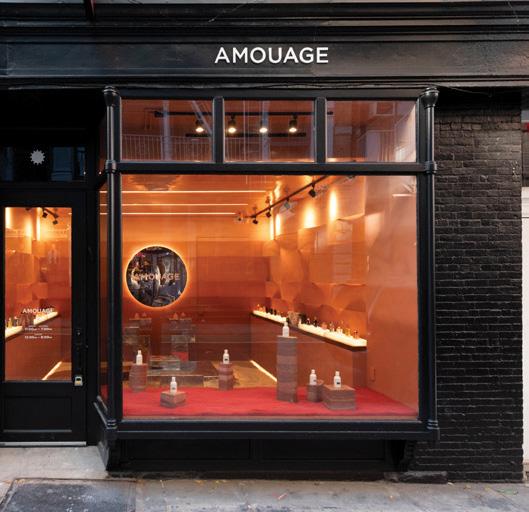
Cult favourite: Amouage is more than a fragrance brand; it’s a celebration of Omani culture p.52

Samsung S25: The latest series of AI-powered phones in the S series have hit the market P.55
“The declaration of 2025 as the ‘Year of Community’ highlights our priorities for the future: strengthening social bonds and fostering unity across society. The foundation of our nation’s strength lies in a united community, where individuals are connected, and care is extended to each other.”
Sheikh Mohammed bin Rashid Al Maktoum, Vice President and Prime Minister of the UAE and Ruler of Dubai
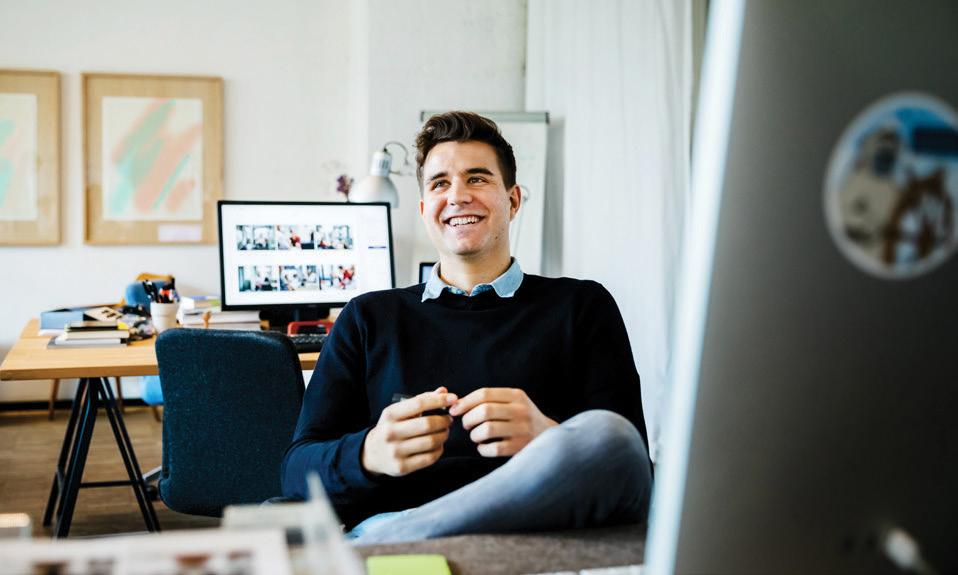
Insights on how the region’s dynamic SME ecosystem is evolving
Editor-in-chief Obaid Humaid Al Tayer
Managing partner and group editor Ian Fairservice
Chief commercial officer Anthony Milne anthony@motivate.ae
Publisher Manish Chopra manish.chopra@motivate.ae
Group editor Gareth van Zyl Gareth.Vanzyl@motivate.ae
Editor Neesha Salian neesha.salian@motivate.ae
Senior feature writer Kudakwashe Muzoriwa Kudakwashe.Muzoriwa@motivate.ae
Reporter Nida Sohail Nida.Sohail@motivate.ae
Senior art director Freddie N. Colinares freddie@motivate.ae
Senior art director Olga Petroff olga.petroff@motivate.ae
General manager – production S Sunil Kumar
Production manager Binu Purandaran
Production supervisor Venita Pinto
Digital sales director Mario Saaiby mario.saaiby@motivate.ae
Group marketing manager Joelle AlBeaino joelle.albeaino@motivate.ae
Cover: Freddie N Colinares
Follow us on social media: Linkedin: Gulf Business Facebook: GulfBusines X: @GulfBusiness Instagram: @GulfBusiness
HEAD OFFICE: Media One Tower, Dubai Media City, PO Box 2331, Dubai, UAE, Tel: +971 4 427 3000, Fax: +971 4 428 2260, motivate@motivate.ae DUBAI MEDIA CITY: SD 2-94, 2nd Floor, Building 2, Dubai, UAE, Tel: +971 4 390 3550, Fax: +971 4 390 4845 ABU DHABI: PO Box 43072, UAE, Tel: +971 2 677 2005, Fax: +971 2 677 0124, motivate-adh@motivate.ae SAUDI ARABIA: Regus Offices No. 455 - 456, 4th Floor, Hamad Tower, King Fahad Road, Al Olaya, Riyadh, KSA, Tel: +966 11 834 3595 / +966 11 834 3596, motivate@motivate.ae LONDON: Acre House, 11/15 William Road, London NW1 3ER, UK, motivateuk@motivate.ae






How

With ambitious plans for 2025 and beyond, the region is embracing emerging technologies, renewable energy, and human capital development to redefine its economic future
The Gulf Cooperation Council (GCC) has long been a pillar of global economic strength, with its wealth largely stemming from abundant oil reserves. However, as the region approaches 2025, its economic landscape is shifting at an unprecedented pace. The GCC is transitioning from an oil-dependent economy to one that embraces diversification, sustainability, and technological innovation. This transformation is being driven by both government initiatives and private-sector dynamism, as well as substantial investments from international stakeholders.
At the heart of this transformation is the region’s ambitious drive toward economic diversification. For decades, hydrocarbons have dominated the region’s economies, contributing between 45 per cent and 70 per cent of GDP across GCC countries as recently as 2022-23. While oil wealth remains critical, the global push to curb carbon emissions, coupled with volatile oil prices, has underscored the need to reduce dependence on this resource. Landmark initiatives such as Saudi Arabia’s Vision 2030 and the UAE’s “Projects of the 50” are central to this shift, positioning sectors like tourism, technology, and financial services as key pillars of future economic growth.
Saudi Arabia’s Vision 2030, bolstered by its sovereign wealth-driven Public Investment Fund (PIF), exemplifies the region’s ambition to diversify. One of the most high-profile projects under this vision is NEOM, a futuristic city that is expected to contribute $48bn to Saudi Arabia’s GDP by 2030. This shift highlights the country’s move away from oil dependency toward a knowledge-based economy. Similarly, the UAE is increasingly recognised as a hub of innovation and global commerce, with its economic reforms and infrastructure development expected to attract $27bn in foreign direct investment (FDI) by 2025. Together, these efforts aim to reduce the region’s reliance on oil, with projections suggesting that oil’s contribution to GDP will decline from 50 per cent to 35-40 per cent within the next few years. Sectors such as healthcare, renewable energy, logistics, and real estate are forecasted to grow at annual rates of 4 per cent to 6 per cent, strengthening the GCC’s economic resilience.
In tandem with economic diversification, the GCC is positioning itself as a global leader in digital transformation, embracing the possibilities of the Fourth Industrial Revolution. Smart cities, AI, and advanced digital infrastructure are driving new growth across the region. Saudi Arabia and the UAE are at the forefront of these developments, with national strategies like the UAE’s Artificial Intelligence Strategy 2031 and Saudi Arabia’s integration of AI under Vision 2030. The economic impact of AI in the GCC is projected to reach $320bn by 2030, with $45bn expected by 2025. Key sectors, including healthcare, education, and retail, are leveraging AI to enhance efficiencies, while transformative projects like Neom and Masdar City
are setting the stage for smart urban planning that drives both economic and social innovation. The rise of digital payments and e-commerce further underscores the region’s technological dynamism. High mobile penetration rates and a digitally-savvy population have fuelled the rapid growth of the digital payments sector, which is expanding at a compound annual growth rate (CAGR) of 13.3 per cent. This growth is reshaping consumer behaviour and business operations, while investments in smart city ecosystems—forecasted to reach $1.2tn by 2025 — are spurring advancements in green energy, autonomous transportation, and digital governance, further solidifying the GCC’s role as a cradle of technological progress.
Equally important is the region’s growing focus on renewable energy and sustainability. With abundant sunshine and a strategic emphasis on green initiatives, the GCC is quickly emerging as a global leader in solar and wind energy. Saudi Arabia’s Sakaka solar project and the UAE’s Al Dhafra solar park exemplify this trend, with solar energy expected to generate 25 per cent of the region’s electricity by 2026.
Investments in green hydrogen are also gaining momentum, with Saudi Arabia’s NEOM hydrogen project expected to produce 650 tonnes of hydrogen daily by 2025, contributing to a potential $200bn revenue stream by 2050. This strategic pivot toward sustainability is not only enhancing the region’s energy profile but is also driving innovation in industries such as construction, logistics, and tourism, supported by initiatives like Saudi Arabia’s Green Initiative and the UAE’s net-zero carbon commitments.
Human capital development is another crucial area of focus, though it remains a challenge. The GCC is implementing significant labor market reforms to align workforce skills with emerging industry needs. Initiatives such as Nitaqat and Emiratisation are increasing the participation of nationals in the private sector, with Saudi Arabia aiming to raise the share of nationals in private sector jobs to 30 per cent by 2025-26. These reforms need to be complemented by substantial investments in education and skills development
BAHRAIN’S FINTECH POLICIES AND SAUDI ARABIA’S DEVELOPMENT OF SPECIAL ECONOMIC ZONES WILL FURTHER ENHANCE THE REGION’S ATTRACTIVENESS. FDI INFLOWS ARE PROJECTED TO REACH $90BN BY 2025
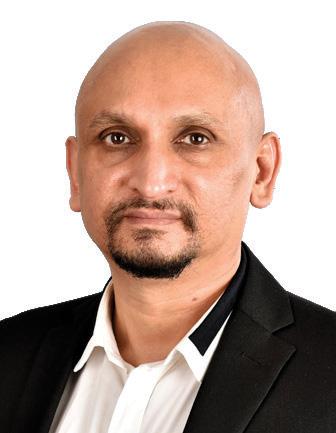
Dr M Muneer is a startup investor and co-founder of the non-profit Medici Institute for Innovation
— especially in STEM fields and vocational training. Amidst the ongoing geopolitical uncertainty, the strategic location and political stability of the GCC will continue to attract significant FDI, particularly from businesses targeting the lucrative markets of Asia, Africa, and Europe. Regulatory reforms, including the allowance for 100 per cent foreign ownership and streamlined business setup processes, are creating an increasingly investor-friendly environment. Bahrain’s fintech policies and Saudi Arabia’s development of special economic zones will further enhance the region’s attractiveness. FDI inflows are projected to reach $90bn by 2025.
Nevertheless, challenges remain. Tensions between Israel and Iran, fluctuating oil prices, and global trade uncertainties present ongoing risks. Moreover, the push for workforce localisation may increase competition for skilled talent, potentially driving up wages and operational costs. This will require companies to develop robust talent acquisition strategies. Despite these obstacles, the GCC’s commitment to economic resilience and adaptability will enable the region to overcome these challenges, provided its leadership continues to take proactive steps.
Sector-specific growth opportunities are another key facet of the GCC’s economic future. The tourism sector, for instance, is expected to contribute $85bn annually by 2026, driven by high-profile projects such as Saudi Arabia’s Red Sea Project and Dubai’s global status as a major tourist and shopping destination. Similarly, the healthcare sector is expected to grow at an impressive annual rate of 8.4 per cent, fueled by population growth and increasing demand for advanced medical care. The real estate sector, backed by ambitious infrastructure projects in Saudi Arabia and the UAE, is also poised for steady expansion, with annual demand growth rates of 5 per cent. As the GCC navigates 2025, it finds itself at the beginning of a transformative era. The region’s focus on diversifying its economies, embracing technological advancements, and championing sustainability reflects its determination to redefine its role in the global economy. This journey is not simply about reducing reliance on oil; it’s about building a future-ready economy that thrives on innovation, inclusivity, and resilience. For businesses operating in or eyeing the GCC, the next few years represent a critical window of opportunity to align with the region’s evolving vision and capitalise on its vast potential. As it rewrites its future, the stage is set for a new era where innovation fuels ambition and the desert blooms with opportunity. From oil wells to AI spells, the GCC is scripting a future where resilience meets reinvention — welcome to Gulf 2.0.

In a world where digital finance solutions and automation are redefining our profession, the role of accountants has never been more critical. Digital advancements are reshaping businesses across sectors. However, with these advancements come unique ethical challenges, demanding our profession to serve not only as financial guardians, but also as ethical stewards. We must ensure that as finance evolves, so too does our longstanding commitment to transparency, governance and ethical standards. Technology has brought about exciting possibilities for the finance world. Digital accountancy offers unrivalled efficiencies and allows businesses to operate at a scale and speed unimaginable just a decade ago. Tools like artificial intelligence (AI), blockchain and data analytics enable accountants to process vast amounts of data and even predict future trends. In fact, according to ACCA’s report Digital Horizons, AI adoption has already reduced manual tasks by up to 80 per cent, freeing accountants to focus on strategic decision-making.
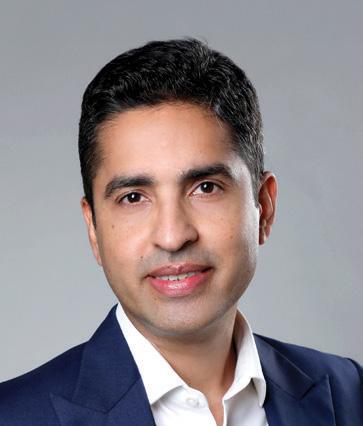
However, as digital finance is adopted more widely, ethical finance practices are also becoming more crucial. Advanced tools have increased the ability to manipulate or misinterpret data, creating new ethical risks. Automation, though valuable, cannot replace the discernment of human judgement, especially when it comes to ethical considerations. Our role as accountants is not only to adopt these technologies but to continue to uphold ethical standards and transparency when using them.
As AI becomes embedded within accounting practices, maintaining transparency is a significant challenge. Without a clear understanding of how AI reaches conclusions, businesses risk compromising transparency, which could erode trust with stakeholders. This is where the accountant’s role becomes invaluable. We must be vigilant in ensuring that AI applications in finance are aligned with ethical standards, and that the data they use is not biased or misleading. By understanding the algorithms and data that drive AI, accountants can act as interpreters for stakeholders, ensuring that insights generated are transparent, explainable and trustworthy.
COMPANIES WITH STRONG ENVIRONMENTAL, SOCIAL AND GOVERNANCE PRACTICES SEE LONG-TERM BENEFITS, SUCH AS A 5-10% COST
As digital finance tools increase, robust governance structures are essential to safeguard ethical practices. Governance is about setting a framework of rules, policies and procedures to guide behaviour, especially in an era of rapid technological change. According to a recent ACCA survey, over half of accountants reported witnessing unethical behaviour within their organisations. This statistic underscores the need for strong governance to hold individuals and companies accountable for their actions.
Accountants play a central role in developing and enforcing governance frameworks. By setting clear guidelines and enforcing rigorous internal controls, we can create an environment where ethical breaches are less likely to occur. At ACCA, we have always believed that good governance is the foundation of ethical finance. This is not only about compliance but about building a culture of accountability and integrity at every level of the organisation.
In the digital era, the accountant’s role extends beyond financial management to ethical stewardship. As ethical challenges grow in complexity, finance professionals, long trusted as custodians of financial integrity, should continue to actively promote ethical behaviour. This means educating teams on ethical dilemmas related to technology and empowering individuals to speak up against unethical practices. The importance of continuous learning cannot be overstated. Technology is evolving at a rapid pace
ARE RAPIDLY DEVELOPING, ETHICAL FINANCE IS PARAMOUNT. OUR REGION IS KNOWN FOR ITS AMBITIOUS GROWTH, BUT WITH THAT COMES A RESPONSIBILITY TO BUILD A SOLID FOUNDATION OF TRUST.
AI ADOPTION HAS ALREADY REDUCED MANUAL TASKS BY UP TO 80%, FREEING ACCOUNTANTS TO FOCUS ON STRATEGIC DECISION-MAKING
and to keep up, we must be willing to continually expand our knowledge and skills. ACCA supports this through ongoing education and resources, helping our members stay informed about ethical considerations in an increasingly digital world.
Today, ethical practices are more than a moral obligation; they are a competitive advantage. Businesses that prioritise ethics and transparency are more likely to attract and retain customers, investors and partners. In a recent report, we found that companies with strong Environmental, Social and Governance (ESG) practices see long-term benefits, such as a 5-10 per cent cost saving and up to 20 per cent growth in value. In a world where stakeholders increasingly value ethical behaviour, upholding these standards sets businesses apart.
In the Middle East and Eurasia, where economies are rapidly developing, ethical finance is paramount. Our region is known for its ambitious growth, but with that comes a responsibility to build a solid foundation of trust. By embedding ethics into digital finance, we can help our markets grow sustainably and build a reputation for integrity on the global stage.
The future of finance will undoubtedly be digital, but it must also be ethical. As we move forward, finance professionals must continue to embrace technology, while upholding the ethical standards that have always defined us. We need to be proactive in anticipating the ethical implications of new technologies and develop frameworks to address them. This may require us to redefine our roles and expand our skill sets, but the result will only be positive, driving us forward to a profession that is not only at the forefront of digital transformation, but also a beacon of ethical leadership.
As accountants, we have the privilege, and the responsibility, to shape the future of finance. And in that future, I firmly believe ethics will remain our guiding principle.

How cloud migration is driving growth, empowering businesses, and positioning the MENA region as a global leader in technological advancement
The Middle East and North Africa (MENA) region is becoming a hub for technological advancement, marked by a unique blend of maturity and potential in its adoption of cutting-edge cloud technologies. Often referred to as a “sandbox” for innovation, the MENA region is experiencing a substantial ramp up in activity, with latest investments paving the way for the next boost in innovation.
Notably, Amazon Web Services (AWS) and UAE-based telco e& signed a $1bn cloud agreement last year, with an aim to offer cloud services to businesses in the public sector and heavily regulated industries including healthcare, finance, and oil and gas in the Middle East. Across the next six years, attention will fall on cloud services including storage, computing, networking, cybersecurity, AI and machine learning.
Saudi Arabia’s Vision 2030 also represents a long-term commitment to establish the country as a global leader by diversifying its economy, empowering citizens and creating a vibrant environment for both local and international investors. The region demonstrates readiness to not only embrace, but to turbocharge development and adoption of rising technologies, setting itself apart as a leader in digital innovation. Already this year, the entire MENA region’s startup ecosystem attracted $1.3bn in funding, marking a 34 per cent increase in total investors.
So what does the future hold?
Cloud migration in the region is accelerating. Businesses are leveraging partnerships with providers like AWS to transition from legacy systems to build stronger foundations that can better support the increasing rate of innovation taking place. Many businesses in the region have historically invested heavily in on-premises technologies, and it’s their maturity in infrastructure, data strategy and partnerships that allows them to now transition smoothly to cloud-native environments. Instead of taking two to four years, some are able to migrate in one to two. Also, instead of doing a migration and moving to compute, you can do a migration and move into heavier services using GPUs and driving the models that actually run the business, rather than making a one for one change. When it comes to leveraging technologies, fewer companies are merely experimenting with tools like generative AI for proof-ofconcept projects. Instead, they are deploying these technologies to drive core business functions. From leveraging large language models and vector databases to refining operational efficiencies, businesses across the MENA region are embedding innovative tech into their revenue-driving activities.
MANY BUSINESSES IN THE REGION HAVE HISTORICALLY INVESTED HEAVILY IN ONPREMISES TECHNOLOGIES, AND IT’S THEIR MATURITY IN INFRASTRUCTURE, DATA STRATEGY AND PARTNERSHIPS THAT ALLOWS THEM TO NOW TRANSITION SMOOTHLY TO CLOUD-NATIVE ENVIRONMENTS. INSTEAD OF TAKING TWO TO FOUR YEARS, SOME ARE ABLE TO MIGRATE IN ONE TO TWO.
Like every market, businesses across the MENA region have their own hurdles to overcome. The challenges usually fall into three buckets. At first glance, it can be tricky to find partners in the region that can match their level of maturity. It’s the nature of a greenfield market like MENA, where there aren’t the same established players – like Accenture — as there are in other more established regions. When businesses move to the cloud, there’s often a lack of technical talent from contractors or outsider perspectives, so they therefore need to harness it internally. Sourcing resources from offshore also doesn’t necessarily drive the natural growth and isn’t always the right investment. That leads on to the second challenge, broadening out their internal skills. Many of these organisations have very impressive on-premise talent, which is unsurprising given the maturity of the infrastructure being used. Whilst they’ve invested lot in the code and infrastructure side, pivoting these skills over to the cloud requires another level of maturity.
So when it comes to operationalising their infrastructure, many have looked at it from a software standpoint, but not an infrastructure development perspective. There’s a greater focus on adopting different tiers of a more mature architecture across development, staging and production environments. These businesses house a lot of deep technical talent, but they can run into challenges when updating their business models, like from on-prem to cloud. Finally, there’s the technical challenges. Businesses across the MENA region have an edge in that they’re currently coming onto market, meaning they have the agility that older, more established markets lack. They therefore have the flexibility to pick and choose the tools they want, but they don’t necessarily have
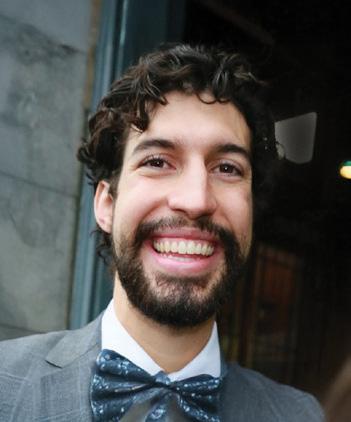
Christian McCaffrey is the CTO at VeUP
NOTABLY, AMAZON WEB SERVICES (AWS) AND UAE-BASED TELCO E& SIGNED A $1 BN CLOUD AGREEMENT LAST YEAR, WITH AN AIM TO OFFER CLOUD SERVICES TO BUSINESSES IN THE PUBLIC SECTOR AND HEAVILY REGULATED INDUSTRIES
the guidance to support them throughout these decisions. It links back to not having partners like Accenture and others available to them. As a result, the tools being used may bring their own technical debt that could cause changes down the line work against revenue driving efforts.
Data strategy remains a critical factor in the success of cloud initiatives. The MENA region in particular is home to a wealth of talented data scientists and developers, who excel at building sophisticated models. However, many businesses still struggle to bridge the gap between development and production. This is where tools like AI – as part of a larger strategy — can offer huge value. By maturing their data architectures, companies can better leverage AI to enhance scalability, improve efficiency, and drive innovation.
Cloud environments offer an ideal platform for this evolution, providing the flexibility and scalability that on-premises systems lack.
Above all else though, contrary to the perception of being a “sandbox”, the MENA region is clearly becoming a global leader in technology innovation. While Silicon Valley continues to drive much of the world’s technological advances, the MENA region isn’t far behind. Its ‘late-adopter’ advantage allows businesses to bypass legacy constraints and adopt best-of-breed tools tailored to their needs. This agility positions MENA as a pioneer in leveraging nextgeneration technologies like AI.
As global markets continue to watch MENA with anticipation and drive greater collaboration, the region’s influence on the broader tech landscape is poised to grow. With a unique combination of readiness and opportunity, it is redefining what it means to drive growth and innovation through cloud transformation. By addressing challenges in talent, infrastructure and technological adoption, MENA can cement its position as a global leader in digital innovation.
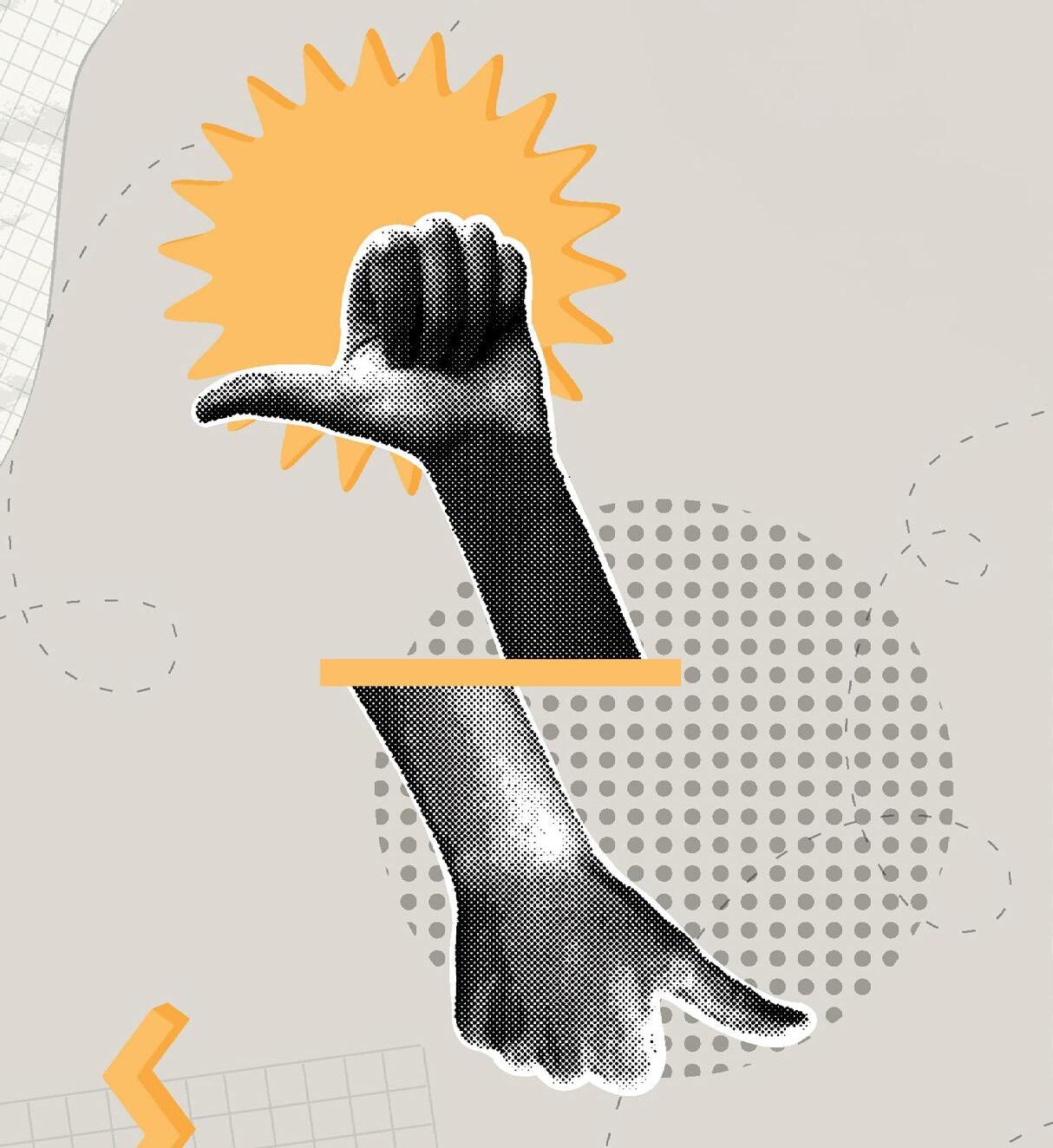
We delve into the mechanics of double taxation treaties, addressing common concerns for Gulf residents with foreign ties, and offering clear insights into managing cross-border tax obligations
As the Gulf region’s business opportunities and tax benefits continue to attract expatriates and HNWIs, the question of how global income is taxed for those maintaining ties abroad is a crucial consideration.
Double taxation treaties (DTTs) play a critical role in determining this, and for Gulf residents, many of whom hold second residencies in countries with comprehensive tax systems, understanding these treaties is vital to managing global tax liabilities. Whether it’s income from employment, pensions, investments, or property abroad, leveraging DTTs can help ensure compliance and optimise tax efficiency.
Double taxation happens when two countries claim
the right to tax the same income, and for expats in the GCC, this can be a tricky issue. While the region doesn’t typically tax personal income, many expats still have financial ties to countries that do. This can raise questions about who gets to tax what, and without the right planning, you could find yourself paying tax twice on the same income—an unnecessary hit to your finances and a headache in terms of compliance.
The most common scenarios where this arises include:
– Living in one country and earning income in another
– Cross-border employment or freelancing
– Retirement income or pensions from another country
– Investments or dividends from foreign sources
DTTs are designed to resolve these complexities and remove any ambiguity over which country has taxation rights. By establishing clear rules, they ensure that individuals and businesses aren’t unfairly taxed across borders.
Under a typical DTT, two methods are commonly used to determine tax obligations:
Credit method: Under this system, the tax paid in the source country is credited against the tax liability in the resident country. For example, if you earn income in a country with a 20 per cent tax rate and your resident country has a 25 per cent rate, you would only pay the remaining 5 per cent to your resident country. This ensures you are not taxed twice for the same income.
Exemption method: Here, income that has already been taxed in the source country is entirely exempt from taxation in the resident country. This method is particularly beneficial when the source country’s tax rate is higher than the resident country’s, allowing taxpayers to avoid additional liabilities.
For Gulf residents, particularly expatriates and those with international income sources, understanding tax residency rules and the treatment of different income types is crucial to avoiding tax liabilities in multiple jurisdictions. While Gulf countries like the UAE, Saudi Arabia, and Qatar are widely regarded as tax havens, many Gulf residents still face tax obligations in other countries due to their global ties.
What it means and how it’s determined
Tax residency decides where you’re legally required
to pay taxes. While Gulf countries like the UAE don’t have personal income tax, they still define residency for administrative or business purposes. In the UAE, you’re considered a resident if you hold a valid residency visa and spend at least 183 days in the country each year. Other Gulf countries, like Saudi Arabia, follow similar rules, but details vary.
If you qualify as a resident in two countries, tax treaties use rules to decide:
Permanent home: Where you have a permanent place to live.
Stronger ties: The country where your personal, social, or economic connections are deeper.
Time spent: If ties are unclear, it’s based on where you spend the most time.
For example, a Gulf resident with a home in both the UAE and the UK would need to determine their residency status under the UAE-UK Double Taxation Agreement.
EMPLOYMENT INCOME:
Gulf countries like the UAE and Qatar don’t tax salaries. But working for a foreign company or spending time in a country with income tax (For example, the UK or US) could mean taxes apply. For instance:
– Remote work for a UK employer may trigger UK PAYE tax if the role is considered UK-sourced. Relief might apply under treaties if physical presence is minimal.
– Short-term assignments abroad (under 183 days) may qualify for exemptions under local laws or treaties.
INVESTMENT INCOME (DIVIDENDS AND INTEREST):
– Dividends from foreign shares are often taxed in the source country. For example, US dividends for a UAE resident face 30 per cent withholding tax, reducible under treaties.
– Interest income from foreign bank accounts or bonds can also be taxed at the source. A Qatari resident earning German interest may pay less under treaty agreements.
RENTAL INCOME FROM PROPERTIES ABROAD:
Real estate income is taxed where the property is located. For example:
– A UAE resident renting out a UK property must pay UK income tax, typically 20 per cent for basicrate taxpayers.
– Rental expenses like maintenance might be deductible, but filing requirements vary.
PENSIONS AND RETIREMENT BENEFITS: Pension tax depends on the treaty between countries. Examples of this include:
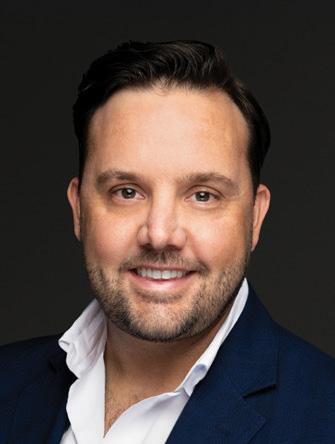
Sheldon Labuschagne is the CEO at Knightsbridge Group
– UK state pensions paid to UAE residents are generally taxed in the UK.
– US pensions may still face US federal taxes unless treaties reduce the burden.
– Selling property, shares, or other investments abroad may result in capital gains tax. For example, Saudi residents selling property in Spain pay Spanish taxes unless a treaty offers relief.
– Non-residents are often exempt from capital gains tax on shares but not real estate in countries like the UK.
The key takeaway is - Where income or assets are located matters. Double taxation treaties can minimise liabilities, but understanding local rules and keeping records of taxes paid abroad is essential for avoiding surprises and optimising your finances.
If you’re a Gulf resident with a second residency abroad, it’s important to understand the difference between residency for immigration purposes and tax residency. Just because you have the right to live in another country doesn’t mean you’re automatically considered a tax resident there. Tax residency depends on factors like how much time you spend in the country, your financial ties, and any applicable double taxation treaties.
To protect yourself, make sure you secure a Gulf residency certificate and keep detailed records of any taxes you’ve paid abroad. Misinterpreting residency rules or forgetting to report global income can lead to unexpected tax bills or penalties — headaches no one wants to deal with.
01. Identify applicable treaties
Review treaties between your Gulf country and the income source country to determine relief options.
For instance, the UAE-UK DTT may lower withholding tax on UK dividends.
02. Obtain a tax residency certificate
Apply through your Gulf country’s Ministry of Finance. This document confirms eligibility for treaty benefits and is essential for claiming relief abroad.
03. File claims for relief
Claim tax credits or exemptions in the source country by providing the tax residency certificate and relevant documents. For example, rental income from the UK may qualify for tax credit under the UAE-UK DTT.
04. Seek professional advice
Engage a tax advisor to interpret treaties, file claims, and manage disputes with foreign tax authorities.

We look at how companies can navigate the compliance landscape in the Middle East
The Middle East’s compliance landscape is undergoing significant transformation, influenced by geopolitical shifts, economic realignments, and technological advancements. For chief compliance officers (CCOs) and businesses operating in this dynamic environment, understanding and adapting to these evolving trends is crucial.
The Middle East’s geopolitical landscape has always been complex, but recent crises are reshaping the region in ways that are sure to keep CCOs awake at night.
Such upheavals create cascading risks for businesses operating in or trading with the region. Disrupted supply chains are an immediate concern; for instance, intensified conflict zones or border restrictions could delay shipments, increase costs, and disrupt operations. For sectors like energy and logistics, where the Middle East serves as a vital hub, these disruptions could ripple globally.
Further complicating matters, the anticipated return of stringent US sanctions — potentially targeting entities with links to Iran or Syria — will require heightened vigilance in know-your-customer (KYC) and anti-money laundering (AML) practices. As new alliances form and old ones dissolve, ensuring accurate due diligence will be critical. Businesses must not only identify sanctioned entities but also map out complex ownership structures to avoid secondary exposure. In 2024 alone, over 25 per cent of financial institutions reported increased compliance costs tied to enhanced KYC requirements, according to Thomson Reuters.
While geopolitical tensions present challenges, China’s continued economic slowdown may offer unexpected opportunities for the Middle East. As Beijing’s economy grapples with structural weaknesses and declining global demand, its investments and energy imports are likely to scale back. This deceleration could reduce the region’s dependence on China as one of its primary trading partners, encouraging Gulf states to diversify their economic alliances further westward.
Saudi Arabia, in particular, is well-positioned to capitalise on this pivot. With the Middle East increasingly marketed as a stable and attractive destination for foreign direct investment, the region is poised to absorb capital flows redirected from East Asia.
In 2022, Saudi Arabia alone attracted $20.7bn in foreign direct investment — a 337 per cent increase from 2016 —underscoring the region’s growing appeal to global investors.
Ben Cockram is the MD Counsel Recruiting at Major, Lindsey & Africa
This shift is also driving significant growth in sectors like clean energy, logistics, and financial services, as Middle Eastern nations continue the work to diversify their economies. For compliance teams, this diversification introduces new challenges, including navigating unfamiliar regulatory landscapes and managing the risks associated with multi-jurisdictional operations.
The Middle East is witnessing an influx of hedge funds, family offices, and private equity firms registering at ADGM or the DIFC, drawn by the region’s economic prospects and relative stability. This trend introduces sophisticated financial instruments and complex investment structures, elevating the importance of robust compliance mechanisms to mitigate risks such as money laundering and fraud.
Concurrently, the region’s relatively lenient stance on cryptocurrencies has positioned it as a haven for digital asset enterprises. The exit of major crypto platforms like Binance from the US market, due to stringent regulations, underscores this shift. However, the absence of rigorous oversight in the Middle East could expose businesses to financial crimes and regulatory scrutiny from other jurisdictions, underscoring the necessity for comprehensive internal compliance protocols.
01. Trade sanctions and export controls: The reimplementation of US sanctions demands meticulous compliance strategies. Businesses must establish robust screening processes to ensure transactions do not involve sanctioned entities, thereby averting severe penalties.
02. Anti-bribery and corruption (ABC): Aligning with global standards, Saudi Arabia has intensified its anti-corruption efforts, mirroring the US Foreign Corrupt Practices Act (FCPA). This alignment necessitates that companies operating in the kingdom implement stringent ABC policies and training programmes to ensure adherence to both local and international regulations.
03. Investigations and due diligence: The intricate
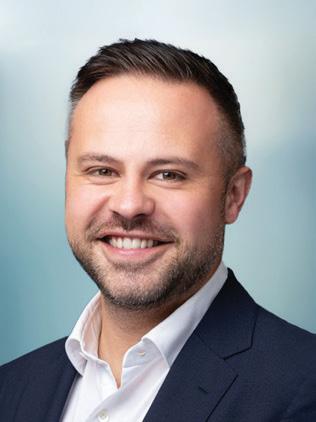
geopolitical landscape requires comprehensive due diligence to identify potential risks in business partnerships. Proactive internal investigations are essential to detect and address compliance issues promptly, thereby safeguarding organisational integrity.
04. Data privacy and cybersecurity: The enactment of data protection laws, such as Saudi Arabia’s Personal Data Protection Law (PDPL), signifies a regional shift towards stringent data governance. Organisations must invest in robust data management systems and cybersecurity measures to comply with these regulations and protect against cyber threats.
The evolving compliance landscape underscores the critical need for skilled professionals adept at navigating complex regulatory environments. However, the Middle East faces a significant talent shortage in this domain.
According to Mercer’s 2024 Global Talent Trends Study, 50 per cent of regional HR professionals identify skills shortages as a top threat to their businesses. This scarcity is particularly acute in specialised areas such as compliance and governance, often necessitating the relocation of qualified professionals from global markets to fill the gap.
Integration of artificial intelligence (AI): A study by PwC predicts that by 2025, 70 per cent of businesses in the Middle East will incorporate AI into their compliance programmes, significantly altering the way companies approach data protection and regulatory adherence.
Emphasis on environmental, social, and governance (ESG) factors: Global trends indicate a shift from voluntary to mandatory ESG disclosures. Middle Eastern businesses are expected to align with this movement, necessitating the integration of ESG considerations into compliance frameworks.
Enhanced cybersecurity measures: Cybersecurity has become a critical focus with the increasing digitisation of business operations. Nearly half of the organisations in the Middle East have dedicated resilience teams in place, reflecting a proactive approach to safeguarding economic growth and innovation.
For businesses operating in the region, staying abreast of these trends and proactively adapting compliance strategies is essential.
Investing in skilled compliance professionals and leveraging advanced technologies will be pivotal in navigating the complexities of 2025 and beyond.



2025
GULF BUSINESS BREAKFAST (DUBAI, UAE)
BREAKING GROUND: e UAE real estate outlook

2025
GULF BUSINESS BREAKFAST (RIYADH, KSA)
FINTECH FRONTIERS: Focus on AI, DeFi and digital payments

2025
GULF BUSINESS BREAKFAST (DUBAI, UAE)
TECH AMBITIONS: How the UAE is becoming an AI, blockchain leader


2025
GULF BUSINESS BREAKFAST (DUBAI, UAE)
TRADING AHEAD: State of the UAE’s online investment sector

2025
GULF BUSINESS AWARDS (DUBAI, UAE)
Recognising the best in key sectors across the GCC

2025
GULF BUSINESS BREAKFAST (DUBAI, UAE)
BUILDING TOMORROW: Innovations and sustainability in UAE real estate



BY





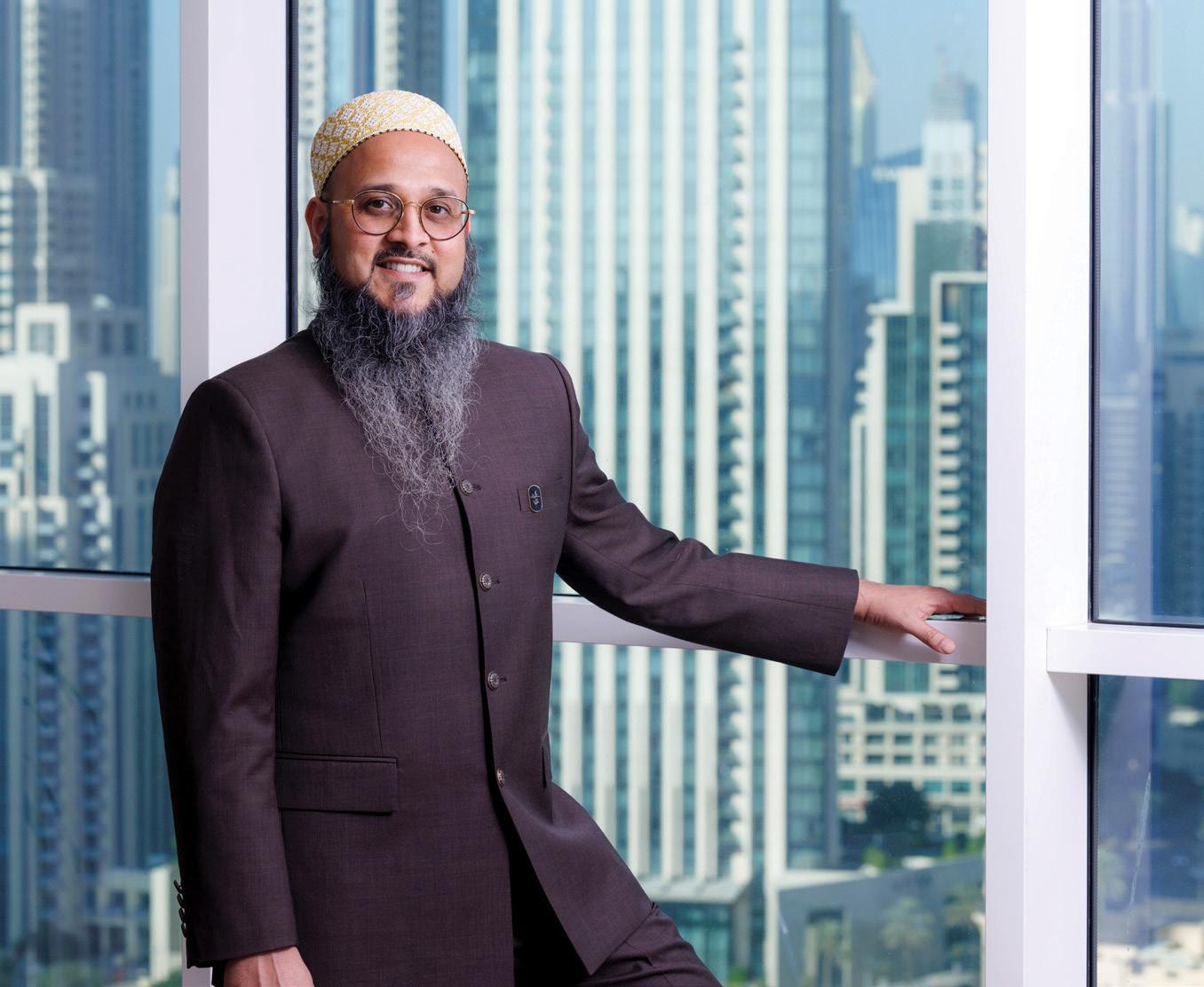
The
UAE is emerging as a leader in sustainable living. Fakhruddin Properties is supporting its journey by integrating new technology and green practices into its communities
In the heart of Dubai, a morning unfolds with quiet efficiency. Solar panels atop homes harvest energy for an entire neighborhood. The waste generated the night before is seamlessly processed, converted into energy or recycled without a trace of inefficiency. Water systems collect and purify every drop, ensuring sustainability in one of the world’s most arid regions. Residents navigate through a city where every system — energy, waste, transportation — is interconnected. This is not just a vision of the future. This is the emerging reality of integrated ecosystems — where cities are not merely built but choreographed to function in absolute harmony. For much of human history, urbanisation has been a story of fragmentation — housing developments here, industrial zones there, infrastructure built in isolation. The 20th century’s rapid urban expansion deepened this divide,
leading to megacities struggling under the weight of their own inefficiencies. Water, energy, and waste systems were designed separately, leading to duplication, resource wastage, and environmental degradation.
Now, that paradigm is shifting. In Amsterdam, urban planners are building neighbourhoods that reuse 70 per cent of their materials, creating self-sustaining cycles where waste streams feed energy grids. Singapore has pioneered smart city initiatives, deploying real-time sensors to optimise water use, waste management, and energy distribution. These are not just technological advancements — they are reimaginings of how urban life can function as a seamless, sustainable whole.
The UAE, however, stands uniquely poised to lead this transformation. With its ambitious development plans and forward-thinking leadership, the UAE has
Beyond technology, I believe that integrated ecosystems are not just a technological challenge— they are a cultural one.”
rapidly positioned itself at the forefront of integrated urban ecosystems. Sustainable cities in the UAE are proving that even in extreme environments, renewable energy, smart water management, and circular waste systems can converge to create urban spaces that are both livable and future-proof.
Yet, the challenges are as vast as the ambition. Integrated ecosystems require a complete rethink of governance, planning, and financing. Who funds these systems? How do public and private sectors collaborate to ensure their seamless execution? While the upfront costs may deter some stakeholders, the long-term economic and environmental benefits — lower energy costs, reduced urban congestion, and improved quality of life — far outweigh the initial investment.
For the UAE, the stakes have always been high. The vision of its leadership has not just been about urban growth but about global impact. The region has an opportunity to set the benchmark for the cities of the future, where sustainability is not a feature but a fundamental operating principle.
At Fakhruddin Properties, this vision is not just an aspiration — it is embedded in our core philosophy. Our commitment is to be the market leader in practical, sustainable lifestyle developments, ensuring that every project aligns with the nation’s long-term vision. Through our developments, we are integrating technology in ways that positively impact the daily lives of residents — from advanced indoor air quality systems to optimised water management and energy efficiency solutions.
Beyond technology, I believe that integrated ecosystems are not just a technological challenge — they are a cultural one. True sustainability comes from changing the way we think about urban living, ensuring that cities are designed not just for efficiency but for well-being, resilience, and human connection.
At Fakhruddin Properties, we are not just building homes. We are creating sustainable, intelligent living environments— where technology, nature, and human aspiration converge. This is the future of urban living, and the UAE is leading the way.















Pics: Supplied
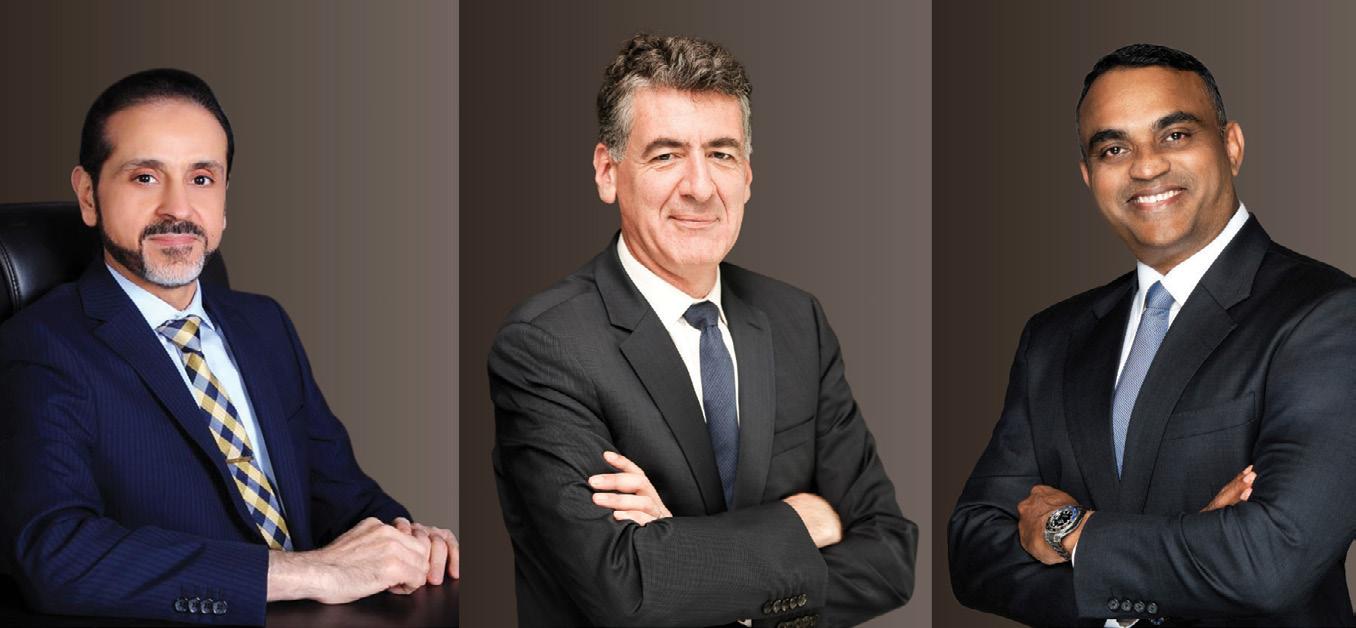
TEAM HPE ARUBA NETWORKING: (LEFT TO RIGHT)
Jamil Ahmad , Country Manager , Saudi Arabia , Alain Carpentier , Senior Vice President for Worldwide Sales , and Jacob Chacko , Regional Director for the Middle East and Africa , HPE Aruba Networking
At LEAP 2025, HPE Aruba Networking will showcase its innovative AI-powered, security-first networking solutions
With enterprises in Saudi Arabia increasingly relying on cloud services, Internet of Things (IoT) devices, and remote workforces, traditional approaches to networking are no longer sufficient, particularly in the face of growing cyber security threats. As more sophisticated and secure networks are required to cope with the tremendous levels of data traffic enterprises are faced with, artificial intelligence (AI) is helping to automate network management, improve security, and deliver previously out of reach insights. AI has rapidly evolved from a futuristic concept to an essential tool for managing today’s complex, largescale networks, especially as companies across the Middle East accelerate their digital transformation in the post-Covid era. On one hand, ‘Networking for AI’ can build the infrastructure required to support the heavy data demands of AI, ensuring speed, scalability, and reliability. On the other, it leverages AI to enhance network operations, automating processes and predicting issues before they happen.
The integration of AI into networking solutions has made networks more intelligent and proactive. AI automates
“At HPE Aruba Networking, we are committed to redefining the future of connectivity with a security-first, AI-driven approach, blending sustainability and innovation to shape smarter, more secure networks for tomorrow.” — Jamil Ahmad
network management, which can be overwhelming for human teams, especially in environments with numerous connected devices. AI ensures optimal security and performance without constant manual intervention, improving efficiency and minimising human error.
In Saudi Arabia, in line with Vision 2030 and the leadership’s digital transformation strategy, the scale of IoT deployments is rapidly increasing, with growing adoption across sectors from manufacturing through to healthcare. Yet rapid adoption comes with its challenges. In 2023, statistics suggest that 40 per cent of the total cyberattacks sustained by Saudi Arabian organisations in recent years were successful, with cyber-attacks targeting retail, military, government, telecommunications, and financial services sectors.
As cyber-attacks grow in complexity, traditional security models like zero trust and centralised firewalls remain crucial. However, relying solely on these methods may not suffice against the ever-evolving and persistent threats. The company’s AI-driven, security-first networks offer a robust solution. They integrate on-network traffic inspection without sacrificing performance, adaptive security
“With AI continuing to disrupt industries and networks becoming more critical than ever, HPE Aruba Networking’s vision for the future is centred on innovation, security, and scalability.” — Alain Carpentier
protocols, and AI-powered visibility for enhanced protection, providing a more resilient defense than conventional security methods. HPE Aruba Networking expanded its capabilities through several strategic acquisitions, including SD-WAN and Zero Trust Network Access solutions, and has developed a management control plane called HPE Aruba Networking Central that allows administrators to monitor and manage their entire network. These initiatives offer comprehensive, AI-powered security solutions designed to meet the demands of modern networking.
HPE Aruba Networking has a clear vision to lead the industry in AI-powered networking and secure solutions for enterprises of all sizes.
With the kingdom preparing to welcome the world for major global events such as World Expo 2030 and the 2034 FIFA World Cup, there is a tremendous opportunity to be involved in the kingdom’s journey as it undergoes a transformation to host these prestigious events.
2025: A SHOWCASE OF SUSTAINABLE AND AI-DRIVEN CONNECTIVITY
This year at LEAP in Saudi Arabia, one of the most important technology events in the region, HPE Aruba Networking will be taking centre stage with a unique approach to its solutions and offerings that highlight ambitious plans to revolutionise sustainability and AI-driven, security-first networking solutions.
As AI continues to transform how enterprises operate, with the company’s commitment to providing secure, scalable solutions, there’s no doubt that the company’s next chapter will be an exciting one.
“We’re seeing businesses in the Middle East really push the boundaries, and HPE Aruba Networking’s AI-powered networking solutions are perfectly positioned to support their ambitions.” — Jacob Chacko
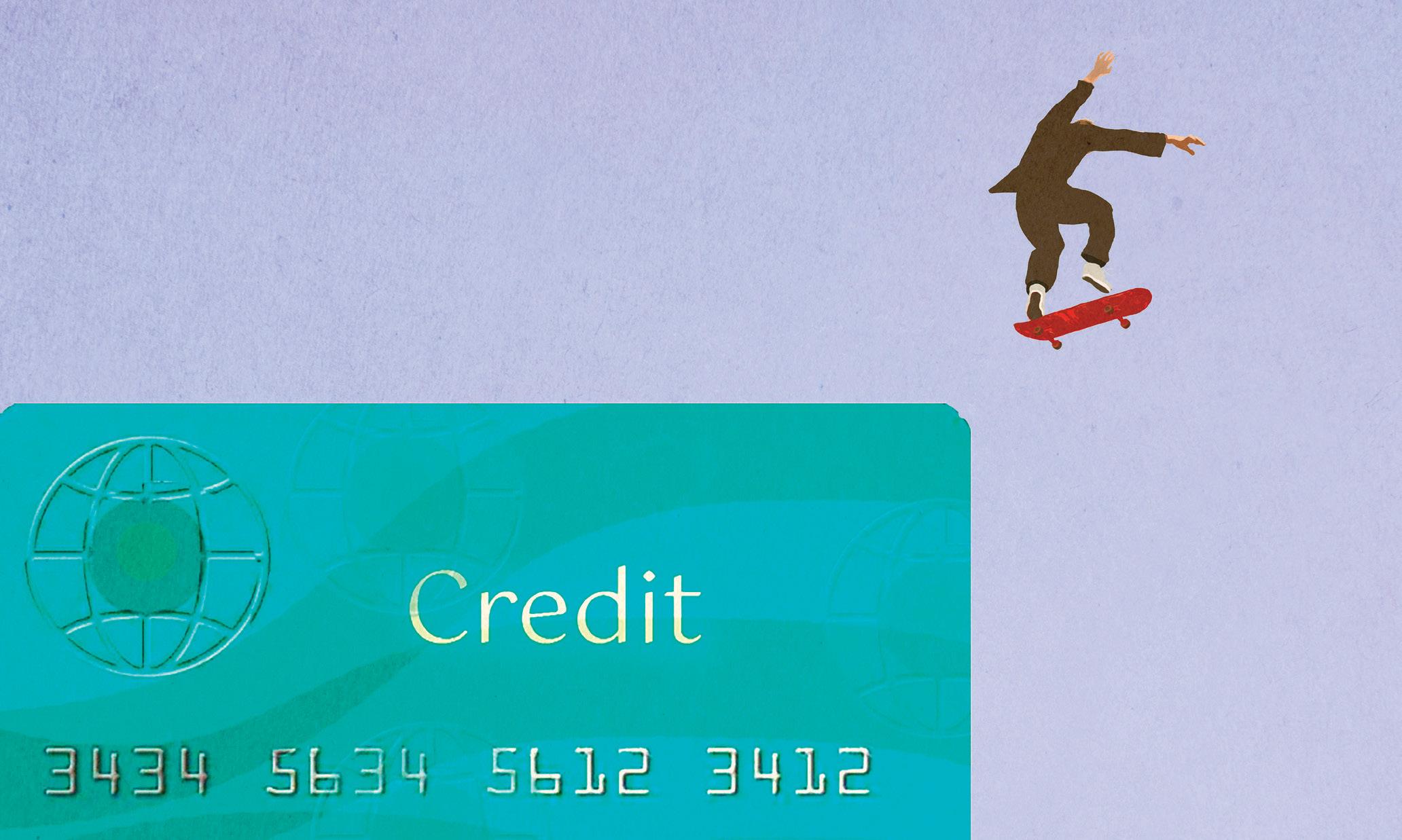
Payment service providers need to rethink their business model and take advantage of their customer relationships to offer more diversified services
For years, payment service providers (PSPs), the companies that facilitate electronic payments, derived substantial and reliable revenue from processing payments. However, these companies, which include banks, non-bank acquirers, and some financial technology (fintech) providers, now confront narrower margins as payment processing and money movement become cheaper.
To preserve their revenue and market share, PSPs need to rethink their business model and take advantage of their customer relationships to offer more diversified services that meet the changing needs of consumers and businesses.
To appreciate the magnitude of the threat PSPs face and their urgency to adapt, it is critical to
understand the sea change in the payments space in a relatively short period.
Global payment networks like Visa, Mastercard, and SWIFT, once the backbone of the money movement, are facing increasing competition from local and regional players.
Domestic infrastructures — such as instant payment systems like Sarie in Saudi Arabia and Aani in the UAE, domestic card schemes such as Mada and Jaywan, and local digital wallets like stc pay (now bank), Barq, and Hala in Saudi Arabia, or e& money and du Pay in the UAE — provide faster payments tailored to local needs with strong regulatory support. These payment mechanisms meet consumer demand more effectively at a lower cost than traditional networks.
Real-time payment grew 42 per cent year-over-year in 2023, reaching 266 billion transactions, with projections to reach 575 billion transactions by 2028. On the other hand, domestic digital wallets have built
strong customer bases. For example, we calculate that digital wallets in Saudi Arabia, a cheap domestic payment method, have attracted over 15 million users by 2024.
Moreover, these low-cost payment providers are no longer confined within national borders — further squeezing the margins in cross-border payments. For example, UAE merchants can accept payment solutions such as WeChat and Alipay from China. Increasingly, they are interlinked and so provide the convenient “glocal” (global and local) solutions that customers favour.
The BIS Innovation Hub’s Project Nexus also supports the interoperability of domestic instant payment systems, driving cost efficiencies in cross-border payments. Standards like ISO 20022, expected to cover 80 per cent of global high-value payments by 2025, are part of this change.
Distributed Ledger Technology (DLT), an emerging technology, could facilitate a further shift. Regulatory initiatives like open banking, and cooperation frameworks such as the G20’s Roadmap for Enhancing Cross-border Payments, are pushing for lower costs and greater accessibility, further encouraging the use of alternative payment rails.
In response, PSPs take advantage of their customer relationships, their knowledge of their customers, and their strong regulatory compliance, to seek new avenues for growth in three ways.
First, PSPs can position themselves as one-stop shops for all specialised payment services, including alternative payment methods (APMs), payment orchestration, and anti-fraud solutions.
By integrating APMs, PSPs can cater to customers’ diverse payment preferences, and cover emerging technologies such as central bank digital currencies, which some 94 per cent of central banks were involved with at the end of 2003.
Meanwhile, payment orchestration ensures efficient routing of transactions, reducing costs and
Dr. Antoine Khadige is a partner, and Basar Okay is a senior manager at Strategy& Middle East part of the PwC network
A PSP COULD PARTNER WITH AN ACCOUNTING SOLUTION PROVIDER TO INTEGRATE ACCOUNTING WITH PAYMENTS TO CREATE A SOLUTION WITH SIGNIFICANT EFFICIENCIES.

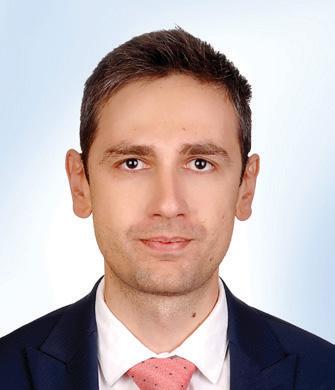
enhancing speed, and anti-fraud solutions bolster transaction security, build trust, and protect customer assets.
Second, PSPs should offer a broader range of services beyond payments. By analysing data and insights from payment interactions, PSPs can underwrite loans for thin-file customers, broadening financial inclusion and opening new avenues for lending.
Additionally, PSPs can offer business and personal financial management tools that enhance efficiency through forecasting, budgeting, and personalised financial recommendations.
Third, PSPs should offer a wide range of services in areas closely related to payments given the central position they play in the operations of their customers.
By establishing strategic partnerships, PSPs could become curators of a vast ecosystem of solutions that small- and medium-sized enterprises (SMEs) could use to digitally transform their businesses, enabling them to manage finances, inventory, and sales from a single platform.
PSPs could also appeal to larger enterprises by facilitating treasury and cash management in enterprise resource planning (ERP) integrations which connect core business processes like finance, inventory, and sales into a single platform, thereby streamlining operations.
Accounting is an example of this new suite of offerings generation. A PSP could partner with an accounting solution provider to integrate accounting with payments to create a solution with significant efficiencies. Or the PSP could develop industry-specific solutions, such as order management systems for restaurants or retail.
WE CALCULATE THAT DIGITAL
WALLETS
IN
SAUDI
ARABIA, A CHEAP DOMESTIC PAYMENT METHOD, HAVE ATTRACTED OVER 15 MILLION USERS BY 2024
Further, PSPs could use open banking and application programming interfaces (APIs) to integrate third-party fintech solutions to offer a comprehensive suite of tools.
PSPs have an opportunity to seize the initiative, expand the services they offer and diversify their revenue streams. They have customer relationships, a knowledge of customer needs, and strong regulatory practices. Now is the time to seize the opportunity.
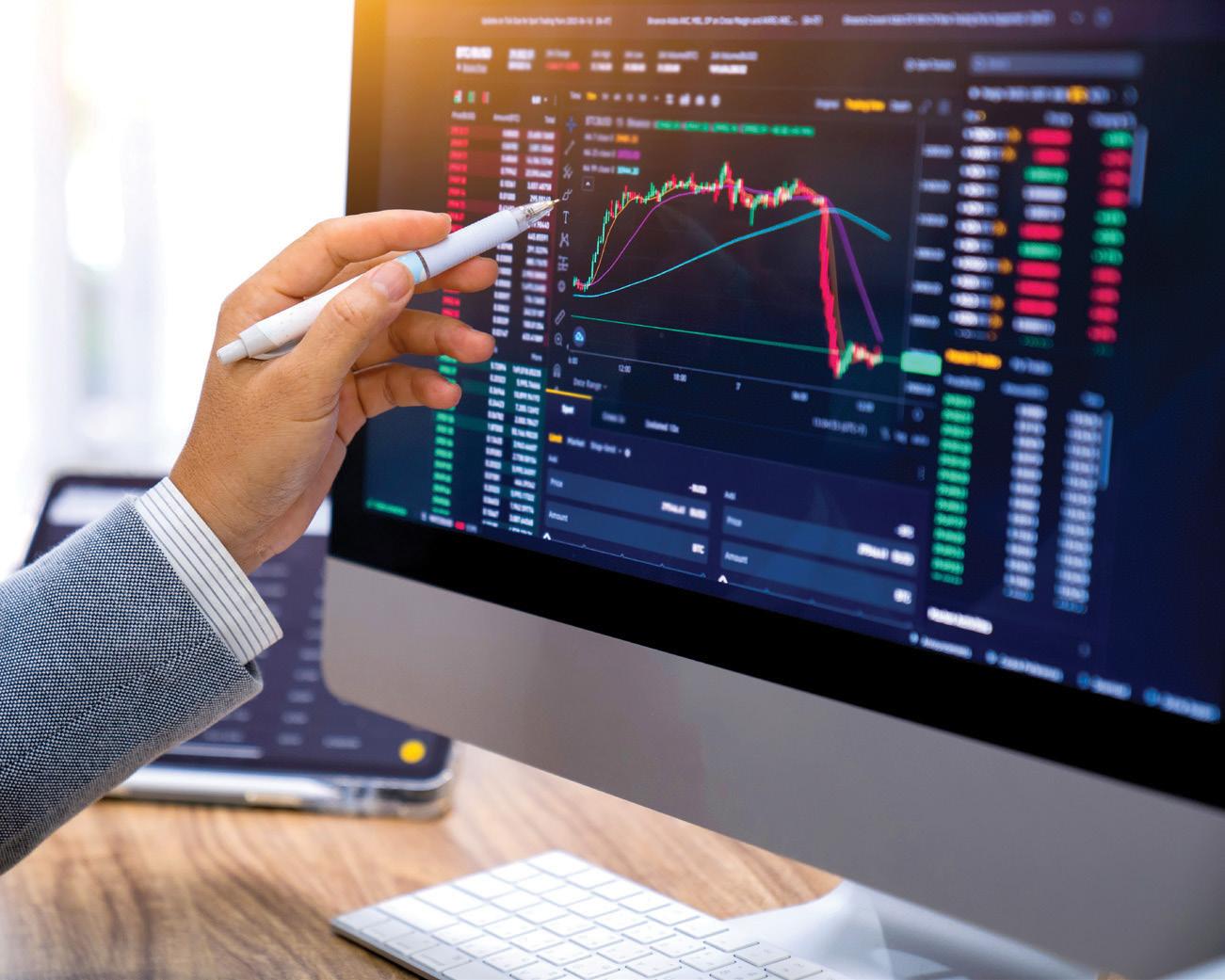
Hisham Mansour says CFI facilitates seamless trading across global and local markets, providing access to a diverse range of financial instruments, including currencies, stocks, metals, energies, crypto CFDs, indices, and futures, among others
Bitcoin, the world’s biggest and bestknown cryptocurrency, surged above $100,000 last December, as President Donald Trump’s re-election fueled optimism that his administration would usher in a friendly regulatory environment for cryptocurrencies.
Meanwhile, CFI Financial Group registered a record-breaking trading volume milestone of $1.03tn in Q3 2024, reflecting a robust 34.47 per cent growth from Q2 2024 and a 129.4 per cent surge compared to the same period a year ago. It’s clear that Q4 2024 has even surpassed Q3 2024, with the official numbers to be announced by the group soon.
With more than 25 years of experience delivering financial solutions globally, CFI specialises in online trading services for equities, currencies, and commodities. The platform offers highly competitive trading conditions, including zero-pip spreads and no commission fees.
Here, Hisham Mansour, the co-founder and managing director at CFI, talks about
the group’s inclusive approach to online trading, the use of innovative technologies such as AI-driven trading tools, and partnerships with renowned brands such as AC Milan and Lewis Hamilton.
CFI is celebrated for its inclusive approach to online trading. How does the company ensure accessibility for traders of all experience levels?
CFI is deeply committed to making online trading accessible to traders of all experience levels. Our services are designed to provide seamless access to both local and global markets, giving traders the ability to explore a wide range of financial instruments, from currencies, stocks, metals, energies, and indices, to futures, and crypto CFDs. The diversity of products ensures that traders can choose the markets and strategies that best fit their needs and risk profiles.
CFI removes traditional barriers to entry, offering commission-free trading, zero-pip spreads, and no minimum deposit
requirements. This approach makes trading and investing more accessible to everyone, regardless of their financial resources.
Through its inclusive approach, CFI empowers traders to compete in the global financial landscape, fostering an environment of trust, innovation, and opportunity for all.
Security is a key concern for online traders. What measures has CFI implemented to provide a safe and transparent trading environment for its clients?
CFI has become MENA’s leading online trading provider, with a physical presence in 15 countries across five continents. The global reach enables the company to provide traders everywhere with equal access to opportunities. The company is also globally regulated, holding over 12 licenses, which provides a secure and transparent environment for its clients.
CFI’s commitment to fairness and transparency is evident in its transparent pricing, fair execution, and top-tier security measures, giving traders the confidence they need to navigate the markets. Similarly, CFI ensures that traders can capitalise on market movements without delays.
With CFI being a pioneer in AI-driven trading tools, can you share insights into how AI and other technologies are transforming the trading experience for your users?
We are integrating AI-driven tools to transform our users’ trading experience. Technology, especially artificial intelligence, is reshaping how traders interact with the markets, making trading more innovative, more efficient, and more personalised. With the help of AI, we aim to empower traders – whether they are beginners or experienced professionals – by offering tools that enhance their decision-making and simplify the trading process.
One of the standout innovations is Kaiana AI, our proprietary AI tool that provides personalised insights and tailored trading recommendations. By analyzing vast amounts of market data, Kaiana AI aims to support traders in making more informed, data-driven decisions, with the goal of fostering greater discipline and enhancing overall performance.
In addition to Kaiana AI, we offer a range of leading trading platforms, including the CFI Trading App, Webtrader, TradingView, MT4, MT5, C-Trader, and CFI MultiAsset, some of which are enhanced with AI for more seamless trading. Platforms and tools such as TradingView and Hoko Cloud further elevate the experience with advanced charting, real-time data, analytics, as well as cloud trading. Capitalize.ai allows users to automate their trading strategies without needing coding skills, making automation accessible to all.
What role does innovation play in maintaining CFI’s competitive edge, and can you give us a glimpse of any upcoming technological advancements?
Innovation is a key driver of CFI’s success and a major factor in maintaining our competitive edge. The financial markets evolve rapidly, and staying ahead requires continuous investment in technology, user experience, and market accessibility.
At CFI, we focus on enhancing the trading experience by making platforms faster, smarter, and more seamless. We continuously refine our technology to ensure that traders have access to reliable data, efficient execution, and intuitive tools that support their decision-making.
Looking ahead, we are committed to expanding our capabilities, improving automation and customisation, and ensuring traders have greater access to global markets with even better conditions.
Our vision is to be the brand for all things trading and investing—offering cuttingedge technology, deep market expertise, and a seamless experience that empowers traders of all levels. Ultimately, our goal is to make trading more transparent, efficient, and accessible, reinforcing CFI as the trusted choice for traders at every level.
Financial literacy is essential for empowering traders. How does CFI approach educating its users to make informed trading decisions?
Financial literacy is key to empowering traders to make informed decisions. To make financial knowledge accessible, CFI offers a wide range of resources for all experience levels, including multilingual webinars, online courses, and an extensive library of educational materials such as articles, blogs, and videos. These cover
everything from basic principles to advanced trading strategies, helping traders learn at their own pace.
We also host in-person seminars and workshops, which provide interactive learning, personalised guidance, and networking opportunities. For a hands-on experience, our CFI Demo account allows traders to practice in a riskfree environment before entering live markets.
To support informed decision-making, we provide access to top-tier research tools such as Trading Central and TipRanks, along with regular market reports and daily insights on social media. All resources are available in multiple languages to ensure accessibility to a global audience.
We are committed to diversity and inclusion, supporting local communities and empowering them to grow.
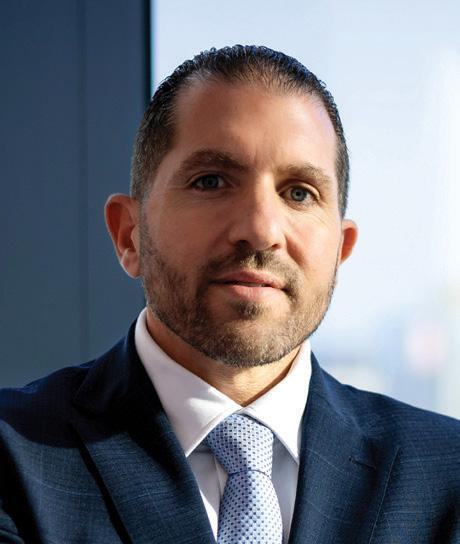
CFI achieved a $1.03tn trading volume in Q3 2024 alone, with a higher volume in Q4. How does this reflect your vision for the company, and what’s next for CFI in terms of growth?
Through these comprehensive, accessible, and engaging educational tools, CFI empowers traders to build skills, stay informed, and make confident decisions in their trading journey.
CFI’s partnerships with global brands like Emirates, AC Milan, and Lewis Hamilton have elevated its profile. How do these collaborations align with your vision for the company?
CFI’s partnerships with world-class brands like AC Milan and Lewis Hamilton, along with organisations like FIBA WASL, MI Cape Town cricket team, and other local reputable organisations, align perfectly with our vision of fostering excellence, innovation, and global connectivity.
Through our strategic collaboration with the Department of Culture and Tourism – Abu Dhabi (DCT Abu Dhabi), we have also been part of major international events such as the Saudi Super Cup, UFC, NBA Abu Dhabi Games, Liwa Village, and Saadiyat Nights. These partnerships allow us to engage with a diverse global audience while strengthening our presence in key markets.
By aligning with world-class brands and prestigious events, we provide traders with a trusted, premium experience while fostering stronger connections with our audience. These partnerships enable direct engagement with communities, building trust and creating opportunities to be part of success stories with top-tier partners.
Our trading $1.03tn trading volume in Q3 2024 and a new record in Q4 highlights our reliability, the value we offer to our clients, and the growing demand for advanced, personalised and accessible trading solutions. It underscores the effectiveness of our vision to be the trusted provider that helps individuals unlock their financial potential, regardless of experience or expertise.
CFI’s vision is to empower traders and investors by providing the most advanced and user-friendly tools in the market. We aim to break down barriers to entry, making financial markets accessible to people from all backgrounds.
Whether you’re a beginner or an experienced professional, our goal is to ensure that you have the tools, resources, and support you need to make informed, confident decisions. We strive to set new industry standards, continuously innovating and delivering cutting-edge technology to improve the trading experience for all.
Looking ahead, CFI is focused on financial inclusion, continuing to expand our reach and ensuring that everyone can benefit from the opportunities that financial markets offer. Over the upcoming years, we plan to advance our mission by making trading and investing more straightforward, more accessible, and more empowering. By fostering a community of informed and confident traders, we aim to lead the industry towards greater transparency, sustainability, and inclusivity while continuing to provide exceptional support and services to our growing global client base. The tremendous trading volume is just the beginning, and as we continue to innovate and expand, we will strive to deliver more and better for our clients every step of the way.



FROM CONNECTING GLOBAL MARKETS AND UNLOCKING OPPORTUNITIES FOR CLIENTS TO EXCELLING ON THE WORLD’S MOST PRESTIGIOUS RACING CIRCUITS, AIX EMBODIES THE AMBITION, AGILITY, AND PRECISION THAT DRIVE SUCCESS IN BOTH MOTORSPORT AND INVESTMENTS
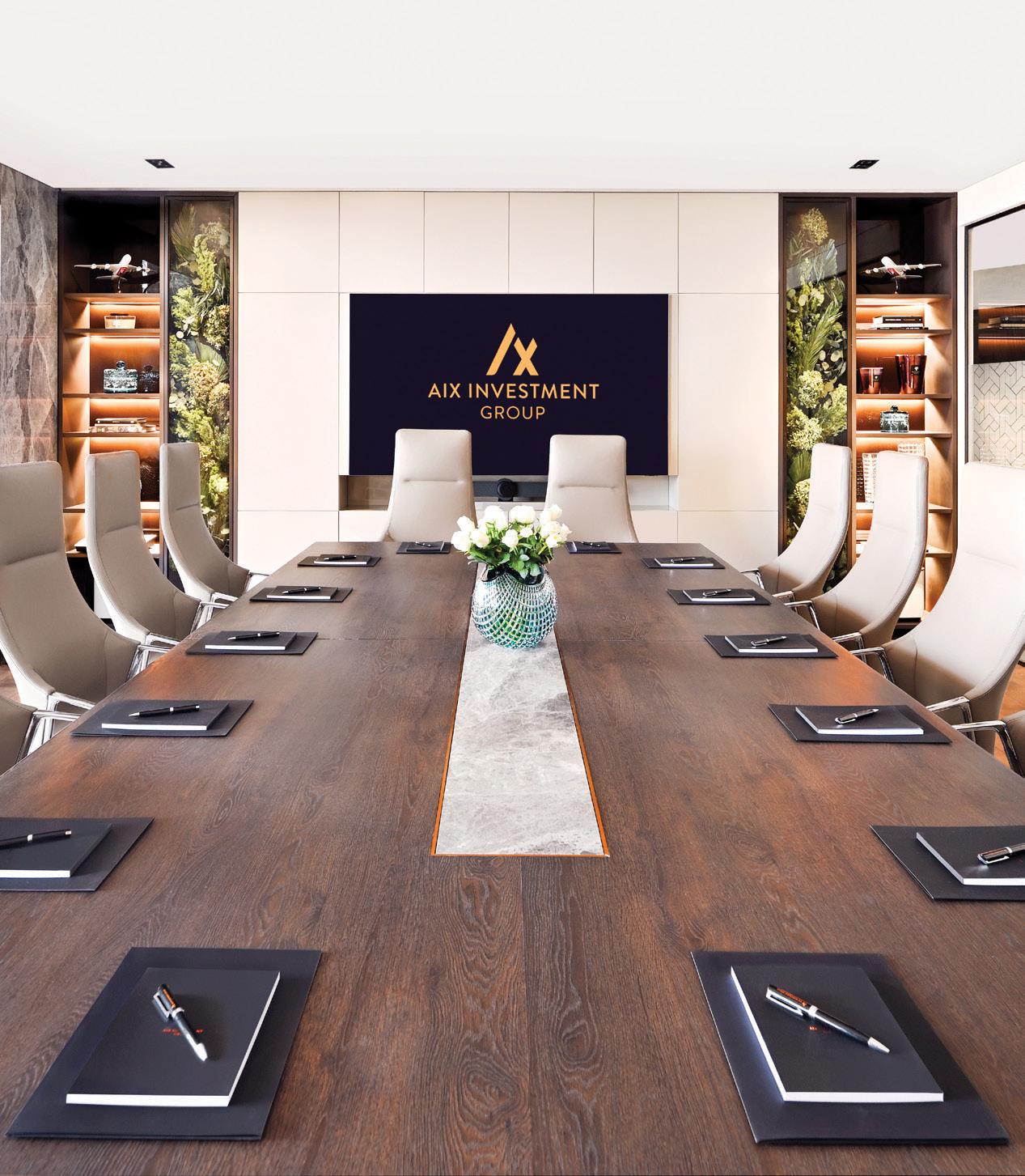
The global economy is increasingly shaped by escalating geoeconomic fragmentation. With global markets awaiting Trump 2.0, GCC countries stand to gain from the administration’s pro-investment policies, potentially accelerating the impressive economic growth the region has experienced over the past four years.
The International Monetary Fund projected that growth in the GCC would remain steady at 3.2 per cent in 2025, fuelled by fiscal prudence, tax reforms, artificial intelligence (AI) innovation, and urban transformation.
The UAE is well-positioned to capitalise on the forecasted robust growth across GCC economies. The country’s ongoing investments in economic diversification and a strategic policy mix are expected to fuel further growth. In 2024, it attracted $16bn in greenfield foreign direct investments, with the financial, real estate, and manufacturing sectors leading the inflows.
“The UAE presents a compelling investment landscape due to its stable political environment, well-defined regulations, and strategic location as a global business hub. Unlike many emerging markets, the country boasts a diversified economy with vital sectors such as real estate, technology, finance and renewable energy, minimising dependence relying on any single industry,” says Fadi Dabbagh, president of the board at AIX Investment Group.
The financial advisory firm’s global network, spanning major financial centres, has connected markets and solidified its reputation as a leading investment advisor, unlocking opportunities for clients worldwide.
“Our global presence allows us to serve diverse clientele while maintaining a deep understanding of regional dynamics,” adds Dabbagh.
Over the years, AIX has garnered prestigious industry recognitions and accolades, a testament to its steadfast dedication to delivering exceptional results, driven by a strong commitment to excellence, innovation, and client satisfaction.
Dabbagh explains that innovation is at the core of AIX’s operations. “We have introduced advanced financial products and services that meet the evolving needs of the market, offering our clients cuttingedge solutions that deliver long-term value and robust returns.”
AIX has built a robust partnership ecosystem by collaborating with leading global organisations such as the Iker Casillas Academy. The collaborations have not only solidified the financial services firm’s position as a trusted financial partner but also expanded its global reach and diversified its expertise, ultimately enabling the company to deliver exceptional value to its clients.
Dabbagh asserts that the financial advisory giant is committed to creating a lasting impact. “Through our initiative, We Are The Future, we have made significant contributions to technology, education, and sustainability. By partnering with organisations, we continue to nurture the leaders and changemakers of tomorrow.”
PROMOTED PRODUCT THE AIX BOND, A 60-MONTH FIXED-INCOME DEBT SECURITY, OFFERS A 12 PER CENT ANNUAL YIELD WITH 3 PER CENT QUARTERLY COUPONS
There is no denying that we live in a world of uncertainty more than ever before. Whether it’s to maintain a certain lifestyle, fund longterm goals such as retirement, or cushion the impact of job loss without dipping into savings, individuals from all walks of life are actively seeking alternative avenues for generating passive income.
For AIX, it all adds up to one equation. As a fiduciary, the group’s responsibility is to help clients navigate this transition and deliver a better future for those clamouring for its assistance. It offers personalised, goalorientated hedging services and financial
solutions designed to boost return on investment (ROI) while allowing clients to explore the full possibilities of their wealth.
“At AIX, trust and transparency form the cornerstone of our operations,” shares Dabbagh. “We uphold these values through open communication, thorough due diligence, a client-first mindset, adherence to compliance and ethical standards, and consistent reporting.”
He emphasises that these practices exemplify the firm’s steadfast commitment to fostering integrity and excellence in every client interaction and investment decision. AIX is committed to clear, honest, and consistent communication. The firm empowers its clients to make informed investment decisions by offering comprehensive information on investment opportunities, risks, and potential outcomes.
The financial advisory firm has adopted a streamlined approach, introducing just two core investment solutions. The AIX Bond, a 60-month fixed-income security, offers a 12 per cent annual yield with 3 per cent quarterly coupons.
The debt instrument appeals to both existing and prospective professional investors seeking similar financial products. It offers a secure investment path with fixed returns and minimal risk. Fixed-income coupon bonds provide consistent interest payments throughout their term, contributing to a more stable and less volatile investment portfolio.
Dabbagh underscores that AIX’s core asset strategy centres around bond investments. “We prioritise bonds that offer consistent coupon payments, providing investors with predictable income streams while mitigating exposure to volatile equity markets.”
“Our team of seasoned investment professionals and robust industry partnerships enable us to access exclusive bond opportunities, leverage valuable market insights, and deliver exceptional solutions for our clientele.”
He explains that bonds are the cornerstone of long-term financial security, enabling clients to achieve stability and sustainable growth.
The second investment solution, a marquee offering known as AIX Property Secure, promises attractive rental returns ranging from 14-20 per cent at predetermined intervals, directly credited to investor accounts. Dubai’s real estate market offers diversity, catering to a spectrum of investment preferences. From luxurious residences to prime commercial spaces, investors can select properties that align with their specific investment goals.
AIX offers a wide range of investment solutions, allowing clients to diversify their portfolios and choose options that align with their risk tolerance. To best serve its clients, the financial advisory firm
A MARQUEE OFFERING KNOWN AS AIX PROPERTY SECURE, PROMISES ATTRACTIVE RENTAL RETURNS RANGING FROM 14-20 PER CENT AT PREDETERMINED INTERVALS
OUR GLOBAL PRESENCE ALLOWS US TO SERVE DIVERSE CLIENTELE WHILE MAINTAINING A DEEP UNDERSTANDING OF REGIONAL DYNAMICS.”
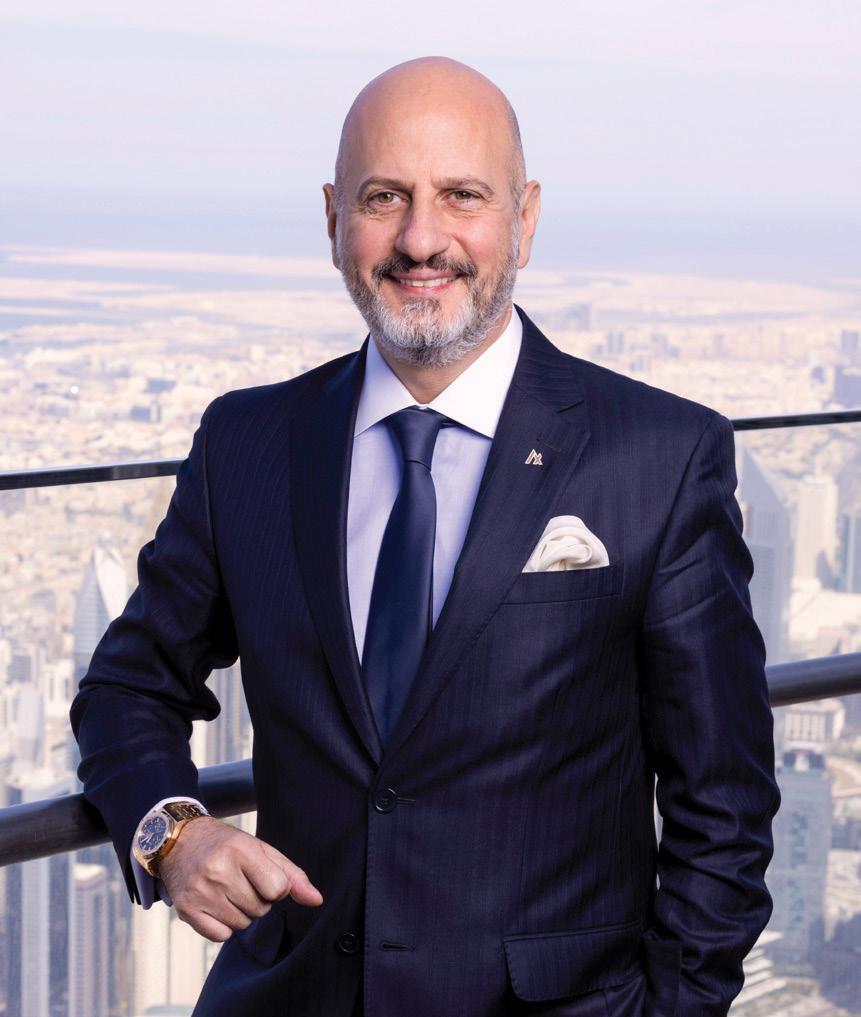
crafts investment strategies that align with individual needs and risk tolerances.
“We prioritise a deep understanding of each client’s financial situation through in-depth consultations, which allows us to construct personalised portfolios that reflect customers’ unique preferences, whether they prioritise capital preservation, consistent income generation, or aggressive growth,” Dabbagh explains.
“Our dynamic investment strategies are continuously monitored and adjusted to navigate evolving market conditions effectively.”
Furthermore, building generational wealth is about creating and passing down financial security that benefits not only you but also
future generations. For individuals pursuing financial independence and early retirement (FIRE), effectively utilising significant resources can accelerate their journey towards freedom and provide a stronger foundation for achieving their goals.
“Our team of financial experts provides proactive advice and insights, helping clients make well-informed decisions and capitalise on opportunities that suit their profiles,” says Dabbagh.
“We empower clients with knowledge by offering educational resources and clear explanations about their investments. This fosters confidence and trust in the solutions we provide.”
FIRE emphasises utmost saving and investing to make work an optional strategy. Its key strategies include diversifying investments across asset classes, leveraging real estate for passive income and, above all, engaging with financial experts such as the AIX team.
Dabbagh stresses that AIX takes a long-term approach to wealth creation, emphasising the development of sustainable financial legacies for future generations through long-term investment strategies, diversified asset allocation, and the empowerment of upcoming generations.
With over a decade of success and a reputation for reliability, AIX continues to deliver diverse, high-quality investment solutions across regulated entities. The financial advisory firm unveiled its newly branded private jet at the MEBAA Show, the Middle East region’s foremost business aviation exhibition, last December.
“The launch of the branded jet marks a strategic step in elevating AIX’s global presence, embodying our dedication to excellence and innovation. It serves as a powerful symbol of our forward-thinking approach and reinforces our distinctive brand identity,” Dabbagh reveals.
“For our clients, the move instils trust and confidence in the AIX team among clients and sends a powerful message to the global market that the financial advisory firm is a dynamic leader ready to transcend boundaries and set new benchmarks.”
More than just a mode of transport, the branded jet embodies AIX’s commitment to innovation, luxury, and leadership in the investment world. It symbolises the firm’s dedication to exceeding expectations and its bold pursuit of ambitious growth targets.
“The branded jet elevates the client experience by demonstrating AIX’s commitment to providing unparalleled service and value. It reflects our dedication to luxury, precision, and efficiency
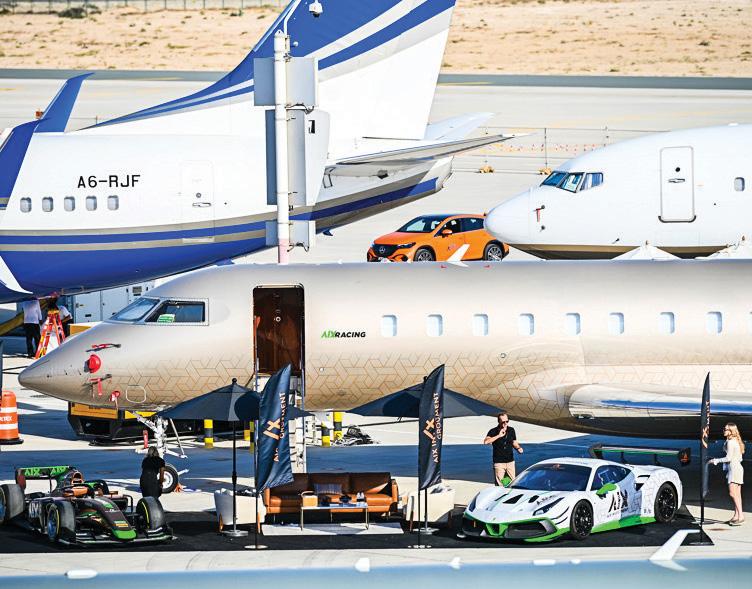
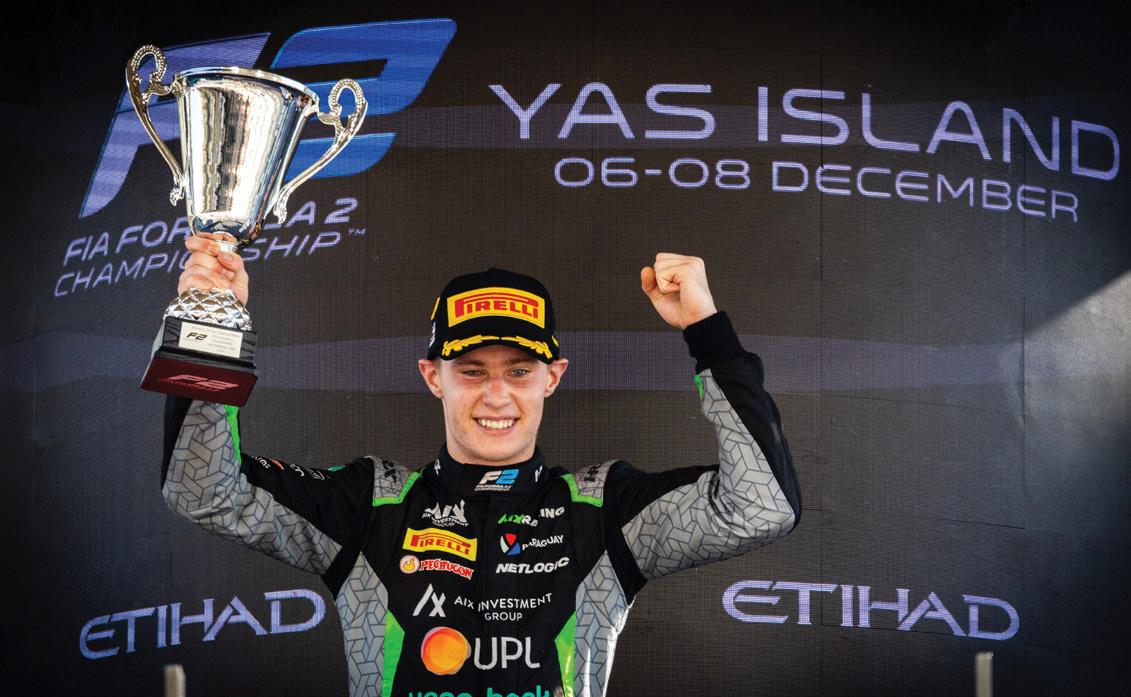
– qualities that our discerning clients highly value,” notes Dabbagh.
He underscores that the initiative reinforces AIX’s brand identity, creating lasting impressions and positioning the group as a leader in both investment expertise and innovative marketing.
The branded jet embodies AIX’s global aspirations and unwavering pursuit of sophistication. It stands as a powerful symbol of the group’s international presence and uncompromising standards, perfectly reflecting its commitment to innovative marketing. OUR TEAM OF SEASONED INVESTMENT PROFESSIONALS AND


AIX Investment Group’s Formula 2 and Formula 3 Team AIX Racing has witnessed remarkable success in the past season. The team’s recent victories in the FIA Formula 2 Feature Race at Yas Marina Circuit and the Baku Sprint Race highlight the group’s commitment to motorsport excellence.
“The recent victories in Abu Dhabi and Baku reflect AIX Racing’s dedication to precision, strategy, and resilience – qualities that mirror AIX’s approach to high-performance investing,” says Morne Reinecke, the CEO of We Are The Future.
“Similar to the team’s meticulous analysis of tracks, adaptation to challenges, and flawless execution, AIX designs tailored investment strategies, mitigates risks and capitalises on opportunities to deliver consistent and exceptional results for its clients.”
Paraguayan driver Joshua Duerksen’s victory at the team’s home circuit, Yas Marina, marked a significant milestone. His triumph, coupled with Taylor Barnard’s victory in Monaco, exemplifies the ‘We Are The Future’ philosophy that guides AIX Racing in nurturing young talent. The victories solidify AIX Racing’s position as a rising force within the global motorsport landscape.
Reinecke shares that AIX Racing was born from a desire to embody the spirit of ambition, speed, and precision that defines both motorsport and investments.
“From supporting rising stars to competing in prestigious circuits, the team has emerged as a symbol of progress and innovation, perfectly aligned with the group’s forward-looking vision,” he adds.
The 2025 FIA Formula 2 Championship calendar features AIX Racing at the Bahrain International Circuit for Round 2 (April 11-13), followed by Round 3 in Jeddah (April 18-20). The season’s only new venue, Lusail, Qatar, will host Round 13 (November 28-30). The championship will conclude at the Yas Marina Circuit in Abu Dhabi (December 5-7).
Meanwhile, AIX’s ambitions for cross-industry collaborations haven’t halted at the racetrack in fact, they took flight with Emirates Airline to showcase its partnerships under its ‘We Are The Future’ vertical. The initiative has had a positive impact since its inception, serving as a cornerstone of AIX’s commitment to innovation and social responsibility.
“The ‘We Are the Future’ initiative thrives on a network of powerful partnerships, each contributing to AIX’s commitment to innovation, sustainability, and talent development,” Reinecke explains, adding that a key partner of the initiative, the Al Jalila Foundation, focuses on advancing healthcare and supporting groundbreaking research.
“Through the partnership, AIX contributes to fostering a healthier future by supporting medical innovation and community well-being.”
AIX donated Dhs600,000 to the Al Jalila Foundation, reaffirming its commitment to promoting healthcare innovation and advancing medical research in the UAE. Through this contribution, the financial advisory firm is not only fulfilling its CSR obligations but also building a strong brand reputation.
Having always been a key part of the investment advisory firm’s strategy, the ‘We Are The Future’ initiative seeks to be a catalyst for positive change, bridging what they call
THE RECENT VICTORIES IN ABU DHABI AND BAKU REFLECT AIX RACING’S DEDICATION TO PRECISION, STRATEGY, AND RESILIENCE –QUALITIES THAT MIRROR AIX’S APPROACH TO HIGH-PERFORMANCE INVESTING,” SAYS MORNE REINECKE, THE CEO OF WE ARE THE FUTURE.”
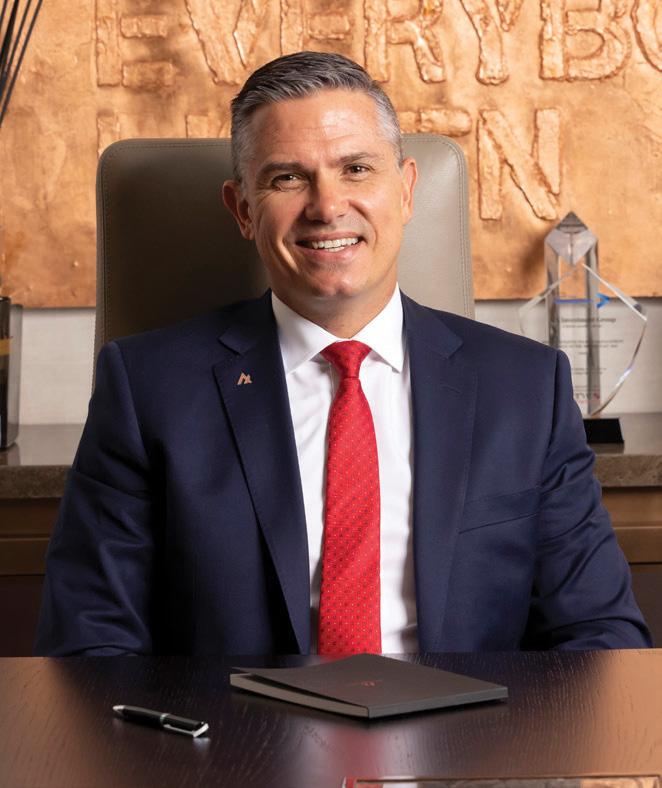
the gap between innovation and impact through strategic investments and philanthropic investments.
Since its inception, the initiative has had a positive impact, serving as a cornerstone of AIX Group’s commitment to innovation and social responsibility.
Through corporate social responsibility (CSR) initiatives, such as its partnership with the Al Jalila Foundation, AIX’s continued support for education and innovation has helped nurture the next generation of leaders while fostering sustainable growth and community impact.
AIX DONATED DHS600,000 TO THE AL JALILA FOUNDATION, REAFFIRMING ITS COMMITMENT TO PROMOTING HEALTHCARE INNOVATION
Reinecke closes by highlighting that AIX’s partnerships under the ‘We Are The Future’ vertical are integral to creating lasting positive change in communities while providing access to opportunities that empower individuals and shape a brighter future. He envisions that initiatives such as ‘We Are the Future’ will be instrumental in AIX’s mission of empowering the next generation.
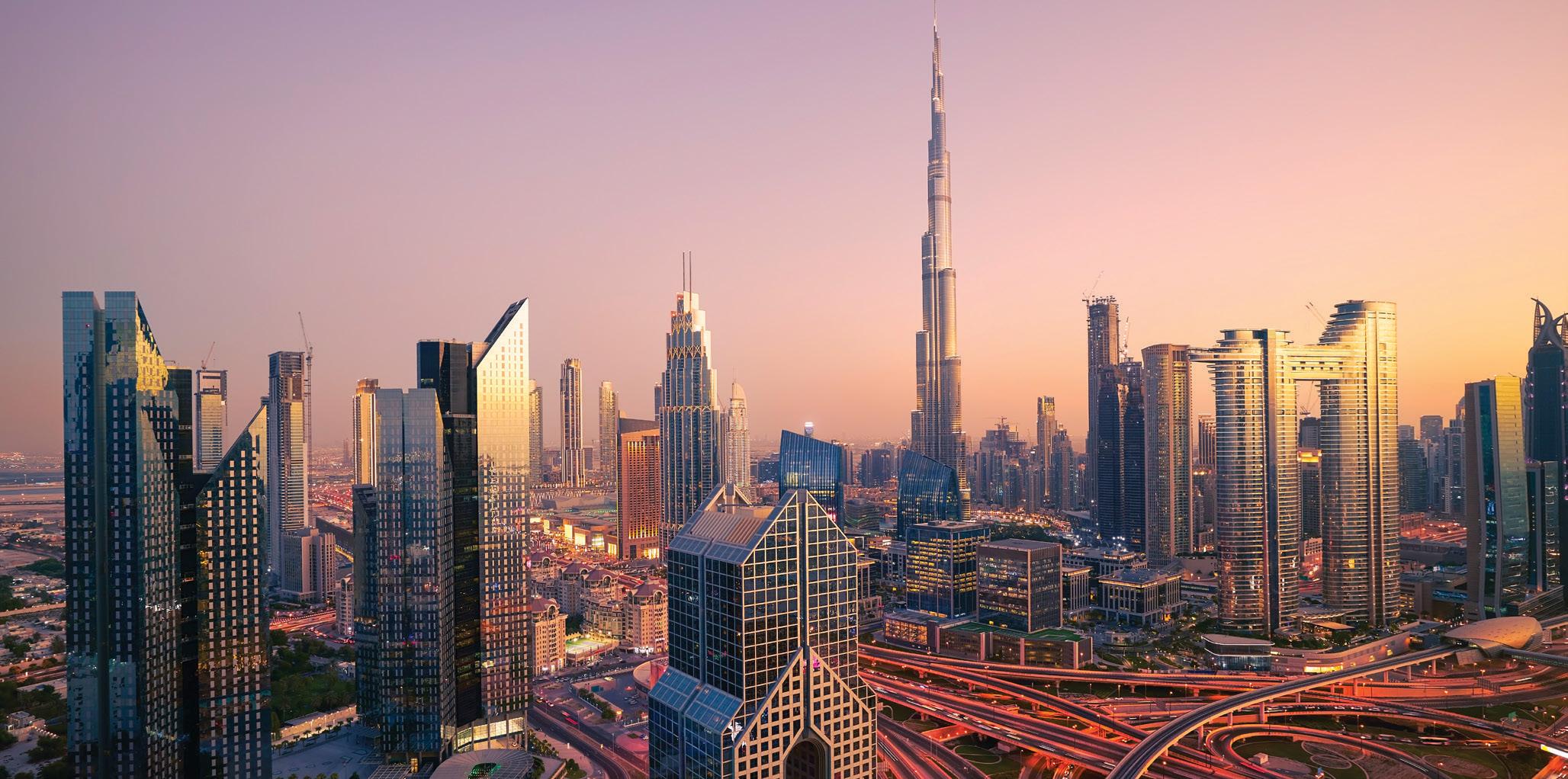
ATIF RAHMAN IS RESHAPING URBAN LIVING WITH ORO24, PIONEERING BOLD DESIGNS AND INNOVATIVE DEVELOPMENTS. IN THIS ARTICLE HE UNPACKS HOW HIS COMPANY CHANGING THE CONSTRUCTION SECTOR IN THE UAE
ORO24 is setting new standards of innovation and excellence. With a vision to transform the city’s property market, ORO24 has swiftly emerged as a leader in delivering exceptional developments that resonate with both investors and residents alike.
Mr. Atif Rahman, the visionary Founder and Chairman of ORO24, is pioneering a new era in urban development, shaping the future with every project. With a relentless drive for excellence and an unwavering commitment to innovation, he’s transforming not just skylines, but the way people experience modern living. His leadership is redefining industry standards and positioning ORO24 as a true force for change in urban design and real estate development.
ORO24 was founded with the ambition to redefine Dubai’s real estate market through human-centric design, modern living, and lasting quality.
Mr. Atif Rahman’s vision was clear from
the outset: to create developments that not only meet the needs of today’s buyers but also anticipate the demands of tomorrow. The company’s mission is to deliver projects that blend luxury with affordability, offering high-quality homes in vibrant communities.
With a strong focus on the mid-segment market, ORO24 elevates the living experience by incorporating sustainable designs, cutting-edge technologies, and exceptional craftsmanship. Rahman’s philosophy is straightforward—build with purpose, create lasting value, and put the customer at the heart of everything.
Under Rahman’s leadership, ORO24 has achieved remarkable success in a short period. This success speaks volumes about the strength of the company’s vision and execution. One of ORO24’s flagship developments, the TORINO by ORO24 project in Arjan, stands as a testament to the company’s commitment to quality and innovation. Featuring 625
contemporary homes with world-class amenities, TORINO by ORO24 is a prime example of how the company anticipates market needs and delivers precisely what today’s buyers are seeking—modern, functional, and affordable spaces.
Mr. Rahman’s journey has been one of resilience, hard work, and unwavering belief in his vision. His leadership has been pivotal in driving the company’s success, and he is proud of what ORO24 has accomplished and what lies ahead.
“Success is not just about the end result but the journey it takes to get there,” Rahman reflects.
“Every challenge is an opportunity to grow, and every project is a chance to redefine excellence.”
ORO24 stands apart due to its forwardthinking approach to development, setting new benchmarks for quality, efficiency, and design. The company harnesses the power of economies of scale, modular design, and value engineering to create projects that deliver the highest standards of craftsmanship while maintaining cost efficiency. Each development begins with a strategic land selection process, followed by a meticulous design phase that ensures the final product aligns with the evolving needs of Dubai’s dynamic property market. Rahman’s
commitment to a customer-first philosophy is at the heart of ORO24’s success.
“Real estate is not sold; people buy real estate,” he emphasizes.
This customer-centric ethos drives ORO24’s ability to develop properties that cater to diverse lifestyles and budgets, creating inclusive communities where residents experience a true sense of pride and belonging.
A strong focus on financial discipline is another key pillar of ORO24’s achievements. Rahman is deeply committed to careful planning, responsible leveraging, and effective project management, which allows ORO24 to complete developments on time and within budget, even in an ever-changing market like Dubai. This disciplined approach ensures that every project is not only financially viable but also designed for long-term success.
Additionally, ORO24’s focus on sustainability and technological innovation further distinguishes the company from its competitors. By integrating cuttingedge technologies and environmentally conscious practices into every development, ORO24 is shaping the future of real estate.
Atif Rahman and his ORO24 team are redefining the real estate landscape with a bold vision for the future, driven by purpose and excellence in every project. As the city continues to grow and aspires to become a global hub for innovation and sustainability, ORO24 is perfectly positioned to play a pivotal role in shaping the future of Dubai’s skyline.
Rahman’s vision extends beyond building homes—it’s about creating sustainable, connected, and future-proof communities. “Innovation
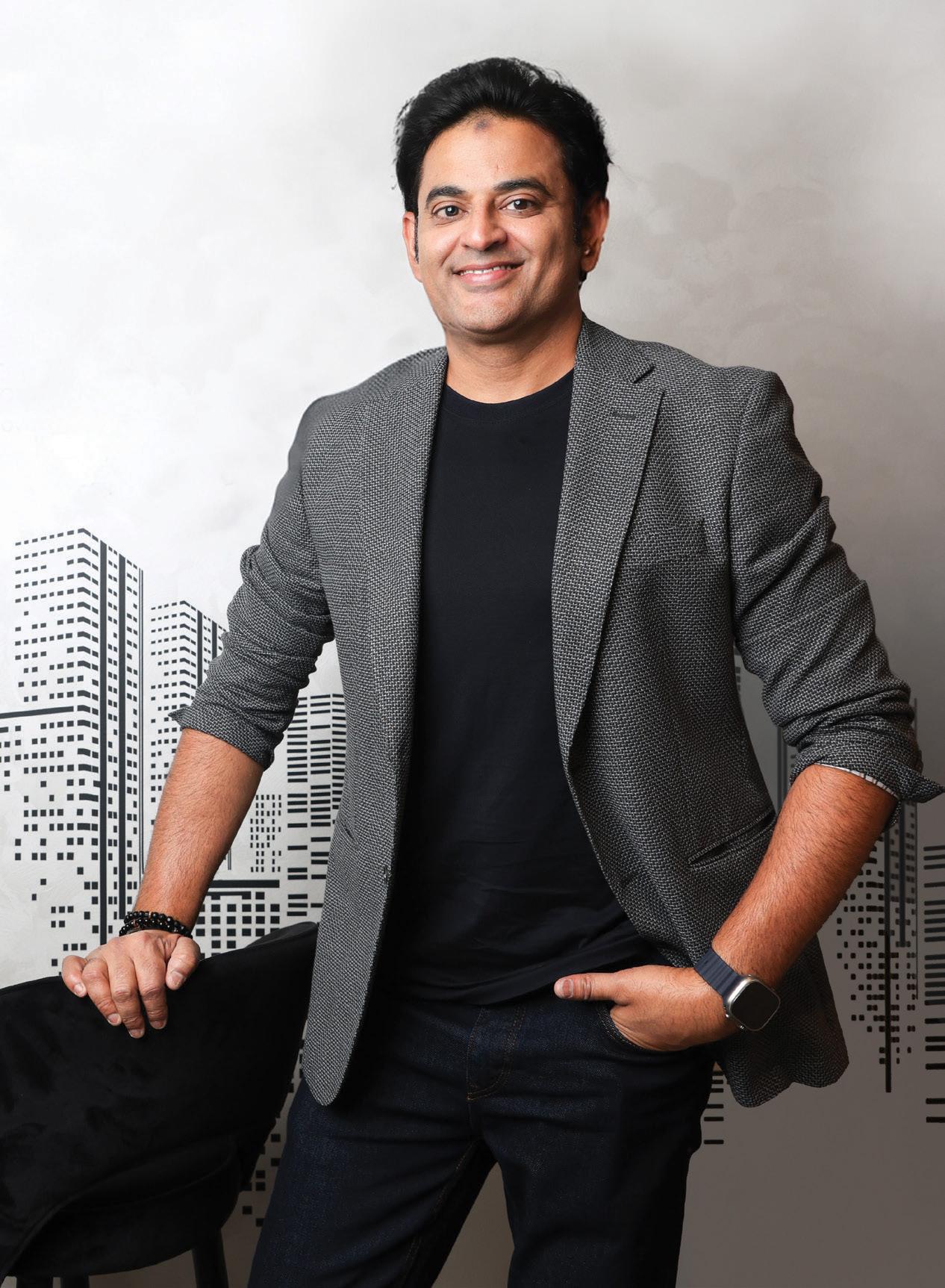
and responsibility are key, and as Dubai evolves, so must our approach to real estate,” he notes. Future projects will continue to prioritize human-centric design, advanced technologies, and green building practices, ensuring ORO24 remains at the forefront of the industry.
EVERY CHALLENGE IS AN OPPORTUNITY TO GROW, AND EVERY PROJECT IS A CHANCE TO REDEFINE EXCELLENCE.”
The company also plans to expand its footprint beyond Dubai, exploring untapped markets within the UAE and internationally, focusing on sustainable and innovative development models that align with global trends.
ORO24’s journey is a story of vision, perseverance, and an unwavering commitment to excellence. Under the
dynamic leadership of Atif Rahman, the company has risen to another level, navigating challenges with resilience and consistently setting new standards. By staying true to its core values of quality, sustainability, and customer-centricity, ORO24 is not just building properties— it’s creating lasting legacies.
As Dubai continues its transformation into a global city, ORO24 is dedicated to crafting spaces that resonate with the city’s spirit—places where people can truly live, grow, and thrive. ORO24 is shaping the future of living in Dubai, with every development designed to stand the test of time and offer a richer, more meaningful experience for generations to come.
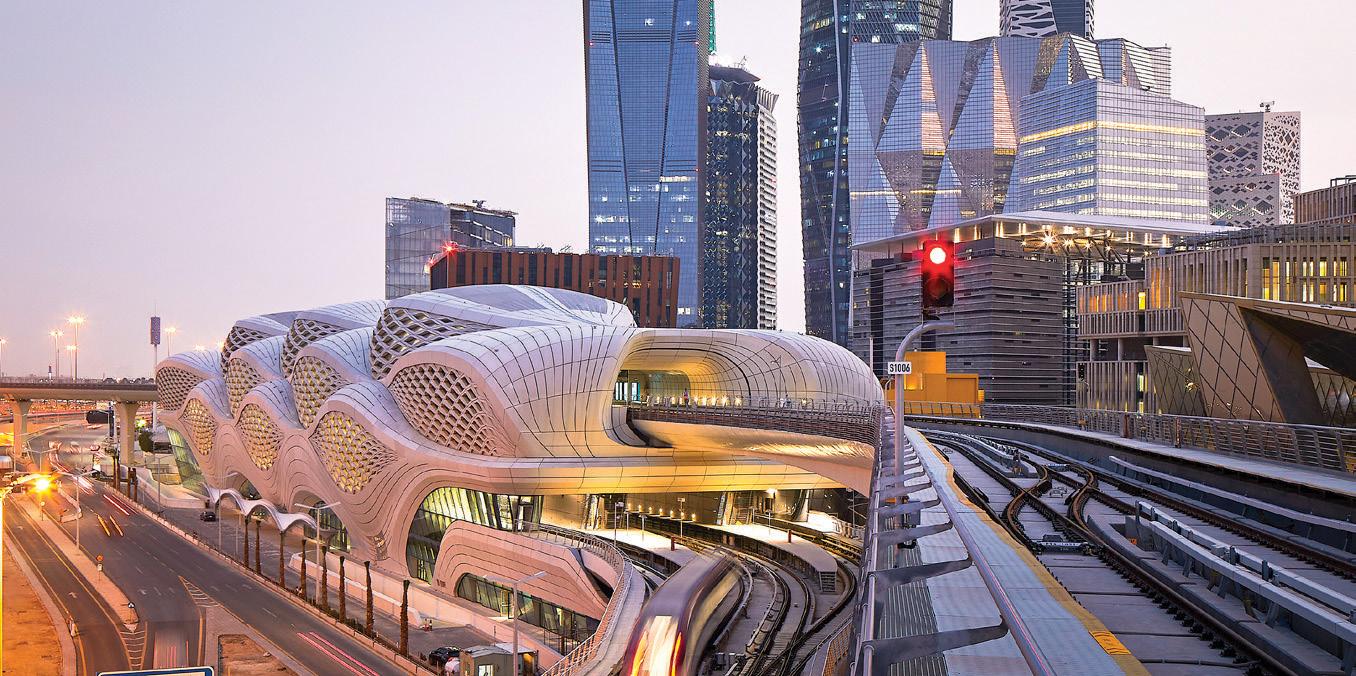
From sustainable projects like Masdar City and innovative transport systems, the Gulf region is partnering with UK expertise to achieve its urban ambitions by combining modern design with cultural relevance
As the Middle East pushes forward with its urban development goals, cities across the region are evolving into hubs of innovation and sustainability. Through partnerships, UK architects are contributing their expertise to some of the region’s most ambitious transformations.
Firms like Foster + Partners and Zaha Hadid Architects (ZHA) are at the forefront, delivering projects that reflect the Middle East’s bold aspirations while respecting its rich cultural heritage.
For Foster + Partners, the Gulf represents an opportunity to create architecture that balances cultural identity with environmental challenges. The firm’s commitment to sustainability is evident in its groundbreaking projects across the region, including one of its most celebrated achievements: Masdar City in Abu Dhabi.
Designed as a model for carbon-neutral and zero-waste urban living, Masdar City achieves significant results, including a 30.6 per cent reduction in energy use intensity, 57 per cent waste reduction through recycling, and water savings equivalent to filling 17 Olympic swimming pools annually.
“Our projects are always rooted in the history and local heritage, embodying the spirit of a place. In the Gulf region, we focus
on passive design strategies and highperformance facades to create cool, comfortable buildings that respond to the climate. Alongside this, we’re excited about projects like the Al Sa’ad Plaza Towers in Qatar, the Red Sea Airport in Saudi Arabia, and the Zayed National Museum in Abu Dhabi, which celebrate the region’s culture and aspirations,” says Gerard Evenden, Head of Studio at Foster + Partners.
From Lusail Stadium in Qatar to the National Bank of Kuwait Tower, the firm demonstrates how architecture can address modern needs while staying connected to tradition.
As the Middle East reimagines its cities, architectural practices are being challenged to balance modernity with cultural relevance. Zaha Hadid Architects (ZHA) has approached this challenge by
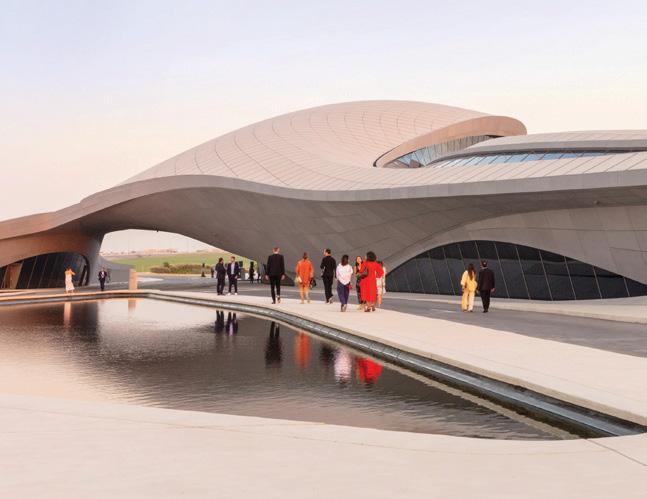

integrating innovation and sustainability into designs that resonate with their surroundings.
The King Abdullah Financial District (KAFD) Metro Station in Riyadh exemplifies this approach. As a key interchange in the city’s metro network, the station optimises pedestrian flow while minimising energy consumption through renewable-powered cooling systems and passive design.
In Oman, ZHA’s waterfront redevelopment in Muscat focuses on sustainable urban living, supporting rapid population growth while prioritising residents’ wellbeing.
“Our buildings are deeply connected to the communities they serve,” says Melodie Leung, director at Zaha Hadid Architects. “We anchor each design in the region’s heritage, whilst pushing ourselves to continually advance and improve the architecture industry to create something that is unique, and that is meaningful to the context and the client. We push the boundaries of architecture to meet the aspirations of each new generation.”
The BEEAH Headquarters in Sharjah further underscores ZHA’s focus on sustainability. It combines advanced energy systems with sustainable materials, setting new standards for environmentally responsible design.
As the Middle East redefines its cities, collaborations with UK architects who combine innovation with local expertise are driving sustainable progress. From Foster + Partners’ climate-conscious designs to Zaha Hadid Architects’ unique urban concepts, these efforts are shaping a modern, resilient future for the region.
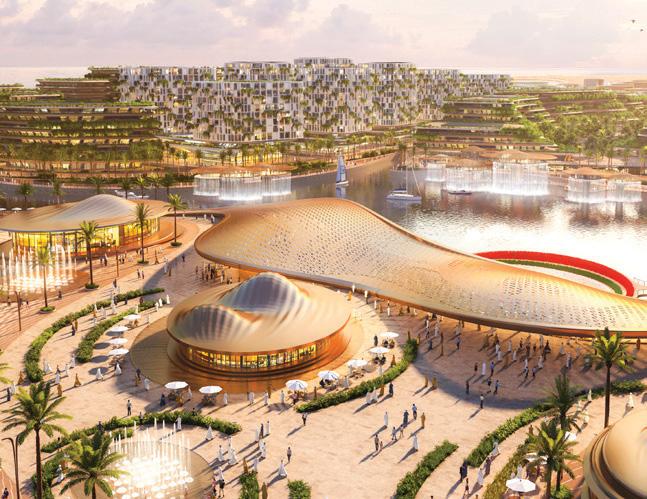

































Vortex Energy, part of the private equity business of EFG Hermes, an EFG Holding company and the leading investment bank in MENA, is driving sustainable growth with strategic investments in energy transition globally
As the global shift toward a net-zero future gains momentum, Vortex Energy is expanding its reach and scope to cover wider energy transition sectors and geographies. Launched in 2014, it has built an impressive portfolio of companies that operate in wind, solar, electric vehicle changing, hydrogen and batteries globally, strategically expanding its assets under management.
In this interview, Bakr Abdel-Wahab, CIO of Vortex Energy, delves into how the platform has solidified its position in the energy transition market and discusses the future plans to encompass sustainable digital infrastructure investments.
Tell us more about Vortex Energy. What are your key priorities for growth going forward?
We launched with a focus on renewable energy investments in Europe, recognising 2 key drivers: the push for energy security and diversification of energy sources, as well as meeting global climate net zero targets and EU green directives.
WE BEGAN WITH 3 EUROPEAN FOCUSED FUNDS, WITH AUMS THAT PEAKED AT USD 1.4BN
We began with three funds, with AUMs that peaked at around €1.3bn, or approximately $1.4bn. The journey started with identifying an opportunity in France, where we created Vortex I. We acquired a 49per cent stake in a portfolio of wind assets operated by EDPR – one of the world’s largest owners and operators of wind power at the time. The investment amount was c.€170m, primarily funded by Abu Dhabi sovereign wealth funds.
A year later, we launched Vortex II, a €560m investment covering 664 MW of operating and under construction wind assets in Spain, Portugal, France, and Belgium. These investments were underpinned by long-term feed-in-tariffs and PPAs, generating double-digit internal rates of return (IRRs) in an environment of low interest rates. The rationale behind these investments was their robust electricity tariffs, yielding steady cash flows and stable regulatory frameworks.
For instance, Portugal at the time was sub-investment grade, but we anticipated a credit rating upgrade as part of the investment rationale. Spain was recovering from retroactive regulatory changes, but we saw value due to the quality of the operator and site-specific advantages.
By 2017, we launched Vortex III, focusing on solar assets in the UK under the Renewable Obligation Certificates (ROCs) scheme, which provided government-backed incentives. We acquired 24 operating and under construction solar assets outright from SunEdison, an operator which later was undergoing bankruptcy, enabling us to secure a competitive deal. This was a £500m deal funded by Malaysian institutional investors and managed by our London-based asset management team.
Between 2019 and 2020, we exited Vortex I and II to JP Morgan Infrastructure and Vortex III to a Malaysian utility, achieving returns of 13-15 per cent IRR. This marked a successful phase of astute origination, financial engineering and operational optimisation, culminating in top quartile returns for our investors.
Vortex has undergone significant transformations. How did your strategy shift after 2020?
Post-2020, the global industry landscape changed. In response to this, we began taking on development risks and shifted toward investing in development platforms and companies versus projects and portfolios. This approach transformed us into a private equity-style investor, funding not only project development but also company growth.
We also noticed emerging trends such as decarbonisation, electrification of transport, and advancements in energy storage. This broadened our focus from renewable energy to the broader concept of energy transition, including e-mobility, battery storage, and hydrogen.
In response, we launched Vortex IV in 2021, an energy transition-focused fund and co-investment vehicle with $400m in AUM. It was backed by a wide range of investors, including Abu Dhabi SWFs, global asset managers, and European family offices. Since 2022, we’ve made two significant investments:
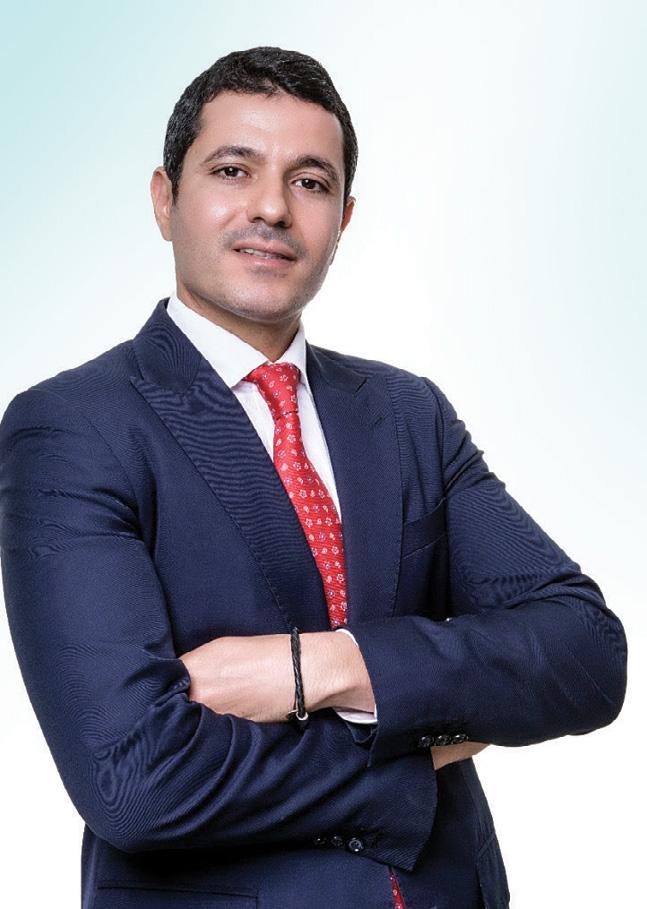
Ignis Energy: A renewable energy platform with +12 GW globally, with operations in Spain, Italy, UK, USA, Peru, and the Philippines. It covers solar and wind development, operations, energy management and green hydrogen.
EO Charging: A UK-based company specialising in EV charging for fleets and buses, serving clients like Amazon and DHL in UK and USA. This aligns with our focus on scalable and captive charging solutions.
Looking ahead, could you launch ‘Vortex V’? Added to this, are there any emerging trends you’re observing in the market?
While we haven’t officially labelled it Vortex V, we are exploring opportunities in data centres, particularly in Spain, leveraging synergies with Ignis’ renewable energy assets. Madrid is an emerging city in the digital space and strategically located data centres are increasingly sought after by hyperscalers such as Google and Amazon. We are fine tuning this investment programme at present.
We launched Vortex IV in 2021, an energy transition-focused fund and co-investment vehicle with $400m in AUM.”
We’re also planning an emerging markets climate fund targeting Central and Southeast Europe, Latin America, and Africa. This fund will focus on renewable energy, energy storage, hydrogen, and circular economy initiatives, addressing the global south’s growing demand for sustainable infrastructure. We have identified two early deals to seed this fund. We are excited about this initiative which follows the COP 28 recommendations.
How have government-backed incentives changed, and how does that impact your strategy?
Feed-in tariffs have largely been phased out. The current landscape revolves around private corporate power purchase agreements (PPAs) and government auctions. Corporate PPAs often offer higher returns, but declining renewable energy prices are challenging project economics in certain markets like Germany. As a result, we’re focusing on markets with greater growth potential, green power shortfall and supportive policies.
How does Vortex Energy differentiate itself from other financial investors in the sector?
Our unique selling proposition lies in our hybrid investment approach, combining private equity-style investing with infrastructure characteristics. We’re hands-on, focusing on a few portfolio companies to drive value through growth initiatives and cost optimisation. Additionally, our Abu Dhabi presence ensures we continue our close collaboration with investors; reinforcing trust and alignment.
Lastly, what are the biggest challenges to achieving global net-zero targets, and how can Vortex Energy contribute to this transition?
Achieving net-zero requires, amongst other areas, scaling renewable energy capacity drastically, but this must be paired with structural changes to power markets. Low power prices, because of cannibalisation, for renewables can hinder development in certain countries. Energy efficiency is another key pillar – reducing losses, focusing on smart energy management and improving grid stability through AI and technology.

RAKI PHILLIPS, CEO OF RAS AL KHAIMAH TOURISM DEVELOPMENT AUTHORITY, REFLECTS ON THE EMIRATE’S EXCEPTIONAL TOURISM PERFORMANCE IN 2024, EXCITING DEVELOPMENTS ON THE HORIZON AND INNOVATIVE SUSTAINABILITY INITIATIVES
BY NEESHA SALIAN
In this interview, Raki Phillips, CEO of Ras Al Khaimah Tourism Development Authority, reflects on the emirate’s exceptional tourism performance in 2024 and the strides made in balancing growth with sustainability. Phillips also discusses the exciting developments on the horizon, from new luxury resorts to innovative sustainability initiatives, positioning Ras Al Khaimah as a premier global destination for travellers and investors alike.
How did Ras Al Khaimah’s tourism sector perform in 2024?
Last year was a standout one for Ras Al Khaimah, marking another step
forward in our journey to becoming a leading global tourism destination. We welcomed 1.28 million overnight visitors, with tourism revenues up by 12 per cent and a 15 per cent rise in MICE visitors, reflecting the strong momentum we’ve built. A big part of this success came from making Ras Al Khaimah more accessible than ever. With new direct flights from key markets including Poland, Uzbekistan, Romania, Russia, Saudi Arabia and India, more visitors had the opportunity to experience everything the emirate has to offer. At the same time, our hospitality scene evolved with the opening of Sofitel Al Hamra Beach Resort and Anantara Mina Al Arab
Resort, introducing the region’s first overwater villas, a major draw for luxury travellers looking for something unique. Events have also played a huge role in shaping the destination’s appeal. From the Highlander Adventure challenge to the Ras Al Khaimah Half Marathon, Arab Aviation Summit, and Global Citizen Forum, we’ve hosted experiences that bring together communities from around the world. The launch of the Seven Wonders concert series, featuring DJ Armin Van Buuren, added another dimension to our entertainment offering, creating immersive experiences in some of the emirate’s most stunning locations.
Sustainability remains at the core of our approach, and this commitment continues to be recognised on a global level. In 2024, Ras Al Khaimah was named ‘Middle East’s Most Sustainable Project’ at the Forbes Middle East Sustainability Leaders’ Summit, reinforcing our position as the region’s first destination to earn EarthCheck Sustainable Destinations Silver Certification. We closed the year with a spectacular New Year’s Eve celebration welcoming over 100,000 spectators and setting two new Guiness World Records: the ‘Largest aerial display of a tree formed by multi-rotor drones’ and the ‘Largest
CULTURAL HERITAGE IS ALSO A PRIORITY AS WE GROW. WITH 7,000 YEARS OF HISTORY, RAS AL KHAIMAH IS HOME TO OVER 80 HISTORICAL SITES, WITH 20 PRIORITISED FOR CONSERVATION, INCLUDING FOUR ALREADY ON UNESCO’S WORLD HERITAGE TENTATIVE LIST.”
aerial image of a seashell formed by drone’. It was the perfect way to wrap up a year of incredible achievements and set the stage for even bigger things this year.
What steps are being taken to balance tourism growth with sustainability?
A key part of this strategy is our partnership with EarthCheck, the world’s leading scientific benchmarking and certification group for travel and tourism. Through this collaboration, we have embedded sustainability into the foundation of our tourism sector, which in turn, has earned Ras Al Khaimah the title of the first EarthCheck silver certified destination in the Middle East in 2023. This recognition reflects real progress, with a 29 per cent reduction in greenhouse gas emissions and a 61 per cent reduction in waste output, surpassing the UAE national average.
We also actively promote the adoption of Barjeel Green Building Regulations among hotels and other tourism facilities. Launched by RAK Municipality, this is a flagship initiative under the RAK Energy Strategy 2040 aims to create more sustainable buildings. Its key focus areas include energy resource conservation, water resource conservation, incorporation of renewable energy, use of sustainable building materials, reducing construction waste, and enhancing building performance, leading to long-term savings.
At RAKTDA, we have introduced ‘Responsible RAK’, a sustainability certification programme for hotels and tourism businesses. Powered by EarthCheck, this programme has empowered members to track and improve their sustainability performance across 10 key metrics including energy consumption, greenhouse gas emissions, water usage, waste management, and social impact. By collecting and analysing data across these indicators, businesses and RAKTDA can identify opportunities for improvement, drive operational
efficiencies, and contribute to a more sustainable future. With 24 hotels and attractions out of 30 having already earned the ‘Responsible RAK’ Silver Certification, the programme has demonstrated significant progress with several leading hotels having adopted innovative best practices. For instance, Rixos Bab Al Bahr works with Winnow, the global AI leader in commercial food waste solutions, to efficiently break down food waste on-site, significantly reducing the environmental impact of organic waste disposal. The Cove Rotana has implemented advanced waste management practices, including waste separation bins throughout the property and digital menus to minimise paper waste. Mövenpick Resort Al Marjan Island has incorporated informative materials in guest rooms to educate guests on sustainable practices and adopted ecological amenities across its housekeeping services.
Cultural heritage is also a priority as we grow. With 7,000 years of history, Ras Al Khaimah is home to over 80 historical sites, with 20 prioritised for conservation, including four already on UNESCO’s World Heritage Tentative List. Our approach is not just about preserving these sites but about integrating them into the visitor experience through curated tours, immersive storytelling, and interactive exhibits.
Beyond environmental and cultural sustainability, we are committed to inclusive and accessible tourism. In partnership with Sage Inclusion, a leading accessibility consultancy dedicated to making business and leisure travel more inclusive, we are conducting the largest accessibility assessment in the Middle East, reviewing over 50 hotels, 10 attractions, Ras Al Khaimah International Airport, and ground transportation. This ensures that as the Emirate continues to attract more visitors, it remains accessible to all, regardless of mobility, vision, hearing, cognitive, or allergy-related needs.
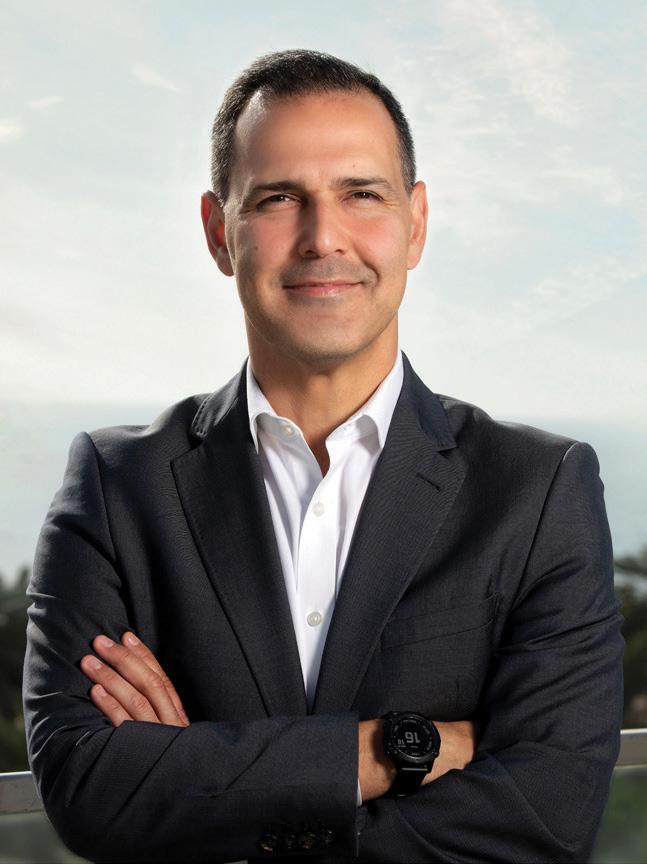
How is Ras Al Khaimah adapting to rising consumer demand in 2025?
One of the significant trends in tourism is the increasing interest in luxury travel, with affluent travellers prioritising exceptional service and exclusivity. In response, we have enhanced luxury offerings at some of our properties, such as the introduction of the exclusive Signature Villas at The Ritz-Carlton Al Wadi Desert. Additionally, our luxury portfolio has been strengthened with the openings of Sofitel Al Hamra Beach Resort and Anantara Mina Al Arab Ras Al Khaimah Resort, featuring the Emirate’s first overwater villas, along with highly anticipated additions like SO/, Nobu, W, and the groundbreaking Wynn Al Marjan Island. These developments not only cater to the rising demand for luxury but also position Ras Al Khaimah as a premier destination for high-end travellers.
Ras Al Khaimah’s offerings are perfectly in sync with the rising ‘bleisure’ trend, where travellers extend their work trips to include leisure activities, ensuring every journey is maximized. Additionally, the Emirate caters to the ‘Detour Destinations’ trend, where visitors combine well-known locations with hidden gems. Just 45 minutes from Dubai, Ras Al Khaimah serves as the perfect detour for those exploring the Emirates.
The rise of sports and music tourism is another trend transforming the industry, with fans increasingly planning their travels around major sporting and entertainment events. We have embraced this shift by curating a dynamic calendar of
experiences, including the RAK Half Marathon, RAK Golf Championship, and the upcoming Seven Wonders series in 2025. This groundbreaking initiative will showcase seven global artists performing in seven iconic Ras Al Khaimah locations, blending the emirate’s natural beauty with world-class entertainment. The launch of this series is perfectly aligned with the growing “gig-tripping” phenomenon, which has been amplified globally by events like the Coldplay tours.
The growing appeal of all-inclusive travel, particularly among younger generations, has also influenced our approach this year. By bundling exceptional experiences into a single price, Ras Al Khaimah’s all-inclusive resorts provide stress-free holidays that deliver both convenience and value without compromising on quality.
What unique offerings position Ras Al Khaimah to attract multi-generational travellers and fans of experiential travel?
There has been a significant resurgence in multigenerational travel, with families looking for destinations that cater to all age groups. Ras Al Khaimah embraces this trend with its family-friendly attractions, such as the Bear Grylls Explorer Camp, Jais Adventure Park, and a variety of accommodation offering kids’ clubs and watersports, ensuring unforgettable experiences for travellers of all ages. Additionally, there has been a strong emphasis on experiential travel, with Millennials and Gen Z travellers seeking deeper connections and unique adventures. Ras Al Khaimah is perfectly positioned to meet this demand, offering everything from exhilarating hikes on Jebel Jais’ 94-kilometre trail network and thrilling desert safaris to immersive cultural experiences at one of the four heritage sites on the UNESCO World Heritage Tentative List and the UAE’s only traditional pearl farm, Suwaidi Pearls. The annual Ras Al Khaimah Fine Arts Festival adds another cultural dimension, showcasing art, film, and photography in the atmospheric setting of Al Jazirah Al Hamra.
For wellness-focused consumers, the combination of mountains, beaches, and desert landscapes creates the perfect setting for rejuvenation. Whether it is mountaintop yoga on Jebel Jais, beachfront
wellness retreats, or spa treatments, Ras Al Khaimah is quickly emerging as a hub for wellbeing and mindful escapes.
The emirate also embraces event-driven travel, with a calendar packed with music, sports, and cultural festivals that appeal to visitors of all ages.
How is the upcoming Wynn Resort expected to impact Ras Al Khaimah’s tourism landscape and economic growth?
The upcoming Wynn Al Marjan Island Resort is set to enhance the Emirate’s tourism landscape and drive economic growth. The $5.1bn integrated resort, spanning almost 250,000 square metres, is the largest foreign direct investment of its kind in the Emirate. The project has already sparked new developments in its vicinity, driving expansion in luxury hospitality, real estate, retail, and entertainment. These developments will also create thousands of jobs across construction, hospitality, tourism, and entertainment, reinforcing Ras Al Khaimah’s economic diversification strategy.
The decision to select Ras Al Khaimah for their regional flagship resort is testament to Ras Al Khaimah’s unique appeal and strategic location. The development is Wynn’s first beachfront resort and is being built on a beautiful island of almost 62 hectares jutting into the Arabian Gulf. Wynn Resorts is developing the project in partnership with Marjan and RAK Hospitality Holding and is anticipated to be the first integrated gaming resort in the Middle East North Africa (MENA) region. Introducing a new segment of luxury travellers, the resort will feature 1,500 opulent rooms, suites, and villas, a gaming area and an expansive range of entertainment, dining, and wellness experiences. The resort will
also introduce a state-of-the-art events centre and MICE-focused facilities, further cementing Ras Al Khaimah’s position as a premier destination for meetings, incentives, conferences, and exhibitions.
With major developments like the Wynn Resort and other luxury projects, how is Ras Al Khaimah positioning itself as a real estate hotspot for global investors?
Ras Al Khaimah is emerging as a real estate and investment hotspot, attracting global investors and high-net-worth individuals with large-scale developments, a businessfriendly regulatory framework, and strong economic fundamentals. The real estate sector is undergoing rapid expansion, driven by luxury hospitality investments and increasing demand for premium residential and commercial properties.
Luxury brands such as Nobu Hotels, W Hotels, JW Marriott, Hilton, and Nikki Beach are part of a larger investment wave, bringing world-class accommodations and premium lifestyle offerings to Ras Al Khaimah. More than 7,000 additional hotel keys are currently in development, reinforcing the emirate’s long-term tourism and investment strategy.
Beyond hospitality, Ras Al Khaimah is expanding its residential and mixed-use developments, catering to both long-term residents and short-term investors. Projects such as Ras Al Khaimah Central, a futuristic business and residential hub, and the Beach District, a premium waterfront community, are designed to enhance liveability and attract global capital.
The emirate’s policies are designed to attract business investment, offering 100 per cent foreign ownership, tax-free income, full repatriation of capital and profits, and free zone incentives. Ras Al Khaimah provides an environment aimed at balancing risk and reward for global investors. Additionally, recent credit rating upgrades from Fitch (A+) and Standard & Poor’s (A/A-1) indicate a strong fiscal position and economic stability, aiming to reinforce confidence in the market.
With a strong investment climate, luxury developments, and future-ready infrastructure, Ras Al Khaimah is emerging as a leading real estate hub, offering both longterm growth and immediate returns.















Andrew Elvish, VP of Global Marketing at Genetec, spoke to Gulf Business at Intersec 2025 about the company’s latest offerings, key trends in the physical security space, and the company’s focus on the region
Tell us about some of the key trends based on the findings of your State of PhysicalSecurity2025 report.
This year’s report, with insights from nearly 6,000 industry professionals, highlighted a significant shift: moving away from the “hype cycle” around emerging technologies like AI and cloud, and toward a more pragmatic, resultsdriven approach. Businesses are now looking for solutions that integrate seamlessly with their existing infrastructure and deliver tangible value. While AI and machine learning are buzzwords, the real value comes from using these technologies to augment human decision-making and improve efficiency, particularly in the security industry. We are also seeing the security industry undergoing a shift towards an IT-centric approach. Businesses are increasingly viewing physical security as a strategic investment, rather than just a cost centre. This shift aligns with the growing integration of security systems with IT infrastructure and cybersecurity practices.
Tell us about the growing strategic importance of security.
It’s a big change. Security is moving from being an afterthought, like a camera to cover insurance liabilities, to being an essential part of the company’s broader strategy. Investing in security is crucial not just for safety, but also for business growth and continuity.
Describe the rising relevance of the physical security sector in the Middle East.
The Middle East is experiencing rapid economic growth and increasing investments in technology and infrastructure. This growth is driving demand for sophisticated security solutions, with Genetec well-positioned to meet the needs of this evolving market.
As businesses and governments invest heavily in infrastructure, there’s a greater focus on ensuring these investments are protected. Genetec’s solutions are designed not to be intrusive, but to work seamlessly in the background, providing effective security without disrupting business operations.
However, a key challenge in regions like the Middle East, Türkiye and Africa is the shortage of qualified security personnel.
We’ve developed Security Center, a unified platform that integrates various security systems — like video surveillance, access control, and analytics— into a single, easy-to-manage interface. This integration allows businesses to analyse security data and make more informed decisions. The Security Center is also approved by Dubai’s Security Industry Regulatory Agency (SIRA).
Tell us more about your collaboration with Axis and the new Axis Powered by Genetec product showcased at Intersec.
We’ve been collaborating with Axis for years, but this product collaboration is particularly exciting. We’ve integrated our software into Axis’ A1610 access control boards, creating a solution that’s preconfigured with cryptographic keys for cybersecurity. It combines Genetec access control software with Axis network door controllers in a single easy-to-deploy all-in-one offering. This solution streamlines larger installations and makes the system more resilient. If you lose internet connectivity or servers go down, the system can still run independently.
Businesses are now looking for solutions that integrate seamlessly with their existing infrastructure and deliver tangible value.”
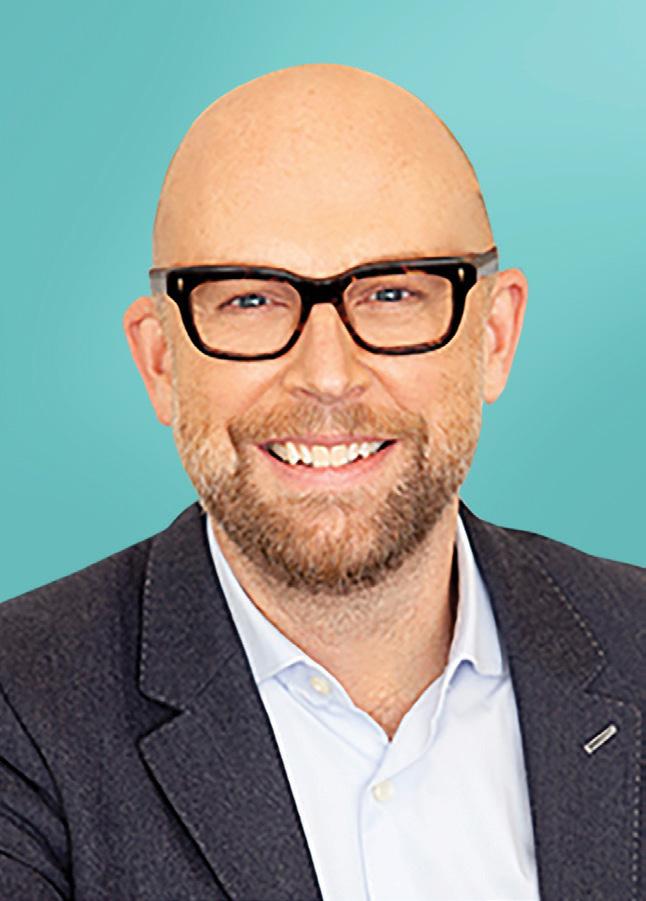
What’s unique about this is that you can install these controllers centrally, and they can manage multiple doors remotely, saving time. Also, if you’re upgrading from an older system, we have an adapter that allows you to integrate the new solution without replacing all your existing hardware.
How do you see the security industry evolving in the next five to 10 years, especially in terms of technology?
We’ll see a continued evolution towards highly scalable, easy-to-deploy software solutions. As AI and machine learning advance, we’ll see greater automation and more intelligent systems that can analyse data in real-time, helping companies anticipate risks and respond faster. Edge computing will also play a big role, allowing us to process more data locally, reducing latency and improving efficiency. Additionally, younger generations — Millennials and Gen Z — are entering the workforce and will demand more intuitive, user-friendly interfaces.
What does the future hold for Genetec in the Middle East?
Infrastructure development, particularly in Saudi Arabia, is a huge opportunity for us. We’re seeing increasing demand for security solutions in sectors like banking, oil and gas, and data centres. Collaboration will continue to be key to our success. As the region grows, the demand for smarter, more scalable security systems will increase. We’re in a great position to help businesses secure their future.
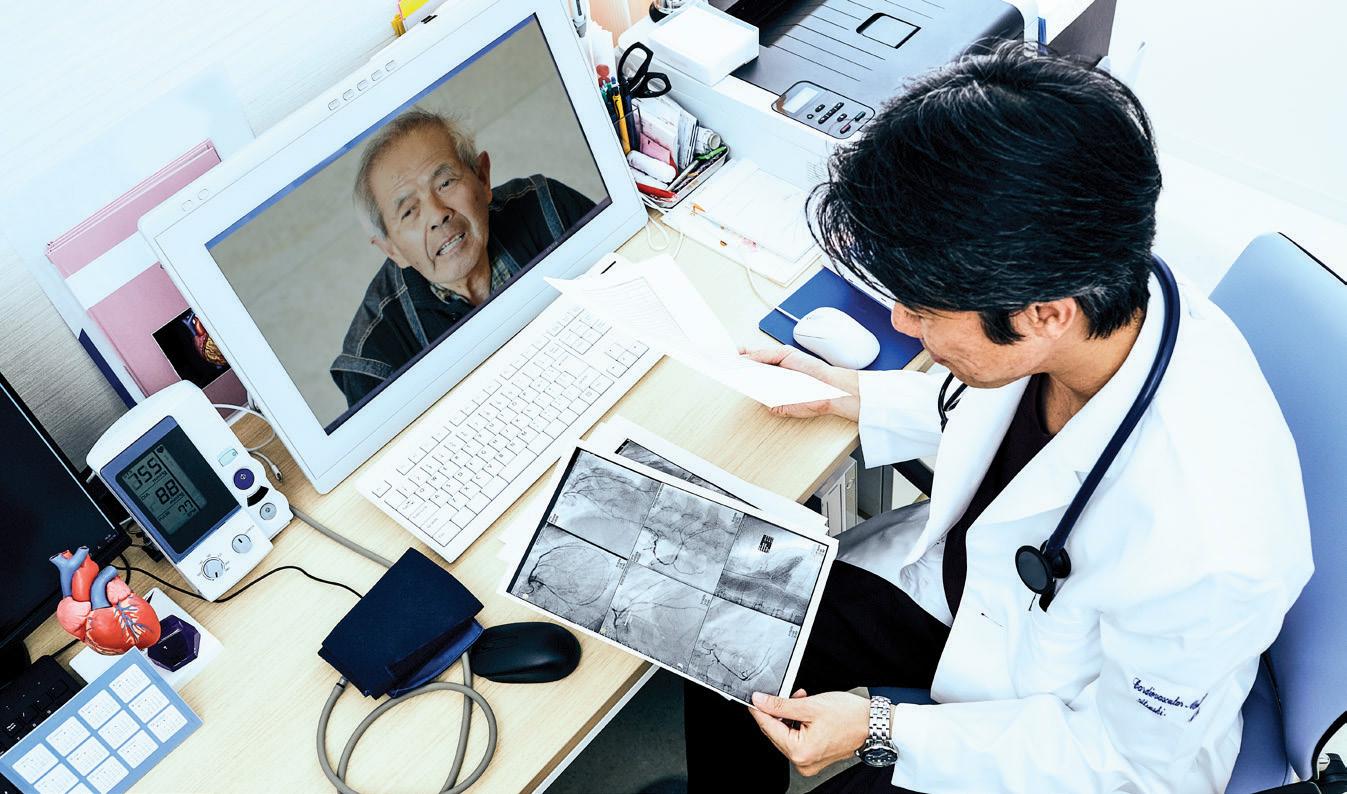
BY NEESHA SALIAN
In an exclusive interview with Gulf Business, Mohamed Ezz Eldin, cluster head GCC at Novartis, discusses the transformative steps healthcare organisations must take to improve access to care and build a more sustainable healthcare system in the Gulf region.
Highlighting the importance of strategic partnerships, innovation, and a patientcentric approach, Eldin emphasises how Novartis is playing a pivotal role in shaping the future of healthcare across the GCC.
From leveraging digital health technologies to fostering collaboration between the public and private sectors, his insights offer a roadmap for accelerating patient outcomes and ensuring equitable access to life-saving treatments
What strategies should healthcare organisations implement to accelerate access to healthcare in the Gulf region?
The Gulf region stands at a unique
crossroads, where visionary leadership is driving transformative healthcare changes.
For example, initiatives such as the UAE’s ‘We The UAE 2031,’ Kuwait’s ‘New Kuwait 2035’, and Qatar’s National Vision 2030 are key blueprints shaping future healthcare systems, with a focus on excellence, inclusivity, and resilience. However, true progress comes when healthcare organisations take an active role in turning these visions into tangible results.
The first strategic imperative for leadership within healthcare organisations to foster an ecosystem of innovation. Embracing digital health technologies — such as telehealth, AI-driven diagnostics, and remote monitoring — will enable faster access to care, especially in underserved regions. The success of telemedicine platforms in Bahrain and genomic screening initiatives in Qatar highlight how technology can close gaps in access while ensuring timely and effective treatments. Furthermore, collaboration is critical. Public-private
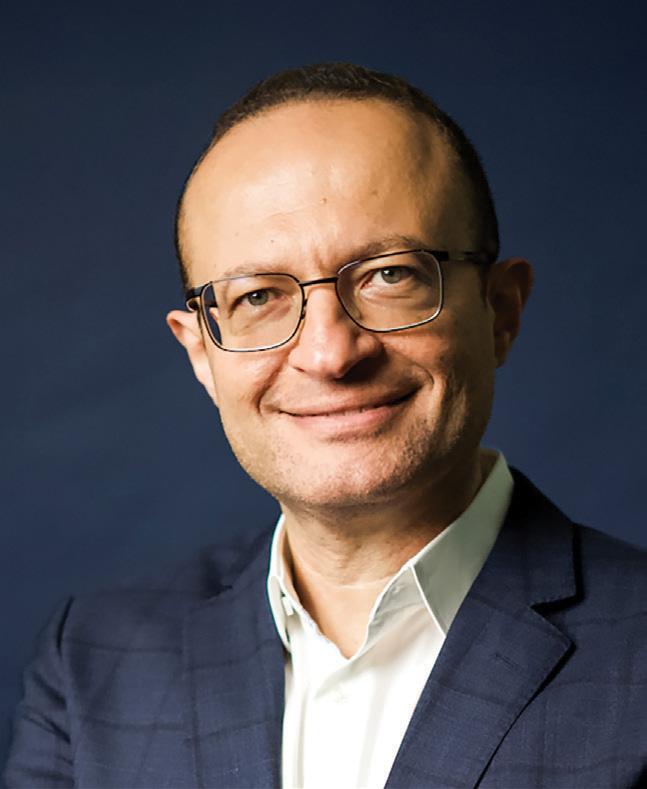
partnerships (PPPs) are instrumental in addressing healthcare challenges at scale, with leadership from both sectors needed to overcome barriers in infrastructure, financing, and specialised care. Through coordinated efforts, we can ensure that groundbreaking treatments reach patients sooner, making healthcare more accessible and equitable.
Lastly, community engagement is essential. Understanding and addressing the unique healthcare needs of populations across the Gulf, such as managing chronic diseases or preventive healthcare measures, will lead to solutions that resonate more deeply with patients. Organisations that foster a patient-centric approach will play a leading role in accelerating healthcare access across the region.
In what ways have strategic partnerships improved patient outcomes and contributed to a more sustainable healthcare system in the Gulf?
Strategic partnerships are more than alliances; they are a powerful mechanism for change, enabling healthcare transformation across the Gulf. By uniting with government agencies, academia, and patient societies, we can collectively improve patient outcomes and strengthen healthcare sustainability. Leadership within these partnerships ensures we move beyond short-term wins, working toward
EMBRACING DIGITAL HEALTH TECHNOLOGIES –SUCH AS TELEHEALTH, AI-DRIVEN DIAGNOSTICS, AND REMOTE MONITORING –WILL ENABLE FASTER ACCESS TO CARE, ESPECIALLY IN UNDERSERVED REGIONS.”
long-lasting, systemic changes. Novartis’ collaborations in the Gulf serve as examples of this leadership. For instance, the “Women in Pink” campaign with the Emirates Oncology Society, which raises breast cancer awareness, and the “Your Heart can’t Wait” campaign with the Emirates Cardiac Society, aimed at promoting education around heart failure, are additional examples of how such initiatives can provide targeted education and early intervention, resulting in more timely diagnoses and improved patient outcomes. Additionally, our ongoing collaboration with the Emirates Dermatology Society on initiatives like “Shine a Light on HS” will play an invaluable role in improving the understanding, diagnosing, and management of Hidradenitis Suppurativa. These partnerships are not just about shared resources—they represent a commitment to leveraging collective expertise to create long-term impact. Through multi-sector collaboration, we are fostering a professional space for healthcare professionals to innovate and collaborate, creating a sustainable and equitable healthcare environment.
What innovative approaches should healthcare leaders adopt to ensure faster delivery of treatments, and how do these compare to traditional models of healthcare in the Gulf region?
To accelerate the delivery of treatments, healthcare leaders must focus not only on external innovations but also on cultivating an internal culture that drives agility and efficiency. At Novartis, we embrace a “curious, inspired and unbossed” leadership philosophy, which empowers our teams to think beyond the conventional and push the boundaries of what’s possible in healthcare.
This culture of curiosity encourages our leaders and teams to actively seek out new ideas and solutions, enabling us to explore novel treatments and partnerships that address unmet medical needs. For instance, our collaboration with Pharmax Pharmaceuticals is a testament to how curiosity
drives us to find innovative ways to improve access to care in the Gulf region.
In our inspired culture, we’re driven by the impact we can have on patients’ lives. Every leader at Novartis is motivated to accelerate access to life-saving treatments by fostering an environment where our teams can collaborate freely and share ideas. This was key in our work with the UAE Ministry of Health and Prevention, where our teams helped to rapidly bring innovative treatments to market, including groundbreaking gene therapies that are revolutionising the industry. Our unbossed approach ensures that our leadership structure is decentralised, empowering individuals at all levels to take ownership of their work and drive initiatives that make a real difference. Leaders at Novartis don’t manage — they enable, allowing teams to make quick, informed decisions that speed up processes and enhance efficiency. This has been crucial in ensuring that we remain agile and responsive, bringing advanced treatments to patients faster than traditional models of care would allow.
By embedding this culture into our leadership approach, Novartis ensures that innovation thrives both within our organisation and in the wider healthcare ecosystem, ultimately driving better patient outcomes across the Gulf region.
What are the company’s goals to develop an equitable healthcare system?
At Novartis Gulf, we are committed to longterm leadership in supporting a healthcare system that is not only equitable but also resilient. Our goal is to serve twice as many patients, twice as fast, and achieving this requires sustained investment in innovation, partnerships, and community-focused healthcare delivery.
We firmly believe that equitable healthcare starts with accessibility. By leveraging our deep portfolio of therapies, which spans areas like oncology, cardiovascular disease, and neuroscience, we aim to bring advanced treatments to all segments of society, regardless of economic
status. In parallel, we are focusing on digital health innovations that allow for more personalised and effective care. The Gulf’s regulatory framework, with its focus on innovation and public health, provides a conducive environment for us to bring forward novel treatments at an accelerated pace.
Another key focus is on health literacy and patient empowerment. Our leadership in the industry extends beyond delivering medicine; we are actively working to raise awareness, educate patients, and involve them in their own healthcare decisions. Whether through targeted campaigns or partnerships with local healthcare providers, Novartis is committed to fostering a culture of informed patient engagement across the Gulf. We see the future of healthcare in the Gulf as one of transformation, with Novartis playing a leading role in driving that change. By aligning our goals with the region’s long-term healthcare visions, we aim to create a healthier, more equitable society for all.
Tell us about the company’s plans. Novartis remains steadfast in our mission to reimagine medicine and improve and extend people’s lives. Our goal is to expand access to treatments, for communities across the region, ensuring that healthcare reaches those who need it most. In pursuit of this mission, we are committed to developing our people and fostering an equitable and inclusive workplace that values unique and curious minds. By unleashing the power of our workforce, we empower our employees to contribute meaningfully to our vision. We also actively engage in volunteering and community work, reinforcing our commitment to social responsibility.
Additionally, we have a robust pipeline of innovative medicines in development across a range of therapeutic areas. Our focus on partnerships with healthcare providers, governments, and non-governmental organisations will continue to strengthen, as we work together to create comprehensive solutions that enhance the healthcare landscape.
Through these initiatives, we are determined to solidify our role as a leader in the ongoing transformation of healthcare in the Gulf region, driving sustainable change that benefits all.

CHARLES LESLIE, HALEON’S GLOBAL BUSINESS LEAD FOR THE PAIN PORTFOLIO AND SYSTEMICS SHARES KEY CONSUMER HEALTH TRENDS RESHAPING THE HEALTHCARE SECTOR, WITH A FOCUS ON SELF-CARE
BY NEESHA SALIAN
In an interview with Gulf Business, Charles Leslie, global business lead for the Pain Portfolio and Systemics at Haleon, outlines key consumer health trends reshaping the healthcare sector, with a focus on self-care, personalised wellness and the growing role of technology.
Leslie also highlights Haleon’s initiatives, including the launch of the Haleon Pain Management Institute (HPMI) and the company’s strategic focus on the UAE and GCC regions, to meet the evolving healthcare needs of consumers.
What are the key consumer health trends shaping the healthcare sector today?
The healthcare sector is undergoing a
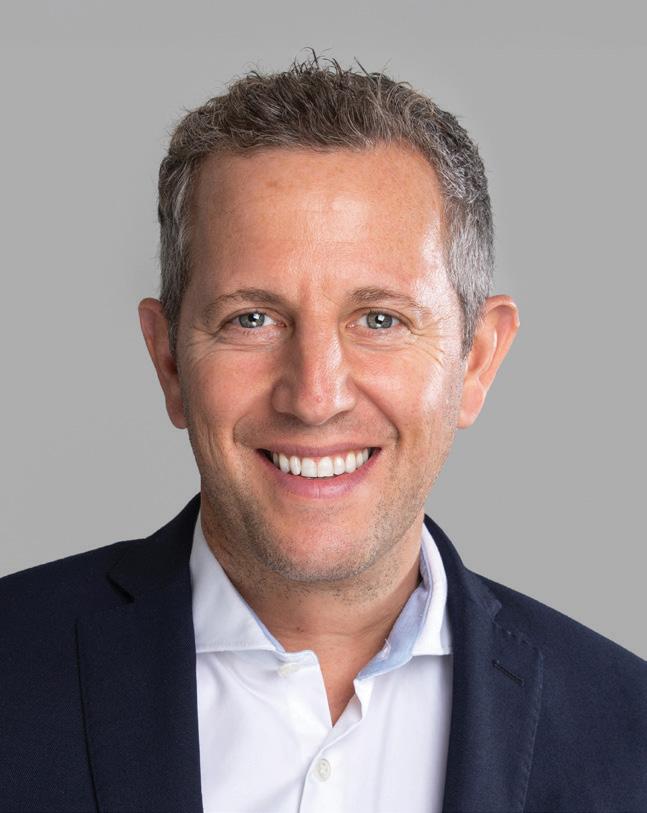
profound transformation, fueled by consumer health trends that are reshaping how we view health and wellness. One of the most noticeable trends is an increased emphasis on self-care. Consumers are becoming more proactive in managing their health, thanks to increased access to information and a growing recognition of the value of preventative care. This is especially evident in the growing demand for over-the-counter products, which offer convenient and affordable solutions to everyday health issues.
Another significant trend is personalised health and wellness, as consumers are seeking tailored solutions that fit their lifestyles. This shift is being driven by technological and data advancements, which allow for more precise and individualised care.
Haleon embraces these trends by focusing on everyday health through initiatives such as the Haleon Pain Management Institute, which empowers consumers and healthcare professionals to create a more accessible, effective, and sustainable healthcare future.
THIS IS THE FIRST TIME WE HAVE INCLUDED A COUNTRY FROM THE REGION IN HPI 5. BECAUSE OF THEIR DYNAMIC HEALTHCARE LANDSCAPE AND COMMITMENT TO INNOVATION, THE UAE AND THE WIDER GCC REGION WERE NATURAL CHOICES FOR HALEON TO FOCUS ITS EFFORTS ON THE HPMI AND OTHER HEALTHCARE INITIATIVES.”
What role does technology play in transforming consumer healthcare?
How has this changed since the pandemic and how do you see this progressing over the years?
Technology helps to transform consumer healthcare by empowering both individuals and healthcare professionals. Haleon uses technology to enhance understanding, drive product innovation, and improve access to everyday health. Since the pandemic, the role of technology has grown significantly, allowing us to communicate more directly with consumers and healthcare providers. Digital health initiatives have become critical to providing accessible, dependable, and personalised health solutions.
Looking ahead, advancements in digital platforms, data-driven insights, and artificial intelligence will continue to improve personalised care and close healthcare access gaps. Technology is critical to our mission of delivering everyday health to humanity, ensuring a future where healthcare is more accessible, effective, and sustainable for all.
Why is pain management a critical focus area for Haleon, and how does the newly launched HPMI contribute to addressing this need?
Pain is a widespread phenomenon. Haleon’s proprietary social stud, the 5th edition of the Haleon Pain Index [HPI 5] has uncovered startling figures. Over 91 per cent of the world’s population suffers from pain each year. Pain has a direct impact on the quality of life for millions of people around the world.
Chronic and acute pain are two of the most common health issues, affecting not only individuals but also putting significant strain on healthcare systems. At Haleon, we believe that effectively addressing pain requires providing patients and healthcare professionals with
the tools, knowledge, and resources they need to manage it holistically.
The newly established Haleon Pain Management Institute (HPMI) represents a significant step in this direction. Its mission is to advance the science of pain through innovative research, strategic partnerships, and customised education programmemes.
The HPMI fosters better patient outcomes by equipping frontline healthcare providers with cutting-edge skills and a deeper understanding of patient behaviour. This initiative demonstrates our commitment to improving everyday health and effecting meaningful change in how pain is understood and managed.
What inspired the company to choose the UAE and GCC as a key focus area for the HPMI and other healthcare initiatives?
This is the first time we have included a country from the region in HPI 5. Because of their dynamic healthcare landscape and commitment to innovation, the UAE and the wider GCC region were natural choices for Haleon to focus its efforts on the HPMI and other healthcare initiatives. The region is actively advancing healthcare infrastructure and policy, making it an ideal partner for initiatives that aim to improve everyday health.
The UAE, in particular, has established itself as a global hub for healthcare innovation and a pioneer in implementing forward-thinking approaches. Its strategic vision is closely aligned with Haleon’s mission to provide accessible and sustainable healthcare, particularly in the areas of pain management, preventative care, and health literacy. Therefore, it makes complete sense for us to launch our global initiative here in the UAE.
Furthermore, the GCC’s diverse population and unique healthcare challenges, such as the rising prevalence of chronic
diseases, highlight the critical importance of initiatives like the HPMI. Haleon’s focus on this region not only addresses local health needs, but also contributes to global healthcare advancements.
What is the company’s vision for the future of consumer healthcare, and how does it align with global health equity?
Haleon’s vision for the future of consumer healthcare is based on empowering people to take control of their health while making everyday healthcare more accessible, sustainable, and innovative. We are committed to improving health outcomes by emphasizing preventative care, health literacy, and personalised solutions that address the unique needs of individuals and communities. This vision centres on global health equity. Haleon believes that healthcare access should be a universal right rather than a privilege.
Haleon works to bridge gaps in healthcare access by promoting self-care practices and fostering partnerships with healthcare professionals, ensuring that its mission of everyday health with humanity benefits individuals and communities worldwide.
Preventative healthcare is becoming an increasingly important aspect of consumer health. How is Haleon addressing this growing demand, and what role do your products play in helping consumers proactively manage their health?
Preventative healthcare is a key component of Haleon’s commitment to improving overall health. We believe that empowering individuals to take proactive steps to manage their health is critical to meeting the growing global demand for sustainable
THE UAE’S ‘WE THE UAE 2031’ VISION SEEKS TO ESTABLISH THE COUNTRY AS A GLOBAL LEADER IN HEALTHCARE BY EMPHASISING ADVANCED, INTEGRATED, AND ACCESSIBLE HEALTHCARE SYSTEMS

and affordable healthcare solutions. Our trusted brands play a key role in preventative care by providing solutions to help consumers maintain their health. Centrum, for example, supports nutritional needs, whereas Sensodyne and Parodontax promote oral health and help prevent more serious dental issues. In addition to our products, Haleon supports initiatives that promote health literacy and empower consumers to make informed decisions. We promote preventative health through education campaigns, pharmacist programmemes, and partnerships.
Haleon helps people take control of their health journeys by raising awareness and providing accessible solutions, thereby reducing the strain on healthcare systems.
How does Haleon approach educating consumers on the importance of self-care and health management? What strategies do you use to ensure that consumers are equipped with the knowledge to make informed decisions about their healthcare? At Haleon, educating consumers about self-care and health management is central to our mission of providing everyday health to humanity.
In the region, we prioritise tailored initiatives that address specific health needs and raise awareness. For example, the ‘Healthy
Saudi Smile’ campaign in Saudi Arabia raises oral health awareness by educating the public about proper brushing techniques, the importance of regular dental check-ups, and how oral health affects overall wellbeing. Additionally, Haleon has implemented an AI-powered Health Inclusivity Screener to ensure that health messages are accessible, culturally relevant, and understandable to the region’s diverse populations.
We empower consumers to make informed healthcare decisions through these campaigns, pharmacist training programmes, and social media outreach. By increasing health literacy, we hope to help people live healthier lives and have a positive impact on their communities.
How does the company view the future of consumer healthcare in emerging markets, particularly in the GCC and wider MENA region? What are the unique opportunities and challenges you foresee in these markets?
Haleon’s vision for the future of consumer healthcare is centred on emerging markets, particularly those in the GCC and MENA regions. These regions present significant opportunities, including increased awareness of preventative health and selfcare, and increased investment in healthcare infrastructure. The UAE and Saudi Arabia are leading the way with innovative healthcare policies and a digitally
connected population eager to adopt proactive health management. There is also a sharp – and unexpected – generational divide in the way people experience pain, suggesting that younger rather than older patients struggle most with making their pain known.
As one of the regions with some of the youngest populations, we must step up our activities to address these challenges. Our initiatives in these markets are aimed at addressing consumer issues like health literacy and the adoption of self-care habits. We want to empower people to take control of their health.
The main challenge, as for any market, would be aligning with local needs. By doing so and leveraging expertise, we can assist in achieving sustainable, accessible healthcare solutions.
The UAE is positioning itself as a healthcare hub in the region. How do you see Haleon contributing to the country’s vision for healthcare, and what specific challenges or opportunities does the UAE present in the consumer healthcare space?
The UAE’s ‘We the UAE 2031’ vision seeks to establish the country as a global leader in healthcare by emphasising advanced, integrated, and accessible healthcare systems. Haleon is closely aligned with this goal, driving initiatives that empower people to take control of their health and promote preventative care.
We prioritise health literacy as a critical area for advancing the UAE’s goals. By educating consumers through targeted campaigns and partnering with healthcare professionals, we hope to bridge gaps in awareness and enable informed decision-making.
The UAE’s commitment to digital transformation and innovation opens up opportunities for Haleon to expand its reach via advanced platforms. Adapting to evolving regulations and meeting the needs of a growing population will require ongoing collaboration with local stakeholders.
Haleon continues to support the UAE’s healthcare vision by aligning our efforts with the country’s objectives for accessible, sustainable, and innovative healthcare.
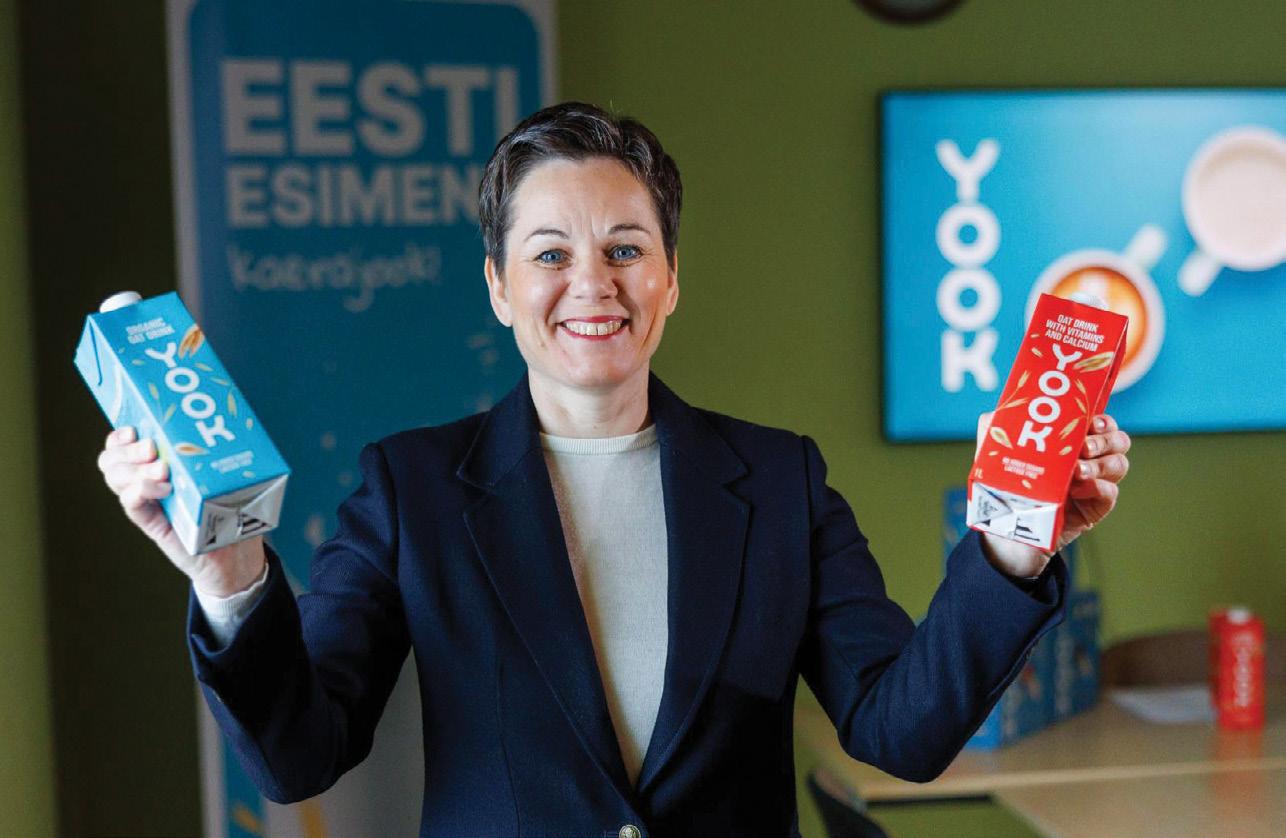
From traceability to tradition-driven innovation, Estonian brands are carving out a distinct niche in the MENA region’s competitive market. Katre Kõvask, Export Workgroup Leader at the Estonian Food Industry Association and CEO of YOOK shares insights on the factors that make Estonian F&B products appealing
How do Estonian food and beverage brands, known for their organic ingredients and sustainability, align with the consumers in the MENA region?
Estonian food and beverage (F&B) brands’ commitment to organic and sustainably sourced ingredients directly aligns with the rising health consciousness and environmental awareness among MENA consumers. Estonia’s pristine environment and focus on natural farming methods ensure that products are free from harmful additives and pesticides, meeting the high expectations of a health-focused market. Furthermore, Estonian producers emphasise environmentally friendly practices such as organic farming, renewable energy usage, and minimal waste, resonating with consumers in the MENA region who increasingly prioritise eco-conscious products. These shared values create a foundation for building trust and loyalty with MENA consumers.
Estonia’s reputation for high-quality food production is built on strict quality controls and certifications. How do Estonian F&B companies ensure traceability, transparency, and product purity?
Estonian F&B companies operate under some of the most stringent quality control systems in Europe, ensuring that every product meets the highest standards of safety and purity. With advanced technologies like blockchain for supply chain transparency and digital traceability
solutions, Estonian companies can provide detailed insights into every stage of production, from farm to table. Additionally, many Estonian products carry certifications such as EU Organic, Halal, and ISO standards, which are particularly appealing to MENA consumers concerned about food safety, ethical sourcing, and compliance with dietary requirements. By emphasising traceability and purity, Estonian brands offer MENA consumers the assurance they seek.
How are Estonian brands leveraging their food technology innovations to develop products that support health and wellness, such as high-fibre or guthealth-promoting foods?
Estonian brands are at the forefront of food technology innovation, leveraging cutting-edge research and development to create plant-based and functional food products that cater to the health and wellness trends in the MENA region. Examples include dairy alternatives enriched with probiotics for gut health, high-fibre snacks made from ancient grains, and fortified foods designed to meet specific nutritional needs.
Estonia’s focus on combining traditional ingredients with innovative processes ensures that these products are not only healthy but also flavourful and authentic, appealing to a diverse consumer base in the MENA market.
How do Estonian F&B companies incorporate sustainability into their products?
Sustainability is deeply ingrained in the operations of Estonian F&B companies. From sourcing raw materials through organic and regenerative agriculture to utilising renewable energy and implementing waste-reduction strategies, these companies prioritise ecofriendly practices throughout the production process. Sustainable packaging solutions, such as biodegradable and recyclable materials, further demonstrate Estonia’s commitment to minimising environmental impact. For MENA consumers who are increasingly environmentally conscious, these efforts underscore the authenticity and responsibility of Estonian brands, making them a natural choice for those seeking sustainable options.
Given Estonia’s strong emphasis on both tradition and innovation, how does the blend of these values position Estonian food products in the MENA market?
Estonia’s unique combination of tradition and innovation positions its food products as highly distinctive in the competitive MENA market. Traditional recipes and natural ingredients reflect Estonia’s culinary heritage, while innovative processes and technologies ensure modern quality and functionality. This blend allows Estonian brands to cater to consumers seeking authentic flavours and trustworthy products while also delivering cutting-edge solutions like functional foods, enhanced nutritional profiles, and sustainable packaging.
How does Estonia’s active participation in major trade events like Gulfood contribute to expanding the presence of Estonian F&B brands in the MENA market?
These events provide Estonian companies with opportunities to connect directly with distributors, retailers, and decision-makers, fostering valuable relationships and increasing brand visibility. The Estonian government actively supports these efforts through initiatives such as export grants, trade delegations, and promotional campaigns. By facilitating collaborations and offering strategic support, the government plays a vital role in building long-term partnerships between Estonian companies and GCC businesses, ensuring mutual growth and success in the region.
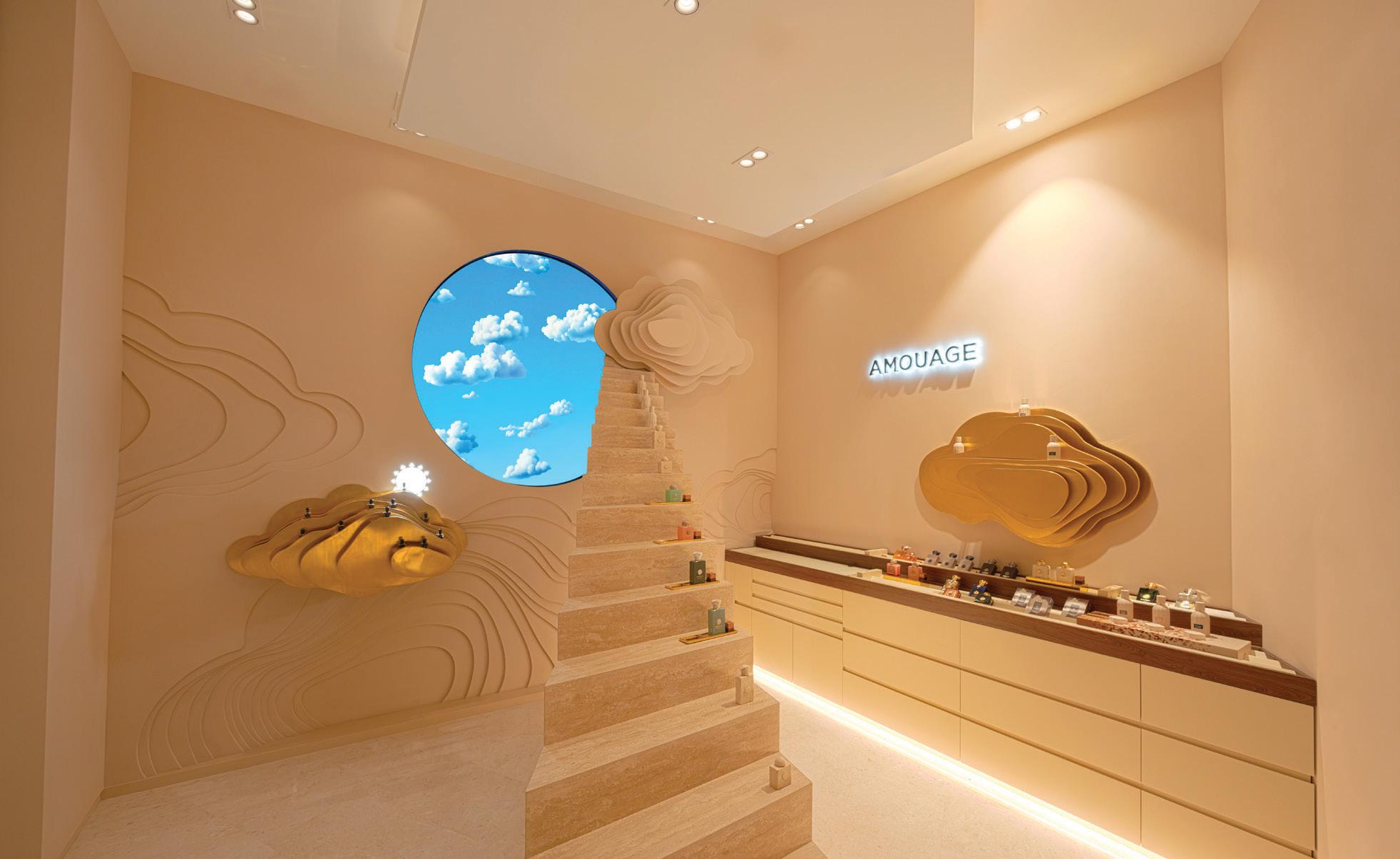
From its cultural heritage to its unique fragrances, we explore why Oman’s House of Amouage is a favourite with fragrance fans all over the world p.52
“Givaudan has a strong history of fostering partnerships that enhance our mission in taste and wellbeing, particularly through our front-end innovation programme. It is designed to explore new ideas and technologies that can lead to breakthrough products.”
OLGA BEZUKLADOVA, regional innovation head at Givaudan Taste and Wellbeing
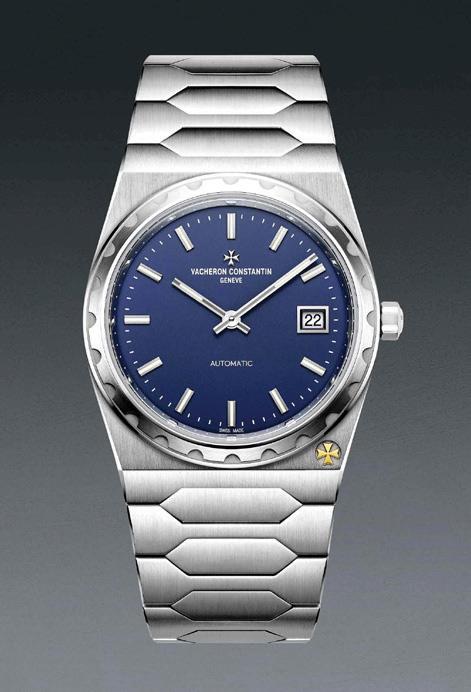
Vacheron Constantin has unveiled a new edition of its first 222 model – nicknamed ‘Jumbo’ by collectors and featuring a blue dial framed by a 37 mm stainless steel case. The re-edition benefits from several technical improvements. The joints of the bracelet –which is nowfastened with a triple-blade rather than a twin-blade clasp – have been redesigned to hide the visible pins and improve ergonomics. Slightly smaller indiameter than its predecessor, it is still only 3.6 mm thick.
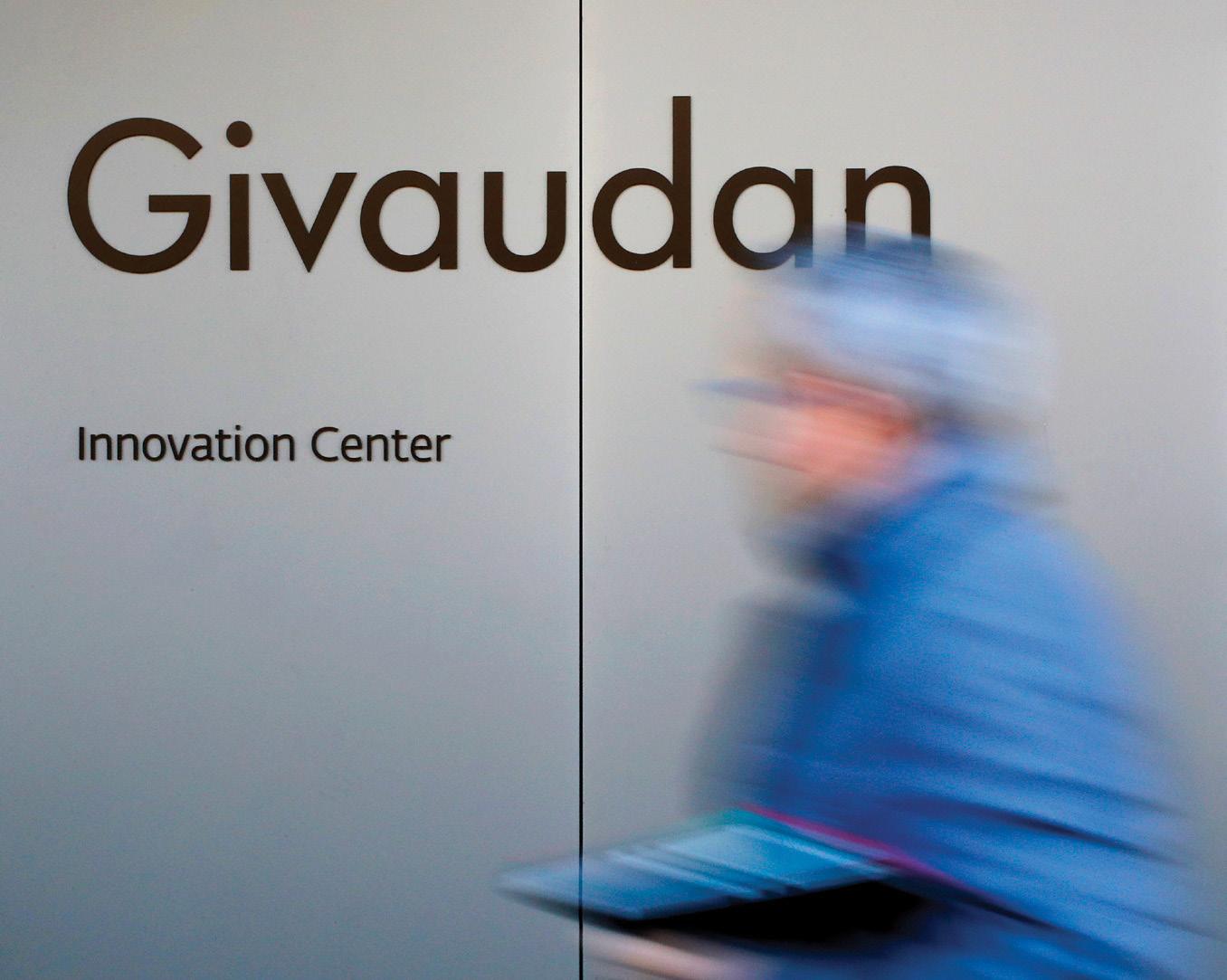
OLGA BEZUKLADOVA, REGIONAL INNOVATION HEAD AT GIVAUDAN TASTE AND WELLBEING, SHARES MORE DETAILS ABOUT THE HUB AND THE COMPANY’S WORK IN THE FOOD AND FLAVOURS SPACE
BY NEESHA SALIAN
Givaudan is a global leader in the creation of flavours and fragrances, serving a wide range of industries including food, beverages, personal care, and home care. With a rich heritage spanning over 250 years, the Swiss-based company combines creativity and innovation with advanced science to craft unique sensory experiences that connect with consumers worldwide.
In November last year, the company opened its Innovation Hub in Dubai to cater to South Asia, Middle East, and Africa (SAMEA) region.
The state-of-the-art facility brings cutting-edge technology and a focus on health-forward ingredients to deliver exceptional flavours and functional products tailored to local preferences.
Here, Olga Bezukladova, the regional innovation head at Givaudan Taste and Wellbeing, shares more details about the hub and the company’s work in the food and flavours space.
Elaborate on the strategic vision behind Givaudan’s Innovation Hub which opened in November last year in Dubai, and how it enhances Givaudan’s capabilities in the South Asia, Middle East and African (SAMEA) region as part of the broader global ecosystem.
The new Givaudan Innovation Hub, the latest addition to Givaudan’s global innovation network, represents a strategic evolution for the SAMEA region. Strengthening our capabilities and commitment to the region, it integrates increased autonomy
tailored to local operations while remaining an integral part of the global organisation.
This hub also serves as a powerhouse for food and beverage creations, tailored to regional preferences with the latest tools and expertise. Additionally, it acts as the driving force behind Givaudan’s innovation pipeline in the region, ensuring its products perfectly align with consumer and customer needs.
The facility also features a state-of-theart show kitchen and laboratories with capabilities in flavour creation and application, sensory evaluation, and food science.
What role will the Consumer and Sensory Insights (CSI) Centre in Dubai play in tailoring products to local and regional preferences, and how does it complement Givaudan’s other consumer insight centres worldwide?
As Givaudan’s Innovation Hub is based in Dubai, it was necessary to have a fullfledged consumer and sensory lab with the highest global standards. This was important not only to bring the voice of consumers early in the food and beverage creation process but also to drive consumer-centric innovation that is relevant for the region.
Givaudan’s leadership team was very keen on having consumer and sensory hubs around the region to manage the different consumer needs and to be closer to our customers and consumers. With that, there are three fully equipped and resourced centres in Dubai, Mumbai and Johannesburg.
The new laboratories and Consumer and Sensory Insights Centre (CSI) in Dubai meet global standards, accelerating the creation and delivery of new products. This results in a reduction in the time it takes for customers to introduce new products to the market, swiftly transforming consumer desires into tangible product offerings.
Givaudan’s pioneering technologies like ATOM and VAS sound transformative. Could you share more about these innovations and how they support Givaudan’s global mission of enhancing taste and aroma while aligning with regional needs?
Aligned with our company’s 2025 strategy and intent to lead the way in digitalisation, pioneering tools like ATOM and VAS open new doors to creative development and can dramatically cut the time to market for new
products. For example, the Virtual Aroma Synthesizer (VAS) was invented to speed up flavour creation and eliminate inconsistencies in descriptive language. Today, it has evolved immensely and allows for a faster generation of concepts, with ‘realtime’ flavour creation, as well as a high level of interaction between customers and our teams in what we call co-creation sessions.
Thanks to the newer and smaller VAS Air, the technology has become much more portable and easy to set up not only for co-creation with customers but also for consumer testing. Working with the VAS helps us to identify consumer preferences towards certain flavours. We can see that in multiple icons such as strawberry or vanilla flavour in a specific market across SAMEA. We pinpoint these nuances and then use these findings to co-create winning products.
ATOM is the latest addition to an ecosystem of digital and AI tools that allow Givaudan teams in all regions of the world to streamline the end-to-end creation process from conception to rollout. Building on over two decades of research, ATOM uses artificial intelligence (AI) and data science techniques to generate new options and insights aligned with consumer preferences, enabling us to co-create gamechanging new food experiences.
Early projects using the tools have been highly successful. For example, we used ATOM in recent developments for our key partners in North Africa. The tool helped to eliminate the extensive trial and error process and come up with the best winning solution based on consumer feedback, our expertise and internal knowledge.
The Innovation Hub features state-ofthe-art facilities like a show kitchen and specialised laboratories. How do these spaces support Givaudan’s co-creation efforts with clients, and how does this approach differ from traditional product development?
The Innovation Hub integrates a
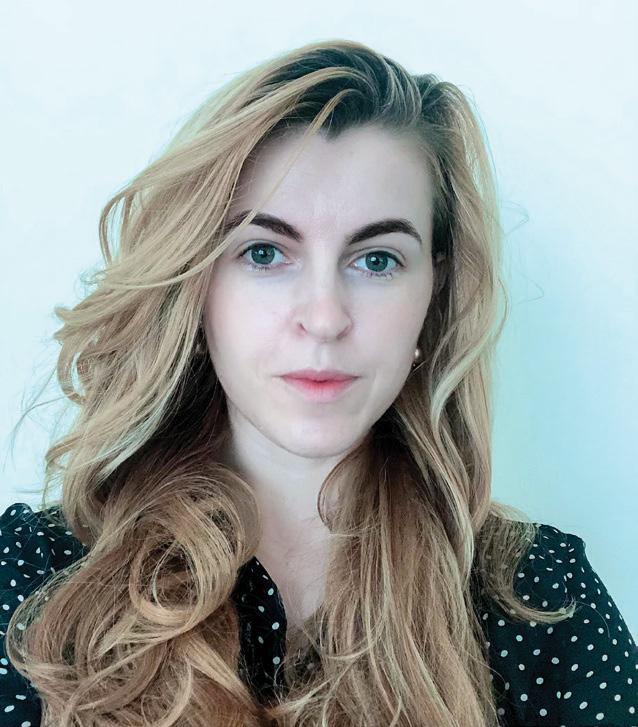
fully-equipped Consumer and Sensory Insights (CSI) centre, a co-creation suite, and state-of-the-art technical laboratories.
The CSI centre enhances consumer-centricity through comprehensive product evaluation, real-time data analysis, and sensory evaluation booths with specialised air handling systems to prevent cross-contamination, allowing us to be ahead of the latest trends in the industry when it comes to consumers’ expectations in food and beverages.
The co-creation suite is a dedicated space where our proprietary digital tools like the Virtual Aroma Synthesiser (VAS) and ATOM are utilised, along with an industrial kitchen and multifunctional spaces outfitted with advanced video conferencing and interactive screens. The room was designed to facilitate seamless collaborations with customers for real-time product refinement and faster market readiness, enabling us to deliver innovative solutions that meet the latest trends and surpass consumer expectations.
Complementing this room is a cutting-edge show kitchen that facilitates collaboration between our flavourists, chefs and customers to nurture creativity and cocreate exceptional food experiences.
In parallel, the technical laboratories we have in-house feature well-equipped spaces for flavour creation and application, emphasising global standards in food safety and environmental sustainability, and ensuring an optimal working environment that prevents cross-contamination when prototyping for the next innovation.
“Year after year, we are witnessing consumers become increasingly healthfocused, emphasising a demand for functionality and natural ingredients.”
Beyond taste and aroma, Givaudan also explores solutions in areas like functional foods and natural ingredients. How does this hub contribute to advancing Givaudan’s research in these areas, and are there any key trends you’re excited about?
Year after year, we are witnessing consumers become increasingly health-focused, emphasising a demand for functionality and natural ingredients. As a response to that and to other pressing and changing market conditions, we have realigned our portfolio to better reflect how, through our expanded product offering and capabilities, we support customers to deliver future-facing food experiences that consumers value. Anchoring our flavour, taste, natural functional and nutritional capabilities around the concept of food experiences enables us to link what we do with the benefits that consumers expect from the food, beverages and nutraceutical products they consume.
Lastly, Givaudan has a strong history of global partnerships and collaborations. Are there any new partnerships in the SAMEA region, particularly those involving local universities or research institutions, that are advancing your mission in taste and wellbeing?
Givaudan has a strong history of fostering partnerships that enhance our mission in taste and wellbeing, particularly through our front-end innovation (FEI) programme. It is designed to explore new ideas and technologies that can lead to breakthrough products. By partnering with academic institutions, we gain access to cutting-edge research and insights that are crucial for developing innovative flavours and health-focused solutions. We have also developed a broad network to find and accelerate disruptive food technologies.
These platforms are continuously scouting and incubating potential areas of innovation in the food and beverage industry. Our front-end innovation platform has facilitated exceptional partnerships with leading accelerators, including MassChallenge (Switzerland), MISTA(San Francisco), Bits x Bites (China), FoodTech HUB Latam (Brazil) and top VCs leading the way in the foodtech industry. Since the creation of SAMEA in 2021, we are in the process of creating similar partnerships in the region.

AMOUAGE IS MORE THAN A FRAGRANCE BRAND; IT’S A CELEBRATION OF OMANI CULTURE AND ARTISTRY. HERE, MARCO PARSIEGLA, CEO OF THE HOUSE OF AMOUAGE, SHARES HOW THE COMPANY IS REDEFINING LUXURY PERFUMERY WHILE STAYING GROUNDED IN ITS HERITAGE
BY NEESHA SALIAN
Hailing from Oman, in the heart of the Arabian Peninsula, the house of Amouage is renowned for its exquisite craftsmanship, unique ingredients, and a deep cultural heritage that spans centuries.
We sat down with Marco Parsiegla, CEO of Amouage, to discuss the essence of the brand, its commitment to blending tradition with modern tastes, and how the company is navigating the evolving landscape of luxury, e-commerce, and global markets. Here are excerpts from the discussion.
Amouage’s connection to Oman is both culturally rich and essential to its identity. How does the country’s history and landscape influence your brand? There’s a very strong connection, not just to the location, but to the essence of Amouage itself. Oman’s rich heritage,
storied history, and stunning landscapes are a constant source of inspiration for us. But it’s not about translating this literally; it’s more about interpreting it in a timeless, modern way. This allows us to connect not only with our regional customers but with international audiences as well. One of the key elements that sets Amouage apart is the use of frankincense from the Dhofar region of Oman, and other exceptional natural ingredients like rock roses from the Hajjar Mountains. These are treasures that we bottled up in our products, encapsulating the soul of the country itself.
There’s also a sense of generosity and hospitality embedded in these fragrances, which you can feel when you experience them. This is where our cultural roots and craftsmanship come together to create something truly unique. We’re proud to be producing everything in Oman, which
gives us a distinct position in the global luxury market.
Amouage has stayed true to traditional perfumery methods while embracing modern techniques. How do you find the balance between these two elements? We’re deeply embedded in a culture where perfumery has been a pivotal part of family life and social gatherings for centuries. Our heritage is steeped in this tradition. But at the same time, technology and modern methods offer incredible opportunities to enhance our creations.
Take our ‘Attar’ collections as an example. These are pure oils, inspired by the age-old practice of applying fragrance without dilution. While this tradition is timeless, we’ve worked with experts and fragrance houses to ensure that these creations are compliant with modern regulations, making them relevant and safe for today’s world. We’re also reintroducing a forgotten art with our ‘Essences’ collection, which involves double infusions — a technique that had been left behind by the industry. By bringing these practices back into the modern world, we’re educating our customers while keeping the essence of traditional perfumery alive. This approach is helping us bridge generations of perfume lovers and appeal to a new audience as well.
The global market is facing significant geopolitical tensions and economic

shifts. How has Amouage managed to navigate these challenges, especially with a more niche clientele?
The world is certainly going through a difficult time, and I don’t want to pretend that these challenges haven’t impacted some sectors of the luxury market. But at Amouage, we’ve managed to stay resilient. There’s a deep appreciation for craftsmanship and authenticity in our products, which has resonated with consumers more than ever before. In times of uncertainty, people seek out something real, something that tells a genuine story.
We produce everything in-house, and our commitment to using only the finest ingredients is not just a marketing story — it’s something you can experience firsthand when you visit our facilities. For example, we’re working closely with UNESCO to protect the frankincense trees in southern Oman. This kind of commitment to heritage and sustainability sets us apart and strengthens the bond with our clientele.
Despite the challenges in the world, Amouage is having one of its best years yet. Our global footprint is expanding, with growth across key markets such as the US, China, South Korea and Europe. We’re seeing strong demand not only in traditional markets but in newer ones too, like Saudi Arabia, where luxury beauty is booming.
With the rise of digital commerce, how has Amouage adapted to this shift, especially with a niche luxury product?
E-commerce has been a major success for us. It’s challenging to translate the multisensory experience of a fragrance online, but we’ve focused on making the user
experience as seamless and engaging as possible. From enhancing our digital platform to offering an immersive storytelling experience, we’re making sure that the essence of Amouage comes through, even through a screen.
Our online growth has been impressive — our platform has seen more than 50 per cent growth this year alone. We’ve invested heavily in improving our digital experience, and it’s paying off. A lot of our success is due to our commitment to showcasing the craftsmanship and heritage behind our fragrances, which resonates with our customers.
We’ve also realised the importance of catering to younger generations, particularly Gen Z and Gen Alpha. With them, it’s not just about shopping; it’s about creating an entire experience. We’ve integrated AI and other modern technologies to make this experience more personalised and meaningful.
What can you tell us about the varying preferences of Amouage customers around the world
It’s interesting because, despite regional differences, our fragrances have a universal appeal. Our recent creation, ‘Guidance’, for example, has become our best-seller globally, resonating with a younger audience due to its longevity and subtle potency. But we do see some regional preferences. For instance, our ‘Reflection’ fragrance is very popular in the US and Europe, while ‘Epic Woman’ does exceptionally well in Asia-Pacific. What’s particularly rewarding is seeing our customers build a fragrance wardrobe. More than 60 per cent of our clients have purchased multiple creations from our portfolio, which shows they’re not just buying a fragrance — they’re becoming part of the Amouage family. It’s about expressing your personality through our
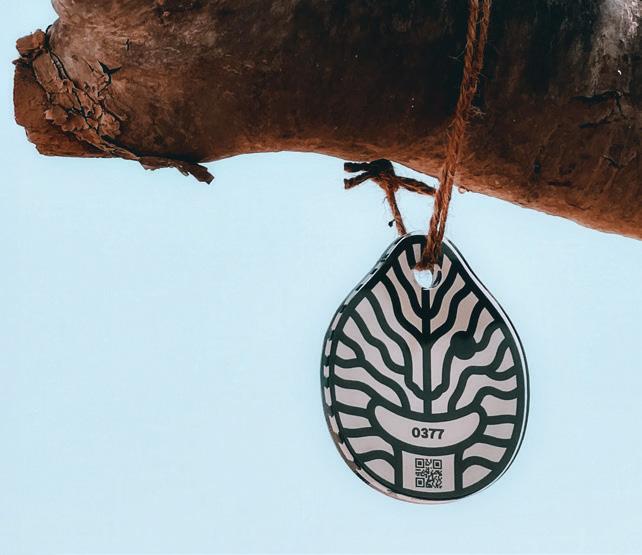
different collections, and that’s something we’re proud of.
You mentioned how important it is to create remarkable client journeys through your retail experiences. How is Amouage adjusting to an increasingly digital and experiential retail world?
We are shifting our focus to create a more experiential retail journey both in-store and online. We want to educate our clients, make them feel emotionally connected to what we do, and not just sell them a product. Amouage is about storytelling, and when you walk into one of our boutiques or visit our website, you’re invited into a world where fragrance is not just something you wear — it’s something you experience.
Our stores are designed to provide that immersive experience where customers are not just smelling fragrances but engaging with the brand on a deeper level. We’re also working with advanced technologies to bring elements of this immersion to our e-commerce platform, providing scent stories, behind-the-scenes glimpses into our creation process, and even virtual consultations with fragrance experts. It’s all about blending tradition with innovation and creating a personalised journey for each client.
Our stores aim to create an immersive experience that feels personal and deeply connected to the cultural heritage of Oman. For example, in our Shanghai store, we’ve incorporated a unique design inspired by Oman’s rich maritime history and its historic trade routes with China. When you step into the store, it feels like you’re underwater, walking beneath a dhow — a traditional Omani boat. This kind of immersive design isn’t just about aesthetics; it’s about making our customers feel that connection to our heritage in a tangible, sensory way. Similarly, in our SoHo store in New York, the design concept draws inspiration from the red sands of Oman, connecting the space with the essence of our homeland in a subtle yet evocative manner. These experiences allow customers to not only engage with the product but to engage with the story, with the land, and the culture behind it.
Saudi Arabia is a rapidly growing market for luxury, and you mentioned how you see it playing a key role in Amouage’s future. Tell us more about it. The market is evolving rapidly, both in

terms of its economy and cultural shifts. With the country diversifying its economy from oil to other sectors, the luxury market is seeing tremendous growth, and the beauty and grooming sector is also booming — especially among younger consumers. This is a market with a youthful population that has a keen interest in personal grooming, and that’s an exciting space for us as a luxury fragrance house. We believe that Saudi Arabia will be a critical market for luxury retail in the coming years. We’re committed to expanding our presence there and are planning to open new monobrand stores in 2025. We’re especially excited about the opportunity to be part of the cultural and economic transformation taking place.
Can you share more about Amouage’s market strategy in the UAE?
The UAE is one of our strongest markets, and we’ve been really pleased with how it has been performing. It’s a market where we have a very holistic presence, from monobrand stores to key retail partnerships to a strong e-commerce presence. We work closely with major retailers and have great relationships with Dubai Duty Free, which is a critical partner for us in travel retail.
Our commercial hub in Dubai also plays a key role in managing our global expansion. We handle a lot of the operational and back-office functions for our global business from here, and it’s been a strategic location for overseeing our growth and building relationships with key retail partners.
What trends do you see emerging in the fragrance world?
There are a few trends that we’re definitely
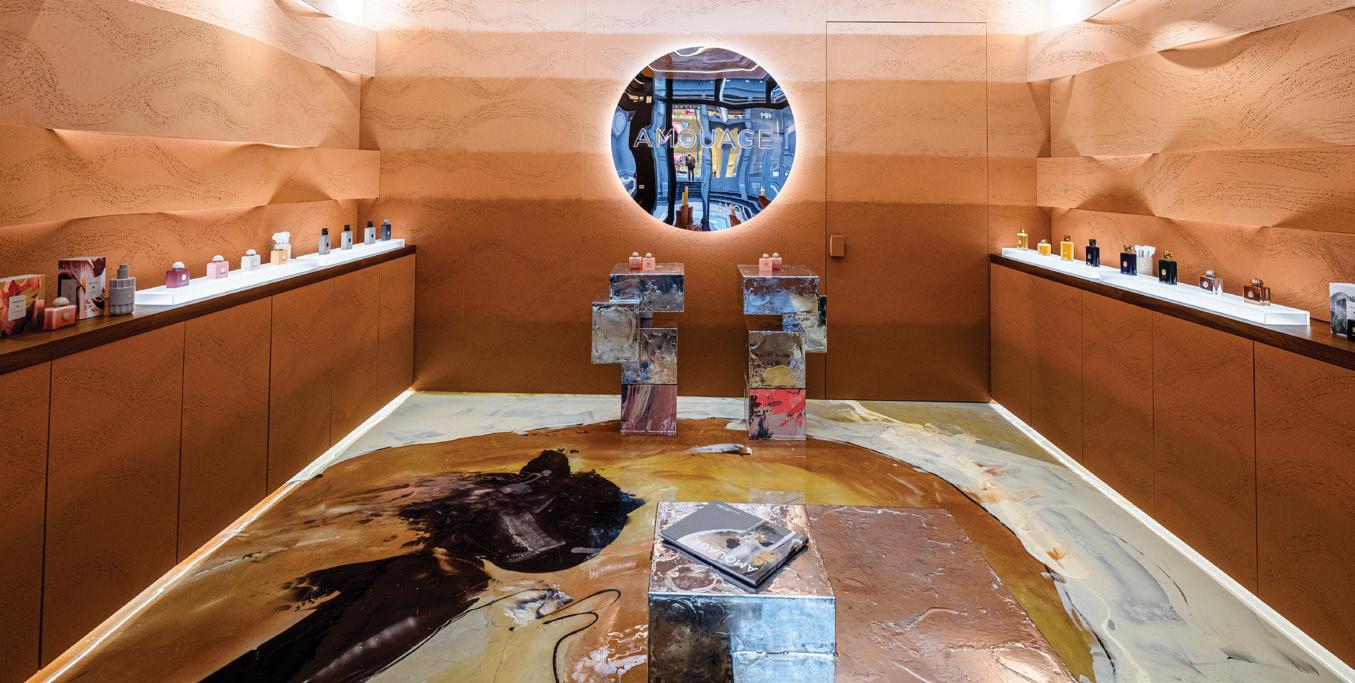
keeping an eye on. One of the biggest is the growing demand for personalised fragrances. As consumers become more aware of the power of scent to amplify their personality, they are looking for fragrances that are unique to them. I think customisation will be a major theme, both in terms of scent and the overall fragrance experience. Another trend we’re seeing is the desire for clean, sustainable fragrances. Consumers are increasingly concerned about the ingredients used in their products and are becoming more discerning about transparency and sustainability. That’s something we’re mindful of at Amouage; our commitment to using only the finest natural ingredients, like Omani frankincense, and ensuring that our practices are as sustainable as possible.
As always, Oriental fragrances will continue to have a strong presence in the market. However, we’re also noticing a shift toward more floral and woody notes, especially among younger consumers. It’s an exciting time for fragrance as the boundaries continue to evolve, and we’re thrilled to be part of that ongoing conversation.
You’ve touched on sustainability and responsibility. How do these trends play into Amouage’s broader brand philosophy? Sustainability for us isn’t just about environmental responsibility; it’s deeply embedded in our cultural heritage. Oman, with its limited natural resources, has always embraced sustainability out of necessity. We’re honouring that legacy by
working in ways that are both resourceefficient and beneficial to the land and communities.
For example, at the UNESCO World Heritage site where we’re producing our frankincense, we’ve taken a proactive approach by building a distillery in the desert, which not only fosters local employment but also incorporates cutting-edge technology for sustainability. Our commitment extends beyond just the environment — it’s about social responsibility too. We’re employing Omanis, working with the local community, and ensuring that our practices benefit everyone involved. This sense of responsible luxury is something that we’re seeing more of in the broader market, and it’s something we’re committed to continuing at Amouage.
How do you see technology shaping the future of luxury fragrances?
Technology is definitely becoming an increasingly important part of the luxury fragrance experience. On one hand, it enhances personalisation. Technology allows us to offer tailored fragrance experiences, making it easier for people to connect with scents that match their personality and lifestyle. But beyond personalisation, technology also enables traceability. Our customers will soon be able to trace the journey of their fragrance from the frankincense tree all the way to the bottle in their hands, knowing who grew the tree, when it was harvested, and how it was processed.
“As always, Oriental fragrances will continue to have a strong presence in the market. However, we’re also noticing a shift toward more floral and woody notes, especially among younger consumers.”
SAMSUNG ALSO PREVIEWED A THINNER VERSION OF THE FLAGSHIP MODELS AT THE END OF AN EVENT IN CALIFORNIA, AIMING TO LAUNCH THE GALAXY S25 EDGE IN THE FIRST HALF OF THIS YEAR AHEAD OF APPLE’S ANTICIPATED ROLLOUT OF ITS SLIMMER IPHONE
On January 23, Samsung Electronics unveiled its newest Galaxy S25 smartphones, powered by Qualcomm’s chips and Google’s artificial-intelligence model, hoping its upgraded AI features can reinvigorate sales and fend off Apple and Chinese rivals.
Samsung also previewed a thinner version of the flagship models at the end of an event in California, aiming to launch the Galaxy S25 Edge in the first half of this year ahead of Apple’s anticipated rollout of its slimmer iPhone.
Samsung was faster than Apple in launching an AI-powered smartphone but failed to regain its crown in the global smartphone market last year, squeezed by competition with the US rival in the premium market and with Chinese firms in the lower-end segment.
“We are one step ahead of the industry in terms of offering AI features. I believe we are going in the right direction,” Park Ji-sun, the executive vice president who leads Samsung‘s Language AI team, told Reuters.
Samsung kept the prices of its Galaxy S25 series unchanged at between $799 and $1,299.
The new Galaxy S25 uses Gemini offered by Alphabet’s Google as its default AI engine, and features Samsung‘s upgraded in-house voice assistant, Bixby, Park said.
The two tools complement each other, and Bixby plays a key role at Samsung, whose products span mobile phones to TVs and home appliances, he said.
Thomas Husson, an analyst at Forrester, said that differentiating Bixby would be a challenge for Samsung. “I don’t think there is really a killer

application today that you know would convince them (consumers), ‘OK, I’m going to buy this one because it’s an AI smartphone,’” he said.
Husson added, however, that AI features could create a halo effect around the Samsung brand.
The Galaxy S25 will offer a more personalised AI experience. For example, its “Now Brief” service — which makes recommendations to users based on personalised data that is stored and processed on the phone for privacy reasons – will display a suite of customised items such as calendars, news and bedroom air temperature and carbon dioxide levels, Park said.
The phone will be able to carry out multiple tasks with a single command, such as finding upcoming sporting events and then adding them to users’ calendars. Samsung used Qualcomm’s Snapdragon 8 Elite Mobile Platform for the entire Galaxy
S25 lineup, ditching its own mobile chip Exynos, a major change of strategy for a company that previously used both to have more bargaining power with suppliers.
Using a Qualcomm chip is a setback to the South Korean firm’s chip business, which counts its mobile division as one of its major customers. Samsung did not say why it decided not to use its own chips in the new model.
A person familiar with the matter said Samsung is looking to use the Exynos chip in its foldable phones to be launched later this year.
“The Galaxy S25 series’ sale is important at a time when Samsung‘s foldable phone sales have been stagnating in the face of challenges from Chinese companies,” Lim Su-jeong, associate director at research firm Counterpoint, said.
Samsung‘s preliminary fourth-quarter profit, released earlier this month, missed estimates by a large margin due to chip development costs and rising competition in the smartphone market.
By Reuters
A dedicated hub for the regional startup and SME ecosystem

We explore how Switch Foods is transforming the plant-based industry with innovative products, local production and a commitment to healthier, more sustainable food choices
BY MARISHA SINGH
Since its inception in 2022, Switch Foods is addressing the key challenges typically associated with plant-based products — taste, texture, and affordability — while working to develop alternatives that meet consumer expectations and compete directly with
traditional meat in the Middle East and North Africa (MENA) region.
Supported by the UAE government’s strong advocacy for the alternative protein sector, Switch Foods has benefitted from growing awareness about the health and environmental advantages of plant-based
diets. The company has also received guidance from Mariam bint Mohammed AlMheiri, former UAE Minister of Climate Change and Environment, a leading proponent of sustainable food systems transformation. In collaboration with prominent partners such as Al Safadi, Paul Café,
The First Group, Emirates Airlines, and The Millennium Hotels & Resorts Group, Switch Foods is curating exclusive plant-based menus aimed at offering consumers a healthier and more sustainable dining experience.
To gain further insight into the nascent yet growing alternative protein industry, Gulf Business speaks to Edward Hamod, CEO and founder of Switch Foods.
What factors are driving the revolution in alternative proteins?
The revolution in alternative proteins is driven by several key factors, as demonstrated by the rapid growth of the global meat substitutes market. A primary driver is the growing consumer awareness of the impact of dietary choices on health. Healthconscious consumers are increasingly opting for plant-based proteins due to their numerous benefits, such as zero cholesterol, around 55 per cent lower fat content, and the absence of hormones and antibiotics.
Additionally, the high clean protein content in these plant-based options appeals to physically active individuals. The opportunity to consume high-protein foods that are low in fat, nutritious, delicious, and easily digestible is a significant advantage. Environmental and sustainability concerns are also a major factor, as traditional meat production is associated with a large carbon footprint and high water usage. In contrast, plant-based alternatives have a far lower environmental impact, further encouraging the shift in consumer preferences.
Can you describe the current state of the alternative protein industry?
The alternative protein industry is experiencing rapid global expansion, with annual double-digit growth. In the Middle East and Africa, the market is expected to reach $1.1bn by 2028, according to a report in Current Developments in Nutrition.
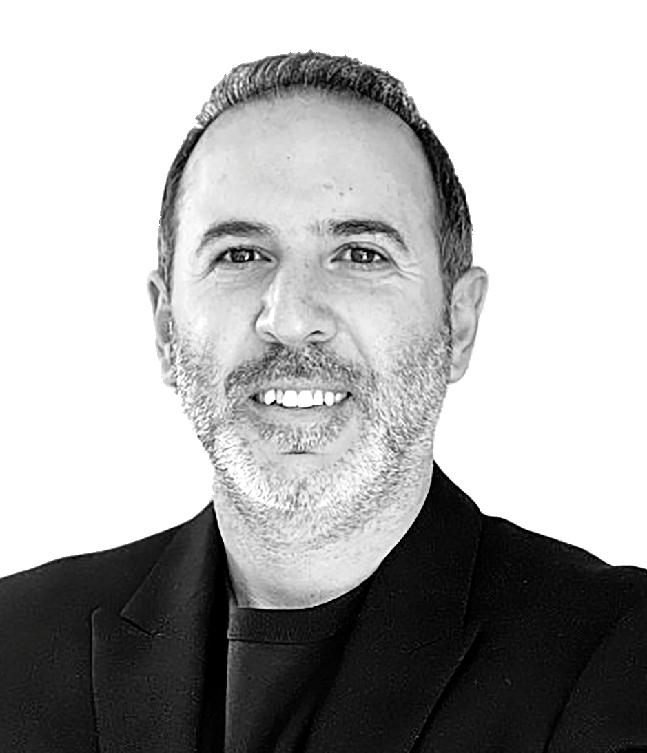
A study by Ventures Middle East found that 56 per cent of F&B consumers in the GCC are demanding plant-based options, spurring local innovation and product development. The pandemic reinforced trends in healthy eating, leading to a sustained shift towards plant-based, flexitarian, and vegan diets.
The market caters not only to vegans but also to a growing number of consumers reducing their meat and dairy intake for health, ethical, and environmental reasons. The GCC, with its young, educated, and engaged population, is experiencing a significant shift towards healthier and more responsible eating. As demand increases, shops and restaurants are diversifying their offerings to include more plant-based options.
What steps are necessary to build a sustainable and competitive alternative protein sector?
Building a sustainable and competitive alternative protein sector requires a multifaceted approach. First, understanding local consumer tastes and preferences is crucial.
“IN OUR PURSUIT OF EXPANDING OUR BRAND, WE ARE ACTIVELY PARTNERING WITH HOTEL CHAINS, RESTAURANTS, AIRLINES, CATERING COMPANIES, AND RETAILERS TO ENSURE CONSUMERS HAVE ACCESS TO PLANT-BASED OPTIONS.”
Culinary traditions, habits, and palates vary by region, so products must be developed to cater to these local and regional preferences. Additionally, plant-based products must excel in taste and texture, providing a similar experience to traditional meat. Achieving price competitiveness with conventional meat is also essential to ensure a smooth transition for consumers, which necessitates significant investment in research and development.
Scaling production to meet rising demand while maintaining affordability is critical. Establishing local manufacturing facilities can reduce costs and lower environmental impact.
Collaborating with the hospitality and F&B industry is another key step in integrating plant-based alternatives into mainstream food culture, expanding market reach and driving growth in the sector.
Lastly, public awareness and education about the benefits of plant-based diets are vital for consumer acceptance and demand. This can be achieved through extensive educational campaigns, often led by government authorities in more advanced markets.
Supportive government policies and incentives can further accelerate growth by facilitating research, ensuring strict quality control, and promoting sustainability initiatives.
What barriers and challenges is Switch Foods addressing to ensure the future viability of alternative proteins?
One of our main challenges is consumer education. Many people remain unaware of the benefits of plant-based alternative proteins. To address this, we invest in educational campaigns that highlight the health, environmental, and ethical advantages of adopting plant-based diets.
Another significant hurdle is consumer adoption. Some individuals are reluctant to try plant-based alternatives due to concerns about taste and texture. To overcome this, we continuously innovate to improve the sensory experience of our plant-based meats, ensuring they taste and feel as close as possible to traditional meat. Our products are made using pea protein, which offers a comparable amino acid profile and high-quality protein content, making them nutritious, delicious, and widely accessible.Cost is also a challenge.

Historically, plant-based products have been more expensive than their animalbased counterparts. To mitigate this, we are focused on reducing costs by optimising our supply chain, investing in local production facilities, and adopting sustainable manufacturing practices.
What technologies and innovations has Switch Foods deployed in its products and processes?
Switch Foods is dedicated to innovation, as reflected in our unique product range. Our products are primarily made from pea protein, which provides an excellent amino acid profile and high digestibility. They are GMO-free, and free from soy, allergens, cholesterol, gluten, lactose, hormones, and antibiotics, while also being high in protein and low in fat. This makes our products

both healthy and suitable for individuals with dietary restrictions.
Recognising the importance of catering to local tastes, we focus on creating products that reflect regional preferences, such as plant-based kofta, kabab, soujuk, minced meat and burger patties.
We use advanced technologies — many developed in-house — to craft plant-based meat alternatives that closely replicate conventional meat in appearance, taste, smell, and cooking methods. This ensures consumers enjoy familiar flavours and textures while also making healthier, environmentally conscious choices. We are committed to transparency, using only 100 per cent plant-based and natural ingredients, and providing clear labelling that informs consumers about our ingredients, nutritional content, and sourcing.
Give us insights into the cost structure of your products. How you manage pricing? Managing the cost structure of our plantbased products requires a strategic focus on affordability and local production.
One of our main challenges is the high cost of sourcing ingredients internationally, which can lead to higher prices for consumers. To address this, we have established a production facility in KEZAD, Abu Dhabi, enabling us to source many of our ingredients locally and reduce supply chain costs. This approach not only reduces dependency on imports but also supports the local economy, lowers production costs, and ensures product freshness.
Our cost management strategy also includes implementing sustainable and energy-efficient production practices. By prioritising waste reduction and optimising energy use, we are able to keep operational costs down without compromising on quality. In addition, continuous innovations in product formulation allow us to further refine our cost structures, keeping our offerings competitively priced. These efforts are aimed at making our plantbased products more accessible, thereby promoting healthier and more sustainable dietary choices among consumers.
What is Switch Foods’ ultimate goal in terms of market share and industry presence?
Our vision is to become the leading provider of plant-based meat alternatives in the MENA region and beyond, making these affordable and tasty options accessible to everyone.
In our pursuit of expanding our brand, we are actively partnering with hotel chains, restaurants, airlines, catering companies, and retailers to ensure consumers have access to plant-based options. We have already secured collaborations with Al Safadi, Paul Café, The First Group, Emirates Airlines, and The Millennium Hotels & Resorts Group to curate exclusive plantbased menus, providing a healthier and more sustainable dining experience.
In the retail and e-commerce markets, our products are available at over 200 retail locations across the UAE, including major stores like Spinneys, Waitrose, and Carrefour. Online platforms such as Talabat, Careem, and Kibsons also feature our products. We have signed multiple distribution agreements and commenced export and distribution operations to broader markets in Lebanon, Qatar, and Kuwait.
We are in advanced discussions to expand production into Saudi Arabia to address the growing demand for sustainable and healthy foods among its young and educated population.
Our strategy centres on product innovation tailored to local tastes, educating the public on the benefits of plant-based diets, and offering sustainable alternatives that are both delicious and nutritious.
Get ready for insightful discussions and great networking opportunities as leaders across brands and agencies gather under one roof to set the scene for the marketing and creative advertising landscape for the months


DATE: February 7, 2025
TIME: 8:00 AM
VENUE: Grand Plaza Mövenpick, Media City
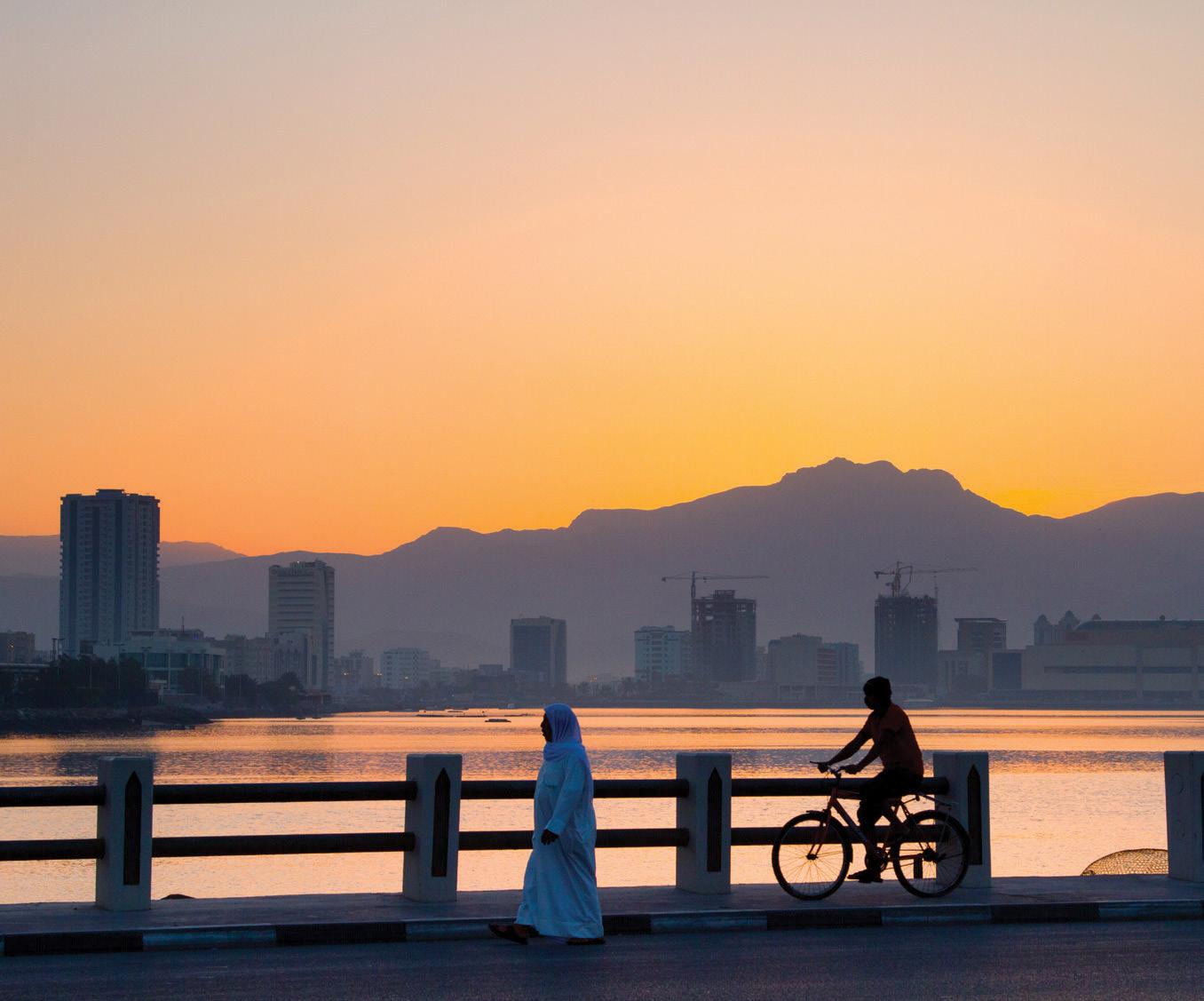
Ramy Jallad, group CEO RAKEZ, says Ras Al Khaimah’s strategic location offers businesses unmatched access to diverse and lucrative markets
BY KUDAKWASHE MUZORIWA
How does RAKEZ contribute to the economic development of Ras Al Khaimah (RAK), and what initiatives are in place to attract foreign investments?
RAKEZ (Ras Al Khaimah Economic Zone) is a driving force behind Ras Al Khaimah’s (RAK) economic transformation. It is critical in attracting international investments and fueling sustainable growth.
With its strategic location, modern infrastructure, and investor-friendly policies, RAKEZ offers a gateway to success for businesses exploring opportunities in the Middle East. Its remarkable growth,
hosting over 25,000 companies across 50 sectors, highlights its role as a cornerstone of RAK’s economy.
What sets RAKEZ apart is its ability to adapt to the diverse needs of businesses. Whether you’re an entrepreneur seeking a cost-effective start-up base or an established multinational aiming to expand, RAKEZ’s flexible setup options — free zone and mainland – ensure your business structure aligns with your goals. The low operating costs and one of the world’s most competitive corporate tax environments add to its appeal, enabling businesses to
maximise profits and reinvest in growth. Setting up in RAKEZ is seamless, thanks to the economic free zone’s streamlined processes and fully digitalised service platform. From licensing and permits to visas, every detail is handled efficiently, allowing you to focus on what matters most — growing your business.
How have you positioned RAK as a gateway for foreign companies seeking to enter new markets in the Middle East?
Our extensive network of strategic partnerships is designed with businesses in mind, making RAKEZ a premier platform for foreign companies seeking to expand into the Middle East. By connecting investors with essential resources, expertise, and opportunities, the free zone ensures a smooth and successful entry into the region’s thriving markets.
RAKEZ partners with leading UAE banks, such as RAKBANK, First Abu Dhabi Bank, Mashreq, and Emirates NBD, to offer tailored financial solutions. These include corporate and personal accounts, digital banking, payment gateways, and Shariahcompliant financing — ensuring that businesses of all sizes have the financial tools they need to thrive.
We simplify market access for e-commerce businesses by partnering with platforms such as Amazon and Tradeling. The partnerships give businesses a competitive edge and help them make smarter, datadriven decisions as they scale.
RAKEZ’s commitment to global connectivity is evident in its strong relationships with business councils, embassies, and trade associations worldwide. Through these alliances, we have cultivated a platform where foreign investors gain access to simplified regulations, expedited processes, and insights into regional business trends.
We actively engage with global investors through international roadshows, highlighting the emirate’s strategic location and business-friendly environment. The events provide investors with firsthand insights and networking opportunities to connect with key stakeholders in the region. By offering a supportive ecosystem and tailored solutions, RAKEZ empowers businesses to thrive in the Middle East.
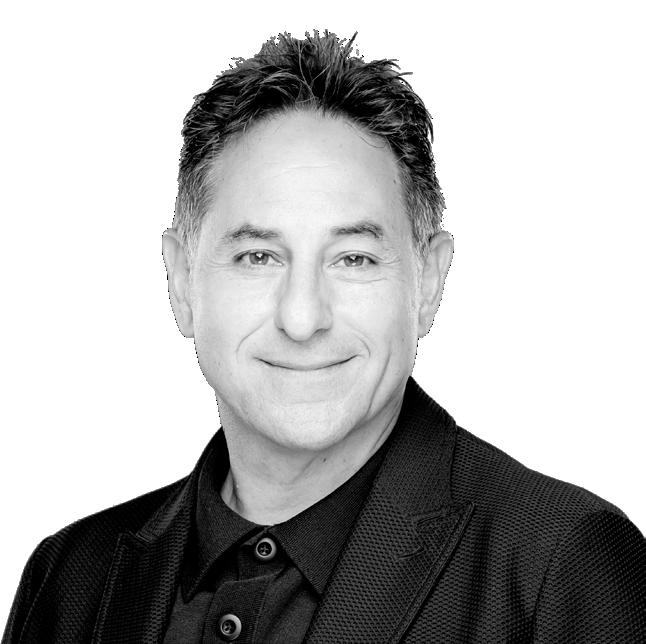
How has the free zone’s role and responsibilities within RAK’s economic landscape evolved since its establishment?
Over the years, RAKEZ has solidified its reputation as a powerhouse for both SMEs and industrialists while continuously evolving to meet the changing needs of its diverse and growing community. By offering a comprehensive range of services and state-ofthe-art facilities, RAKEZ has created an environment where businesses of all sizes and sectors can thrive, from innovative startups to large-scale industrial enterprises.
What truly sets us apart is our unwavering commitment to delivering a client-centric experience. Businesses benefit from a seamless, one-stop-shop model that simplifies every step of the journey, from licensing and registration to visa issuance. The introduction of digital tools such as a self-service portal and mobile application ensures 24/7 access to essential services, allowing businesses to manage operations efficiently, no matter where they are.
RAKEZ’s ability to adapt to shifting global and regional market trends has been instrumental in its success. By combining robust infrastructure with proactive support, we equip businesses with the tools
ITS REMARKABLE GROWTH — HOSTING MORE THAN 25,000 COMPANIES ACROSS 50 SECTORS, HIGHLIGHTS ITS ROLE AS A CORNERSTONE OF RAK’S ECONOMY
and insights they require to seize emerging opportunities and remain competitive in a fast-changing global economy. Its specialised zones for industrial, commercial, and academic activities further foster innovation and growth by catering to the unique requirements of various sectors.
Through these advancements, RAKEZ continues to be a cornerstone of Ras Al Khaimah’s economic diversification and development. By attracting global investments and fostering a thriving ecosystem for businesses, RAKEZ strengthens its role as a leading destination for entrepreneurs and industrialists alike, ensuring that companies have the support and resources needed to succeed globally.
How do you support companies and SMEs in establishing and scaling their operations in the Middle East?
RAKEZ is dedicated to supporting businesses of all sizes, from ambitious startups and SMEs to large-scale industrial operations, in establishing and scaling their presence in the Middle East. By offering a seamless setup process, tailored solutions, and a range of incentives, we ensure that companies can navigate the local market confidently and focus on long-term growth.
A cornerstone of our efforts lies in empowering SMEs, which form the backbone of the UAE’s thriving non-oil economy. At RAKEZ, we’ve developed a cost-effective and business-friendly ecosystem explicitly designed to meet their needs.
From affordable setup options to streamlined licensing processes, we make it easy for SMEs to get started. Our
“WE WERE THE FIRST IN THE MIDDLE EAST TO ADOPT THE BACCOMBER SYSTEM FOR COOLING TOWER WATER TREATMENT, SAVING NEARLY ONE MILLION GALLONS OF WATER ANNUALLY WHILE ELIMINATING THE USE OF CERTAIN CHEMICALS.”
advanced facilities, including co-working spaces, warehouses, and specialised zones, cater to the unique requirements of smaller businesses while ensuring scalability as they grow. Digital portals and a one-stop-shop model allow businesses to manage administrative tasks effortlessly, saving time and resources.
For industrial businesses, RAKEZ offers an exceptional combination of flexibility and infrastructure. Access to specialised industrial zones allows companies to benefit from customisable facilities such as warehouses, industrial land, offices, and labour accommodations. Proximity to key logistical hubs, including Saqr Port and major airports, enhances supply chain efficiency, making RAKEZ an ideal base for manufacturing and export-driven industries.
Our strategic location at the intersection of Asia, Europe and Africa gives businesses unparalleled access to the MENA region’s dynamic markets. This geographical advantage, combined with world-class infrastructure, industrial parks and on-site accommodations, makes RAKEZ a natural choice for manufacturers, trading companies, and service providers looking to expand their reach.
RAKEZ’s proactive role extends beyond internal initiatives. We actively collaborate with the RAK Municipality to develop and implement Green Procurement Policies for all current and future projects. This partnership ensures alignment with federal and international sustainability standards, reinforcing our shared commitment to sustainable development.
On a strategic level, RAKEZ contributes to regional and national initiatives, including the RAK Municipality’s Barjeel Green Building Regulations and the Industrial Technology Transformation Index. As a member of the Energy Efficiency and Renewables Executive Committee, we are instrumental in shaping RAK’s Vision 2030 for energy management and efficiency, securing a sustainable future for the region.
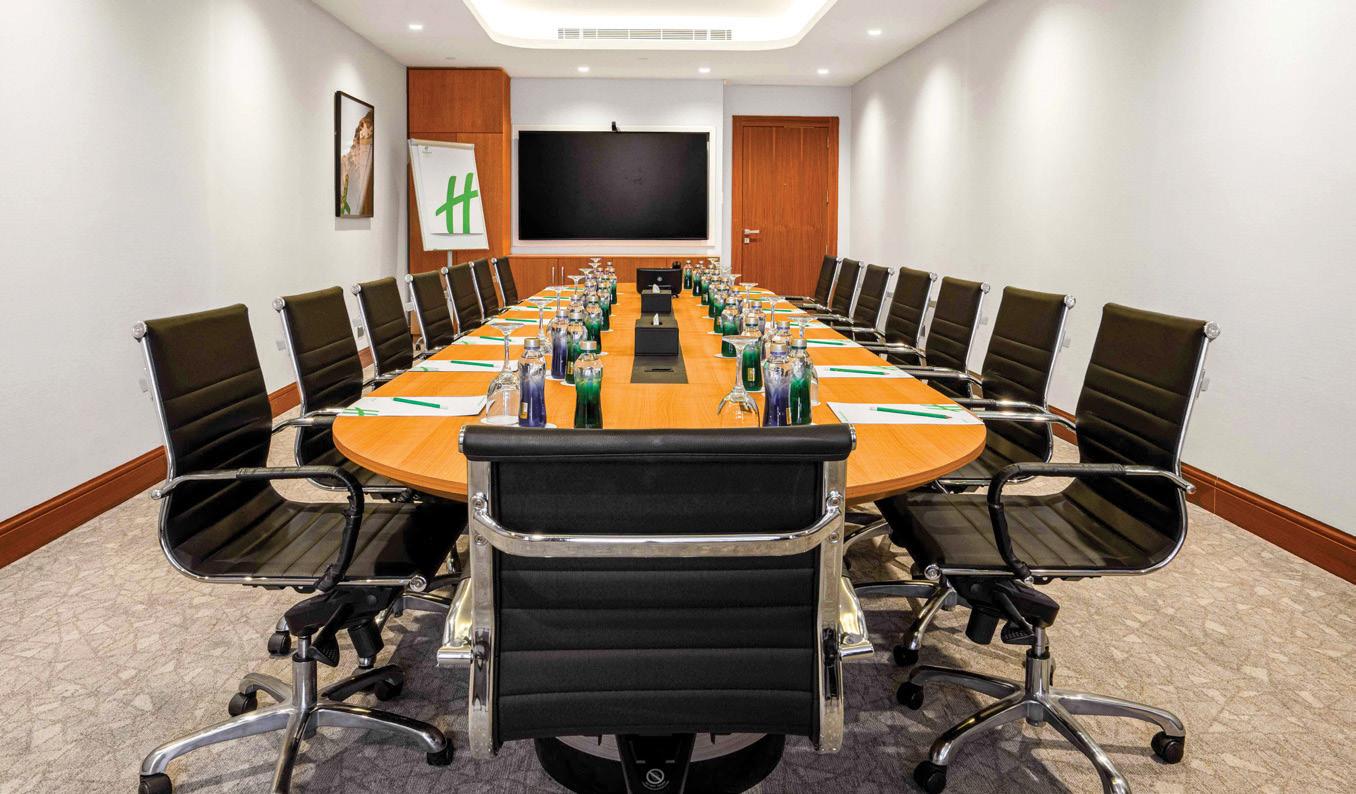
For the discerning traveller, Holiday Inn Riyadh The Business District seamlessly combines comfort, convenience, and productivity, all within a touch of luxury
Nestled in the heart of Saudi Arabia’s bustling capital, Holiday Inn Riyadh
The Business District offers an oasis of comfort, efficiency, and style tailored for the discerning business traveller.
With Saudi Arabia emerging as a leading global events hub, hosting prestigious events such as LEAP and Future Investment Initiative, travellers are increasingly seeking hotels that effortlessly blend comfort with productivity. Holiday Inn Riyadh The Business District, with its sleek aesthetics and focus on guest well-being, emerged as a promising contender.
Strategically situated within Riyadh’s vibrant business hub, the hotel offers unparalleled access to key financial institutions, corporate headquarters, and government offices. King Khalid International Airport, the gateway to Riyadh, is a mere 15-minute drive from Holiday Inn Riyadh The Business District, ensuring a hassle-free commute for international guests. The hotel offers convenient access to popular attractions such as the Kingdom Centre and Al Faisaliyah Tower, which are ideal for a quick cultural immersion post-meetings.
With spacious interiors and the first open
lobby expertly designed in the Middle East region, the rooms at Holiday Inn Riyadh
The Business District are meticulously designed to cater to the modern business traveller’s requirements. The contemporary decor, complemented by muted tones and ergonomic furnishings, creates a soothing ambience conducive to both relaxation and productivity.
Each hotel room has a spacious work desk, high-speed Wi-Fi, and ample charging ports, ensuring guests can work efficiently from home. The plush bedding guarantees a restful night, while the blackout curtains and soundproof windows ensure minimal disturbances. The bathrooms are equally impressive, featuring rain showers, premium toiletries, and ample counter space, perfect for unwinding after a long day.
Holiday Inn Riyadh The Business District’s
Holiday Inn Riyadh The Business District is more than just a hotel – it’s a destination that seamlessly combines comfort, productivity, and sustainability.
dining offerings are diverse, catering to a wide range of palates. The hotel is home to Casa Oliva, a restaurant which serves Italian food alongside innovative fusion options inspired by regional Saudi cuisine. L’Espresso Bar in the lobby offers a range of coffee and gourmet café snacks.
Holiday Inn Riyadh The Business District truly excels in its business facilities. The hotel boasts a state-of-the-art business centre equipped with highspeed internet, printing services, and private meeting rooms. The larger conference rooms, fitted with the latest audiovisual technology, can accommodate up to 200 delegates, making it an ideal venue for corporate events, seminars, and workshops.
The hallmark of Holiday Inn Riyadh The Business District is undoubtedly its exceptional service. The staff’s attention to detail, willingness to go the extra mile, and genuine hospitality create a memorable experience for every guest.
Holiday Inn Riyadh The Business District is more than just a hotel – it’s a destination that seamlessly combines comfort, productivity, and sustainability. From energy-efficient lighting to water conservation measures and flexible event spaces, every detail is designed to enhance the guest experience. The hotel’s commitment to sustainability not only enhances its appeal to environmentally conscious travellers but also reflects its dedication to responsible hospitality.
Holiday Inn Riyadh The Business District seamlessly combines comfort, functionality, and elegance, making it an ideal choice for business travellers. From business conferences to social gatherings, the hotel’s dedicated events team ensures every detail is meticulously planned and executed, allowing guests to focus solely on their agenda.
The property’s strategic location, comprehensive business facilities, and exceptional service ensure a hassle-free and productive stay. Whether you’re in Riyadh for a quick business trip or an extended stay, this hotel offers an unparalleled experience that caters to every need, ensuring your travel plans are not just met but exceeded.
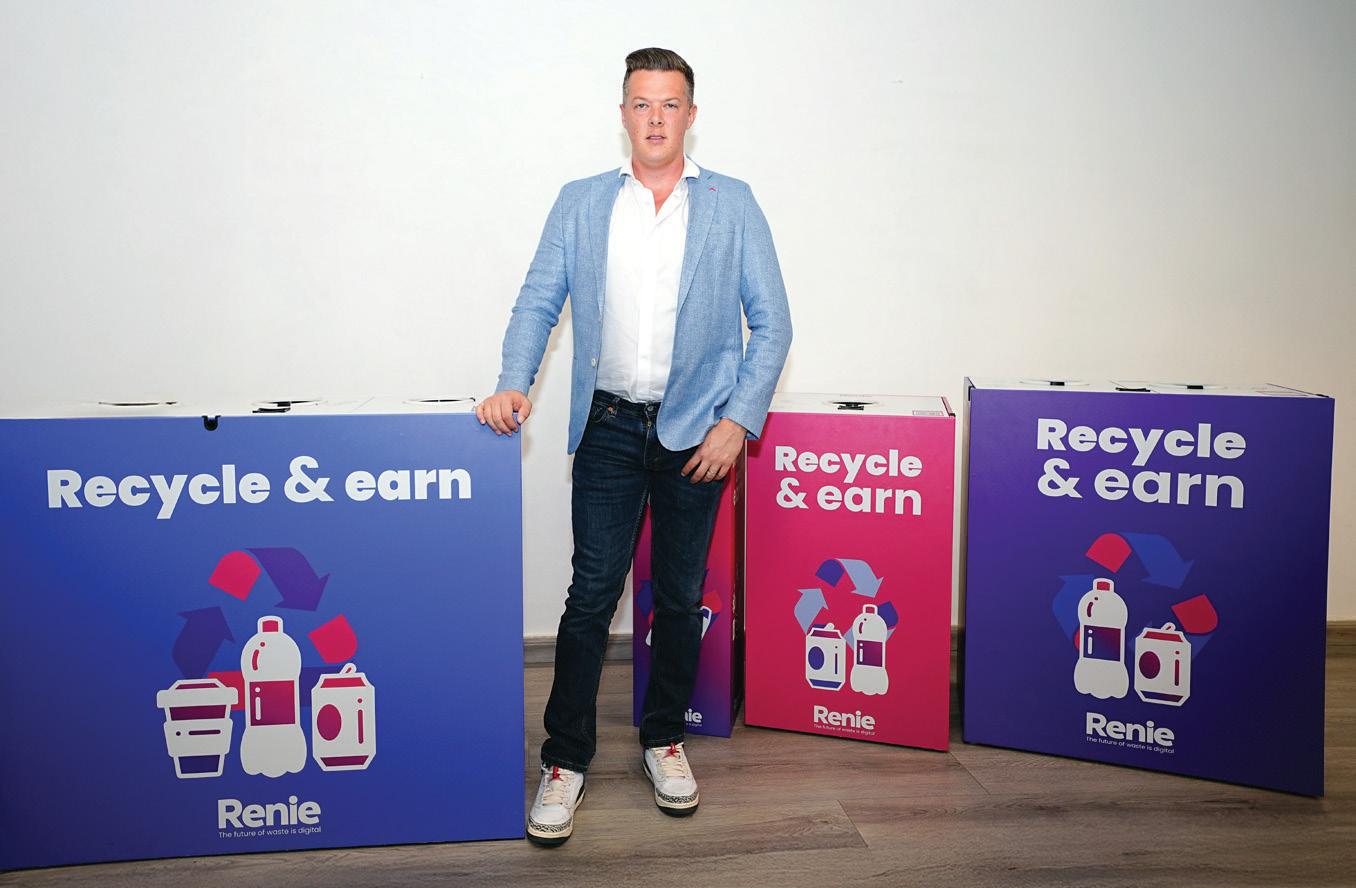
Sander Van Waes, the company’s founder and CEO, shares how Renie’s innovative solutions are helping organisations across the region embrace responsible waste practices
BY NEESHA SALIAN
In a world where waste management is often seen as a costly necessity, Renie is flipping the script by turning waste into a revenue-generating asset. In an interview with Sander Van Waes, the visionary behind Renie, we explore how the company’s cutting-edge ‘Smart Bins’ and datadriven approach are reshaping the waste management landscape in the UAE. By partnering with major players like Tetra Pak and manufacturing locally, Renie is not only driving sustainability but also making it financially viable for businesses. The company’s founder and CEO shares how its innovative solutions are helping organisations across the region embrace responsible waste practices, align with the UAE’s zero-waste vision and lead the way towards a circular economy.
Tell us more about Renie, its vision, and how it envisions shaping the future of waste management through innovation and sustainability. Waste management is often seen as a cost centre for companies and governments worldwide. We aim to transform this perception by leveraging advanced data analytics and smart technology to turn waste into revenue. By monetising waste streams,
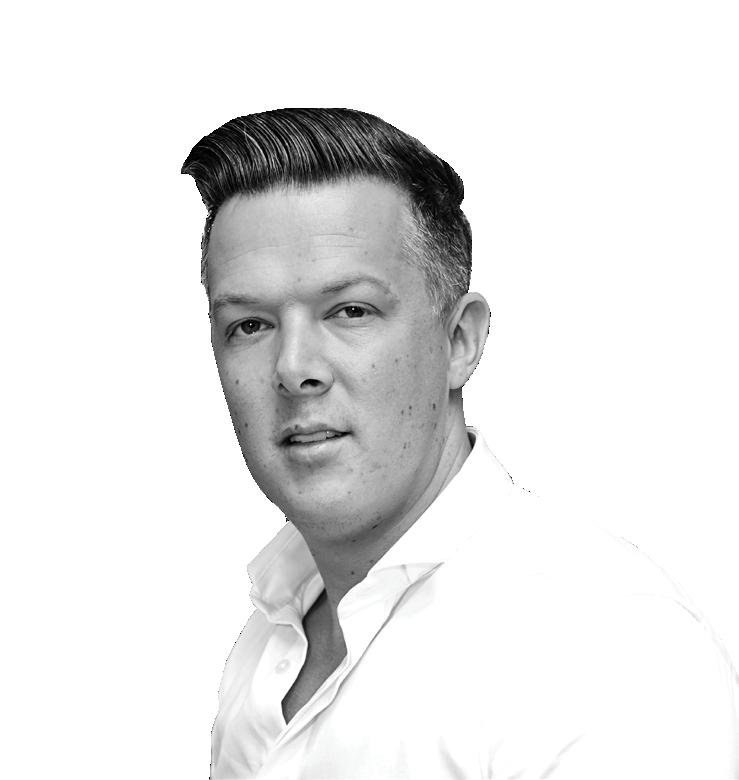
and CEO, Renie
transforming waste management but also embedding sustainability into the business growth model.
we make sustainable practices not only more accessible but also financially attractive for businesses.
We incentivise organisations to adopt responsible waste management and recycling, fundamentally reshaping sustainability from being only a responsibility to a strategic, value-driven opportunity.
What inspired Renie to develop these Smart Bins, and how does the technology convert waste into a revenue-generating asset?
In my previous company, I observed that sustainability initiatives were often seen as cost centres for businesses, with only a tiny fraction of revenue allocated toward such efforts. This inspired me to challenge the status quo and redefine sustainability as a driver of income rather than an expense.
Renie’s Smart Bins were ‘born’ from this vision. These do more than collect waste — they extract valuable data points processed through our monetisation platforms.
This technology converts waste-related data into revenue, ensuring that every step, from waste collection to its arrival at a recycling facility, contributes to a financial return. By rewarding companies for managing waste sustainably, we’re not just
Can you share specific examples of how this technology has impacted businesses?
Our technology has encouraged numerous organisations across sectors — hotels, residential complexes, and office buildings — to adopt waste segregation and recycling practices. With more than 2,000 Smart Bins deployed, businesses consistently embraced source-level segregation.
This shift has delivered measurable benefits, including increased recycling rates, reduced waste disposal costs, and a significant reduction in their environmental footprint.
How do Renie’s Smart Bins work in the Tetra Pak partnership, and what role do they play in making carton recycling accessible across the UAE?
Our partnership with Tetra Pak is a testament to how our technology facilitates large-scale recycling initiatives. Renie Smart Bins are now equipped to accept Tetra Pak cartons at all our collection sites, offering consumers an easy and efficient recycling process. By enabling the segregation of cartons at source, we ensure they are directed straight to recycling facilities.
EACH RENIE BIN DEPLOYED IS A STEP TOWARDS CREATING A CIRCULAR ECONOMY WHERE WASTE IS NO LONGER SEEN AS A LIABILITY BUT AS A VALUABLE RESOURCE
This collaboration boosts the volume of recycled cartons and makes recycling more accessible for everyday consumers, directly supporting Tetra Pak’s efforts to enhance recycling rates in the UAE.
How do the real-time tracking and data analysis help drive sustainable waste management and influence consumer behaviour towards recycling?
Real-time tracking is integral to our approach. Our technology ensures that data monetisation only occurs once the waste reaches a recycling facility, fostering
accountability and transparency. This guarantees measurable impact and builds trust among businesses.
By aligning financial incentives with sustainable practices, we encourage companies and consumers to embrace recycling, driving a cultural shift towards more responsible waste management.
Share more about the manufacturing process of Renie Bins in the UAE.
We are proud to manage the entire manufacturing process of Renie Bins at our inhouse facility in Sharjah, UAE.
From designing the bin casings to assembling the advanced modules with our custom sensors and processors, every aspect is handled and produced under one roof. This approach allows us to maintain rigorous quality control, drive continuous innovation, and tailor solutions to specific needs.
We are working with several large groups in the country to launch Renie Smart Bins at their extensive sites.
By manufacturing in the UAE, we align with the country’s commitment to fostering local industries and achieving
Keyper CEO and co-founder, Omar Abu Innab, shares the story behind its creation and its market impact
BY NEESHA SALIAN
Keyper is redefining the rental landscape in Dubai with an innovative approach that blends convenience, flexibility, and security for both tenants and property owners. The pioneering platform, designed to simplify rental transactions, is redefining how tenants and landlords engage with the city’s dynamic real estate market.
From the launch of the “rent now, pay later” (RNPL) model to the development of advanced property management tools, Keyper is shaping the future of real estate in Dubai.
Here, Omar Abu Innab, its CEO and cofounder, talks about the exciting developments shaping the platform’s future.
Tell us about the vision behind Keyper and what inspired you to create a platform that caters to both tenants and property owners.
Keyper was born out of a deep understanding of the challenges faced by tenants and landlords in Dubai’s dynamic real estate sector. The vision was clear: create a platform that simplifies the complexities of rental transactions while addressing the
sustainable development as part of the UAE Vision.
This reduces the environmental impact associated with imports and supports the local economy.
What are the long-term goals for Renie in the UAE? How do you see your solutions aligning with the UAE’s vision and its commitment to a zero-waste future?
Our vision for Renie in the UAE is ambitious and impactful. We aim to make waste segregation at the source a standard practice across various sectors, from residential areas to commercial spaces.
By providing scalable, affordable solutions, we aspire to divert significant waste from landfills, supporting the UAE’s commitment to a zero-waste future.
Each Renie Bin deployed is a step towards creating a circular economy where waste is no longer seen as a liability but as a valuable resource.
By helping businesses and communities adopt more responsible waste practices, we contribute to the nation’s broader goal of creating a greener, more sustainable future.
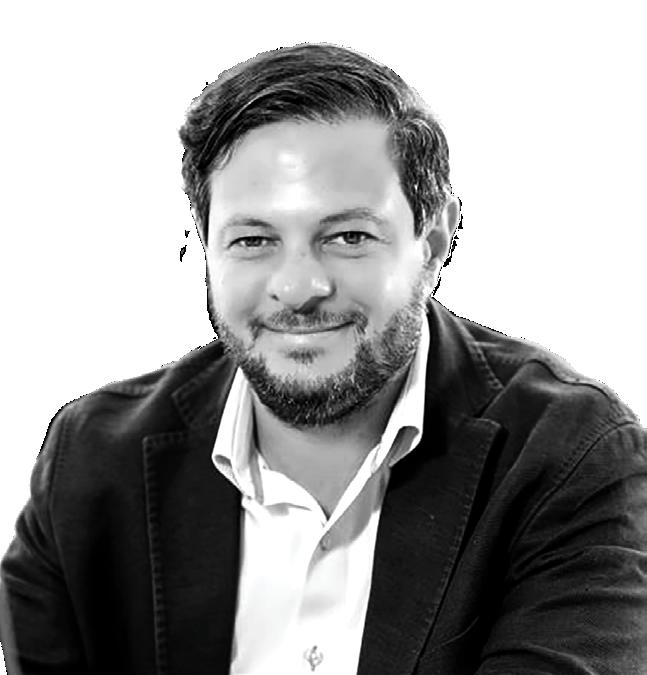
needs of both stakeholders through efficiency, transparency, and trust, stemming from personal struggles as both a landlord and renter. Tenants sought the flexibility of
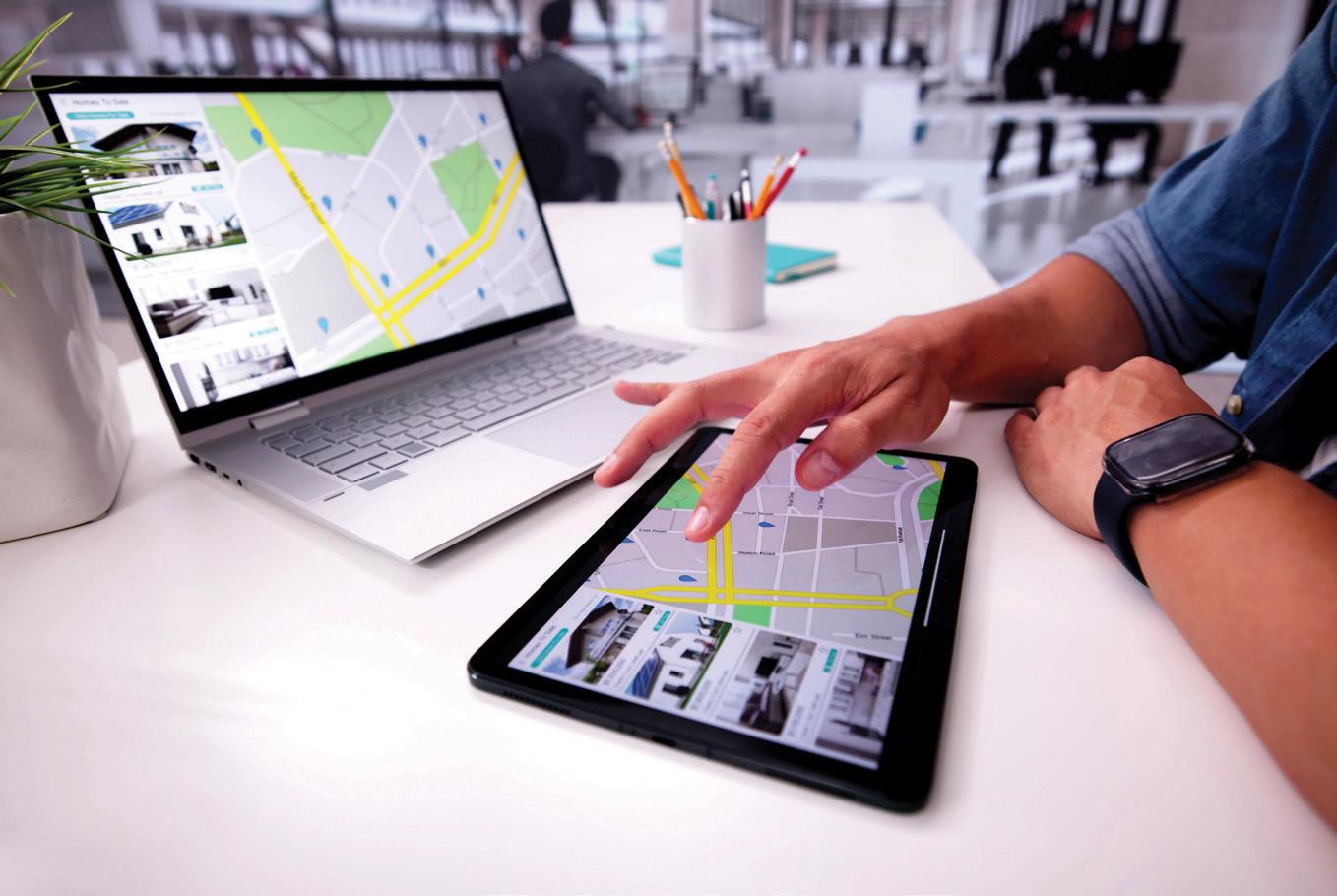
monthly payments to better manage their cash flow, but landlords often insisted on fewer payment cycles for security.
We realised that both parties could benefit from a model that retained landlords’ preferred payment terms — one, two, or four payments per year — while offering tenants the option of monthly payments. To make this possible, Keyper takes on the financial risk through advanced tenant screening and data-driven decision-making, ensuring security for landlords without compromising tenant convenience.
The result is a platform that doesn’t just digitise transactions but also redefines the experience of renting and leasing real estate in Dubai. We aim to empower tenants to manage their finances effectively while giving landlords tools to maximise their investment returns.
With Keyper, renting isn’t just a transaction — it’s a seamless, mutually beneficial relationship that reflects the future of real estate in the UAE.
One of Keyper’s standout offerings is the RNPL model. How does this innovative solution address the financial challenges both tenants and property owners face, and how has the response been from the market?
The model is a transformative concept that addresses two key concerns in Dubai’s real estate market: tenants’ desire for financial flexibility and landlords’ need for stable income.
For tenants, Keyper’s RNPL model allows monthly rent payments, tenants can align their rental obligations with their monthly
salary cycles. Eliminating the strain of large upfront payments, enabling tenants to preserve their savings for other priorities.
For landlords, we offer unparalleled assurance. By maintaining their original payment preferences — whether one annual payment or two or four instalments — they continue to enjoy predictable cash flows. Additionally, Keyper provides an ‘upfront rent’ service, enabling landlords to cash out the entire remaining lease value at any time, offering unmatched liquidity.
To address the inherent risks of monthly payments, we implemented a rigorous tenant screening process that includes income verification through secure open banking. This ensures that only financially capable tenants qualify for RNPL.
The market response has been phenomenal. Over 90 per cent of the over 20,000 RNPL applications have been accepted, underscoring the immense demand for a solution that balances flexibility with reliability.
Notably, tenants who benefit from RNPL often recommend it to others, creating a ripple effect of organic growth. This enthusiasm highlights RNPL’s ability to redefine the relationship between landlords and tenants, making it a cornerstone of Keyper’s mission to modernise real estate in Dubai.
Keyper offers a wide range of tools for property owners, such as automated rent collection and live property valuations. How have these digital solutions changed the way property owners manage their investments, and what impact has this had on the overall
real estate market in Dubai?
Keyper’s platform equips property owners with state-of-the-art tools designed to optimise their asset management, providing a level of control and insight that was previously inaccessible.
Features such as automated rent collection, live property valuations, and detailed financial reporting transform the traditionally cumbersome process of managing real estate into a streamlined, digital experience.
Automated rent collection, for instance, not only ensures timely payments but also eliminates administrative burdens. Landlords no longer have to chase tenants or deal with manual processes. Instead, rent is seamlessly debited from the tenant’s account and transferred to the landlord’s, fostering a stress-free rental process. Live valuations give property owners a real-time view of their portfolio’s performance, helping them make informed decisions about the market whether they are leasing or selling.
The ripple effects of these advancements are felt across Dubai’s real estate market. By introducing greater efficiency and transparency, Keyper has instilled confidence among investors, making Dubai a more attractive destination for real estate investments. Furthermore, features like market insights and transaction comparisons empower landlords to stay competitive, adapt to market trends, and maximize their returns. This fusion of technology and strategy is reshaping property management in Dubai, setting new standards for efficiency and professionalism.
As the company grows, Keyper has forged key partnerships within the real estate ecosystem. How have these collaborations strengthened your platform, and what role do they play in the future of real estate in Dubai?
Collaborations are at the heart of Keyper’s strategy to enhance its platform and contribute meaningfully to Dubai’s real estate ecosystem. Our partnerships with escrow agencies, regulatory bodies, and financial institutions ensure that our platform is not only reliable but also aligned with market standards and government directives.
These collaborations strengthen our offerings in several ways. For instance,
working with escrow agencies bolsters trust by safeguarding rental payments, while partnerships with financial institutions enable secure, automated transactions. Additionally, our collaboration with regulatory bodies allows us to align with Dubai’s vision of a paperless economy, ensuring all our transactions are digital, efficient, and environmentally conscious.
Looking forward, these alliances will play a pivotal role in driving transparency and innovation in Dubai’s real estate market. By fostering a network of trusted partners, Keyper aims to create an integrated ecosystem where tenants, landlords, and investors can interact seamlessly. These partnerships not only enhance our platform’s capabilities but also position Keyper as a key player in shaping the future of real estate in the UAE.
Keyper’s marketplace exclusively showcases properties with flexible financial options. How do you see the demand for flexible rental terms evolving in Dubai’s rental market, and how does Keyper plan to further adapt to these shifts?
Flexible rental terms are no longer just a preference — they are becoming a necessity in Dubai’s evolving real estate market. With an increasing number of tenants seeking financial solutions that align with global standards, monthly payment options with Keyper’s RNPL are rapidly gaining traction.
Keyper’s marketplace is uniquely positioned to cater to this demand by exclusively listing RNPL-approved properties, making it easier for tenants to find homes that suit their financial capabilities.
As demand continues to grow, we plan to expand its marketplace offerings by integrating predictive analytics to personalize property recommendations. This will ensure tenants can discover rental options tailored to their needs. Additionally, we are exploring partnerships with new developers and agencies to increase the inventory of RNPL-enabled units, giving tenants more choices and landlords greater exposure.
The demand for flexible rental terms represents a significant shift in tenant expectations, and Keyper remains committed to adapting and evolving alongside
these changes. Our focus on tenant-centric solutions and data-driven enhancements ensures that we stay ahead of the curve, consistently meeting the needs of Dubai’s diverse rental audience.
What sets Keyper apart from traditional property management models in the UAE, and what do you believe are the key factors that will drive the continued success and growth of the platform in the years ahead?
Keyper distinguishes itself from traditional property management models by offering an entirely digital-first approach, redefining how real estate transactions and management are handled in the UAE. Unlike conventional methods that rely heavily on manual processes and periodic updates, Keyper delivers real-time insights, automated solutions, and comprehensive tools that streamline every aspect of renting and managing real estate.
One of our standout features is the seamless integration of technology into financial processes. Landlords benefit from automated rent collection, live portfolio valuations, and advanced analytics, enabling them to make data-driven decisions without the operational burden of traditional methods. For tenants, our RNPL feature introduces financial ease, transforming the often rigid rental system into one that aligns with their cash flow and lifestyle.
What drives our growth is our ability to adapt to market needs and anticipate future demands. By staying attuned to tenant and landlord preferences, we ensure our platform evolves to meet emerging challenges. For example, our strong focus on tenant screening not only reassures landlords but also enhances the quality of the tenant-landlord relationship. Furthermore, our ability to foster collaborations with stakeholders, from real estate developers to regulatory bodies, ensures that Keyper remains a trusted and innovative partner in the UAE’s real estate landscape.
Keyper’s long-term success will also hinge on our commitment to transparency, efficiency, and sustainability. By continuing to refine our platform with cutting-edge technology and building on the trust we’ve cultivated with users, we aim to lead the
Proptech transformation in the UAE and set a benchmark for digital property management globally.
What are some of the most exciting developments or features Keyper is working on to further enhance the experience for both tenants and property owners in the UAE?
The future at Keyper is brimming with exciting advancements aimed at further enhancing the experience for both tenants and property owners. One of our primary focuses is expanding the capabilities of our RNPL model. We are developing enhanced financial tools for tenants, including tailored payment plans and predictive rent analytics, which will provide greater financial control and insight.
For property owners, we are revolutionising portfolio management by introducing an expanded dashboard that offers even more granular data on property performance. This includes detailed transaction histories, market trend analysis, and predictive valuation models to help landlords optimise returns. In addition, we’re working on integrating advanced property lifecycle management tools that will allow owners to track maintenance schedules, refurbishment costs, and occupancy trends in a single, intuitive interface.
Another exciting area of development is our marketplace expansion. By onboarding more RNPL-compatible real estate and partnering with leading developers, we aim to provide tenants with a broader range of options while boosting visibility for landlords. We’re also exploring AI-driven personalisation to ensure that both tenants and landlords receive recommendations tailored to their specific needs and goals.
Moreover, our strategic collaborations with Dubai’s regulatory bodies mean we’re actively participating in the government’s push toward digitisation. From paperless transactions to blockchain-enabled lease agreements, Keyper is at the forefront of these innovations, ensuring our platform aligns with the UAE’s vision of a sustainable, tech-enabled economy. These advancements promise to elevate the Keyper experience and reinforce our position as a leader in the proptech revolution.


STORIES AND PORTRAITS FROM THE PEOPLE WHO SHAPED THE INDUSTRY
